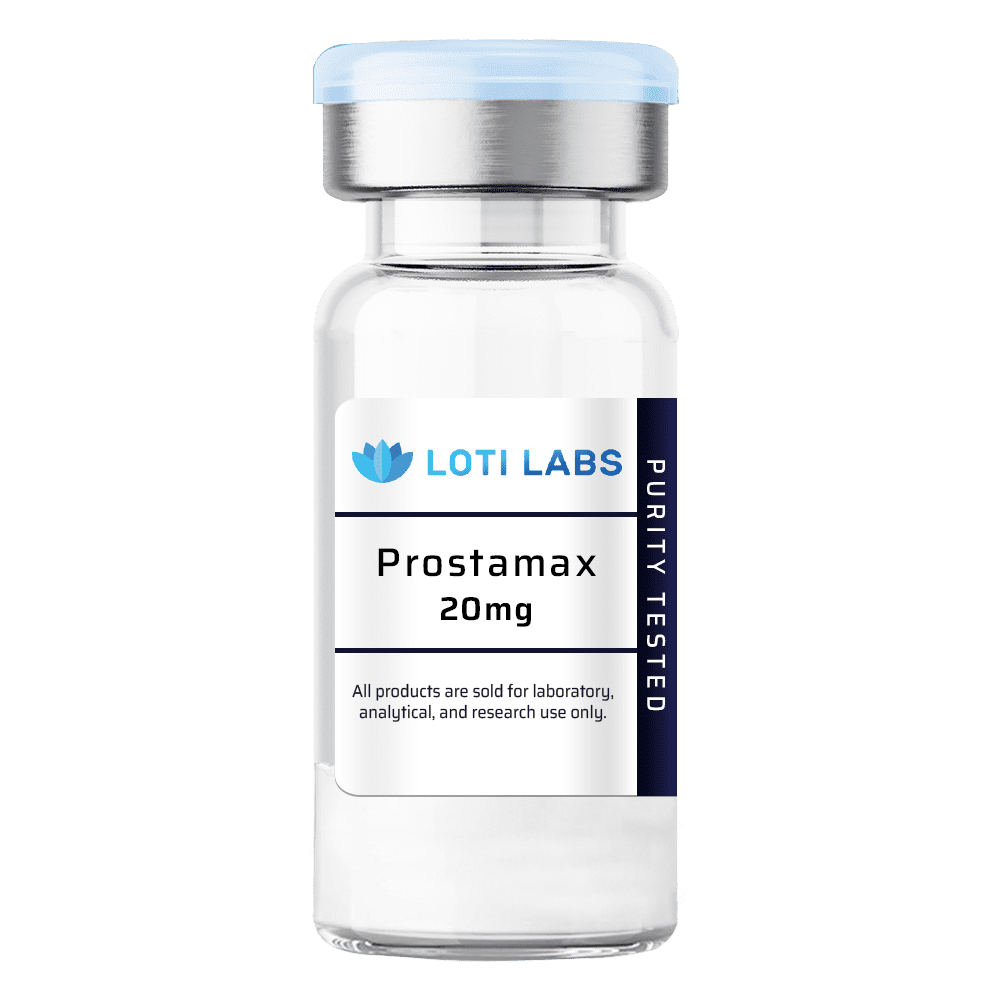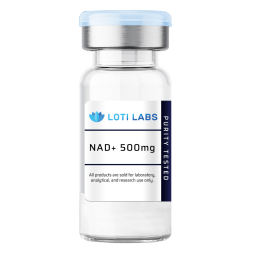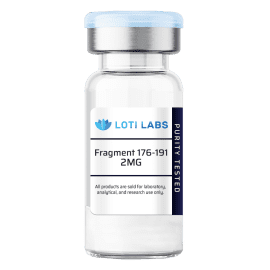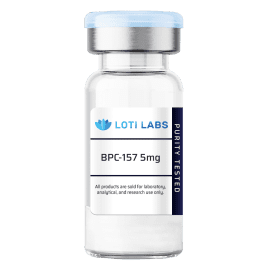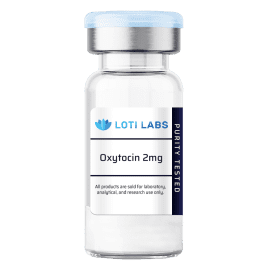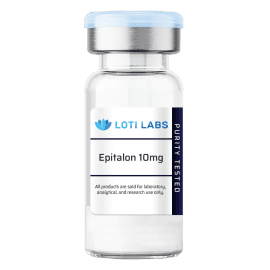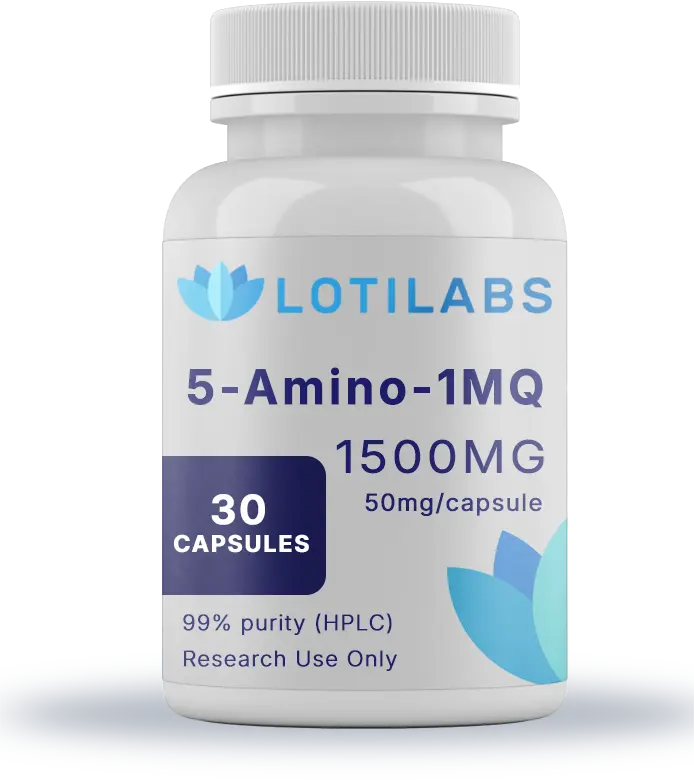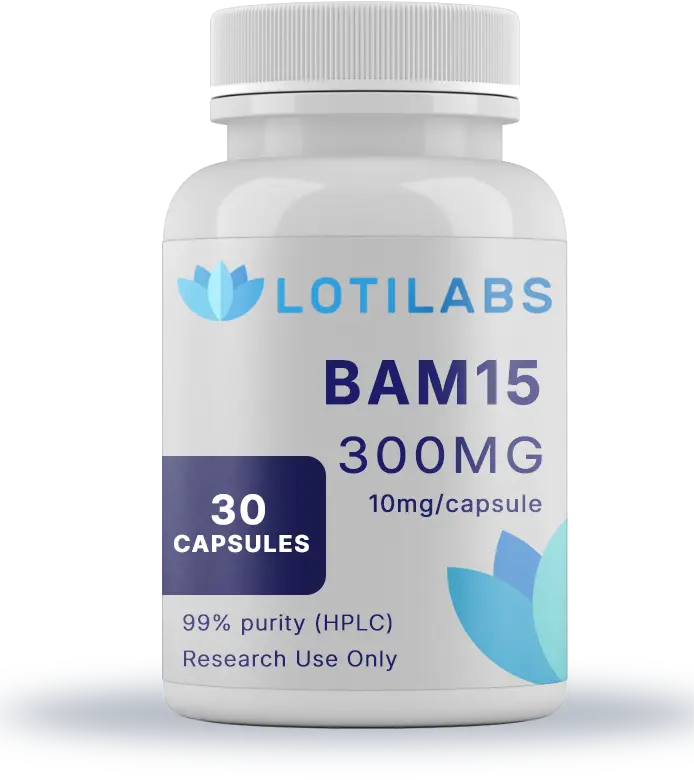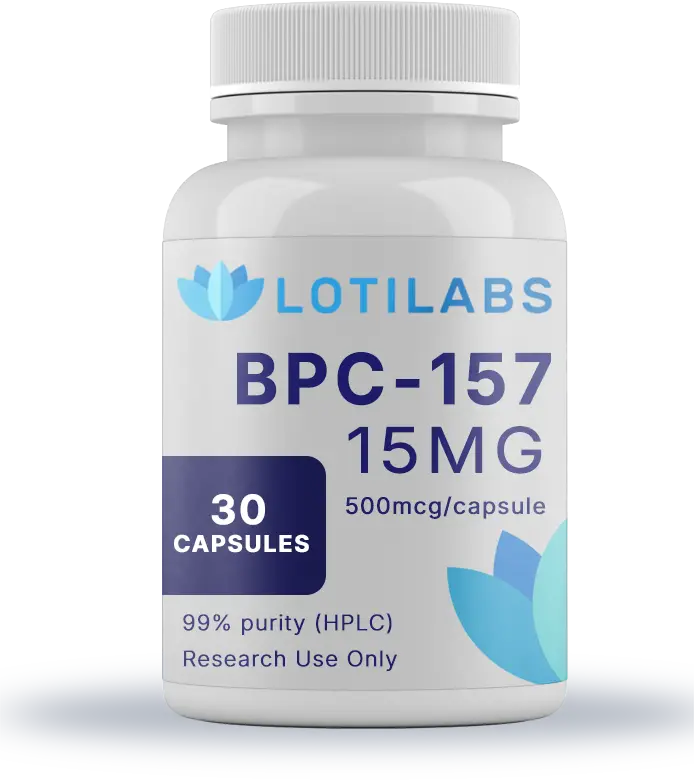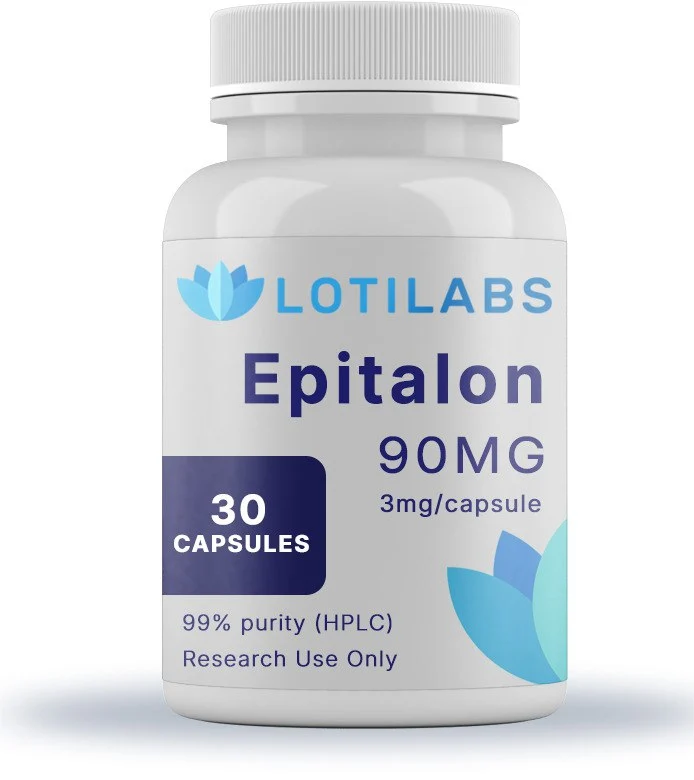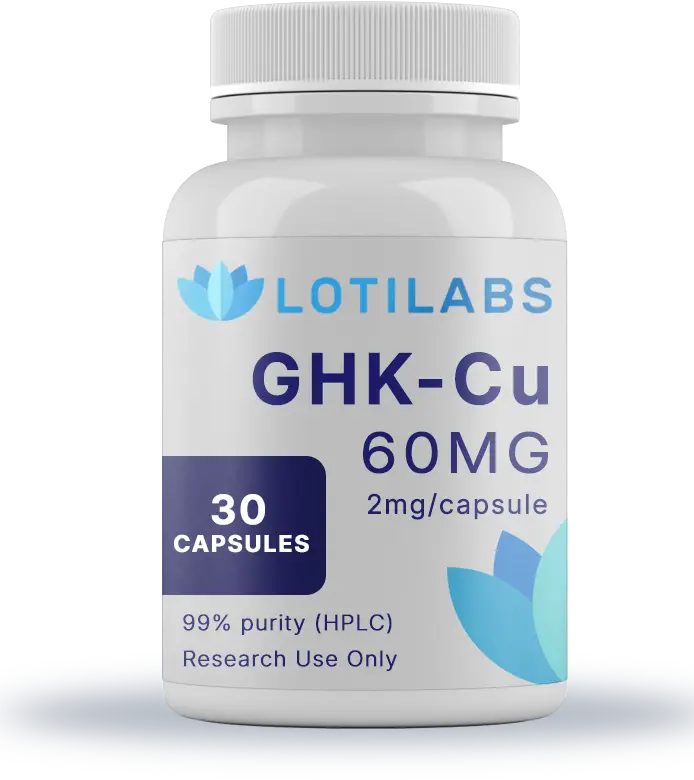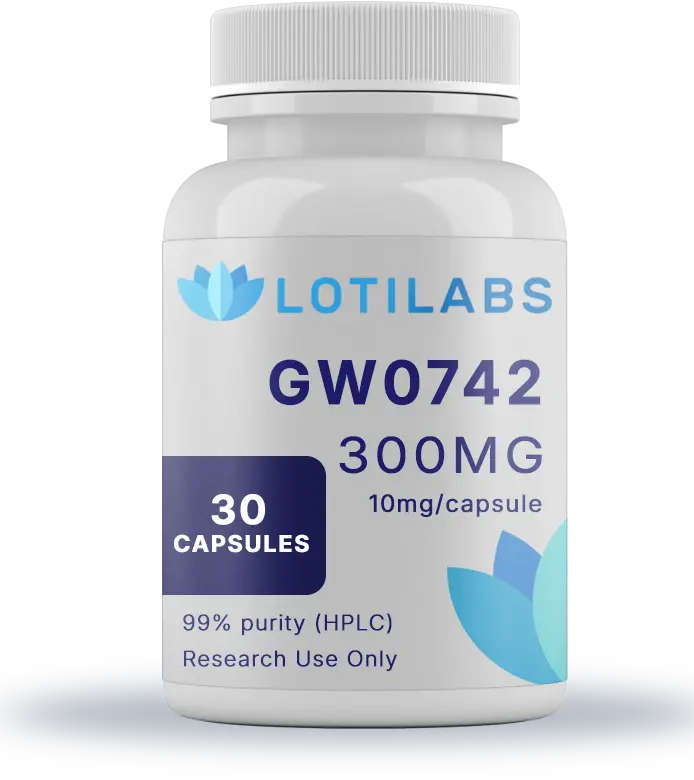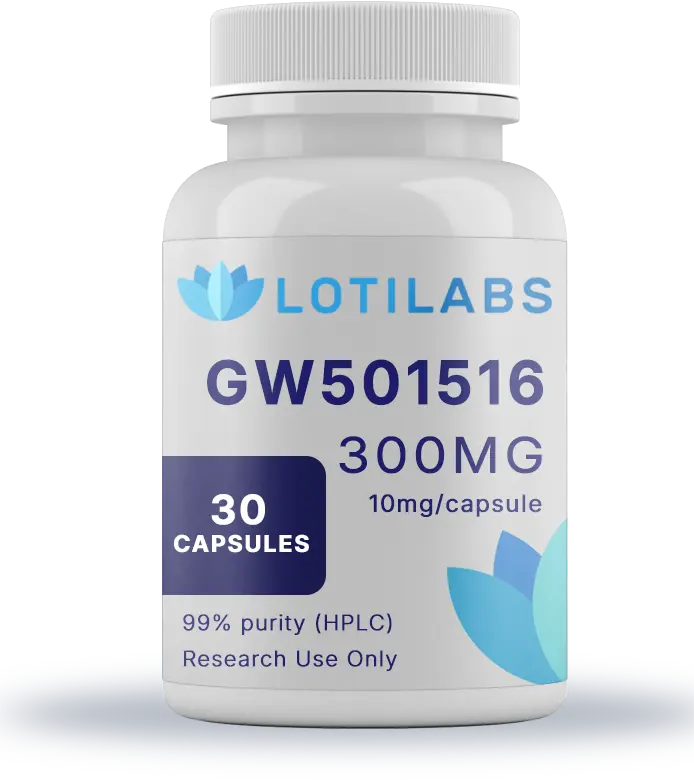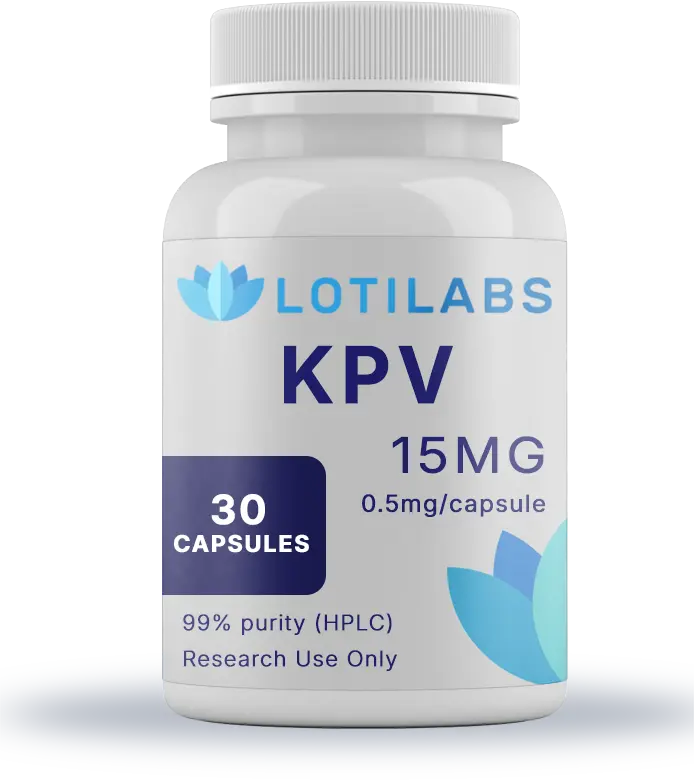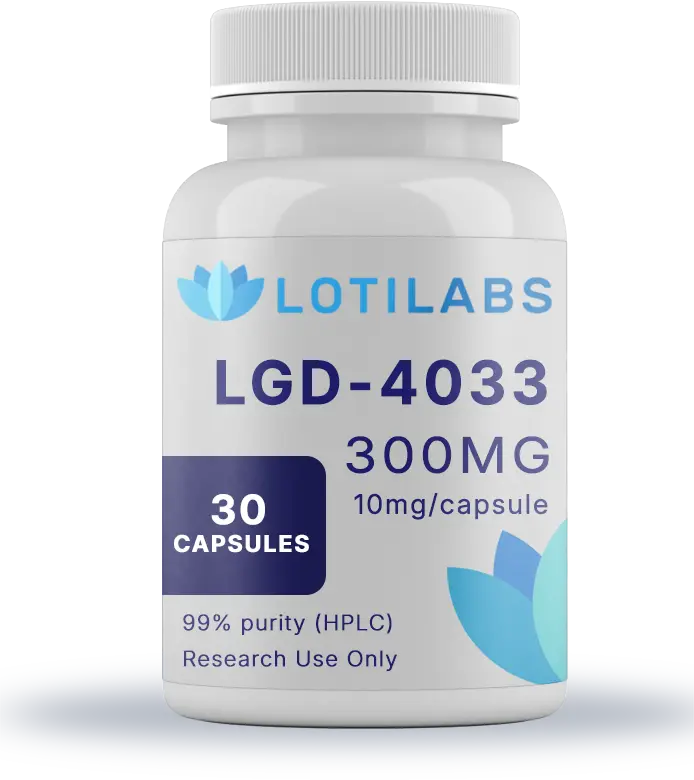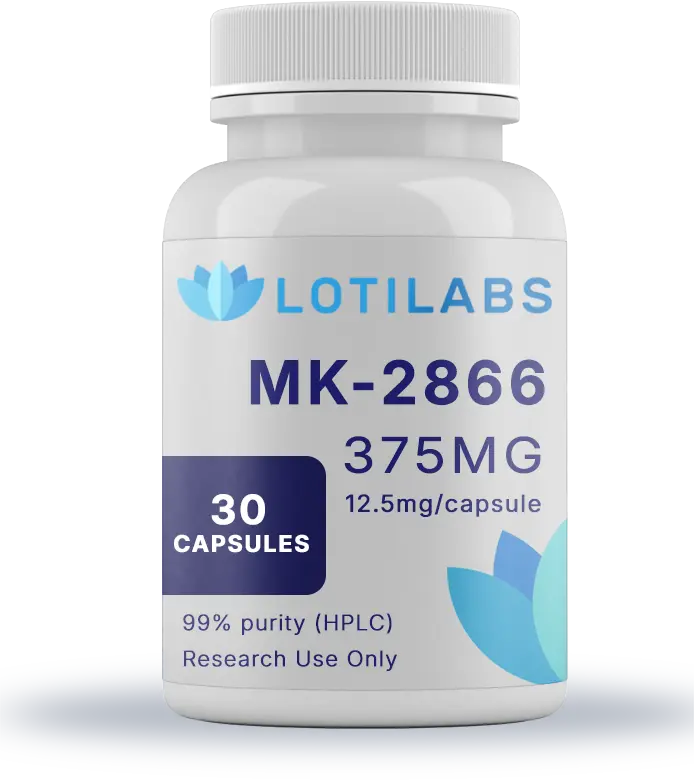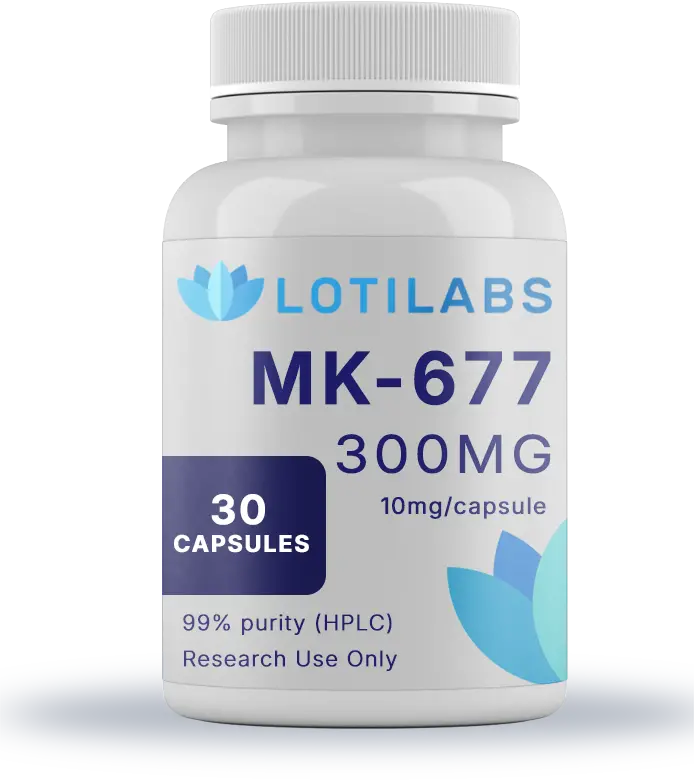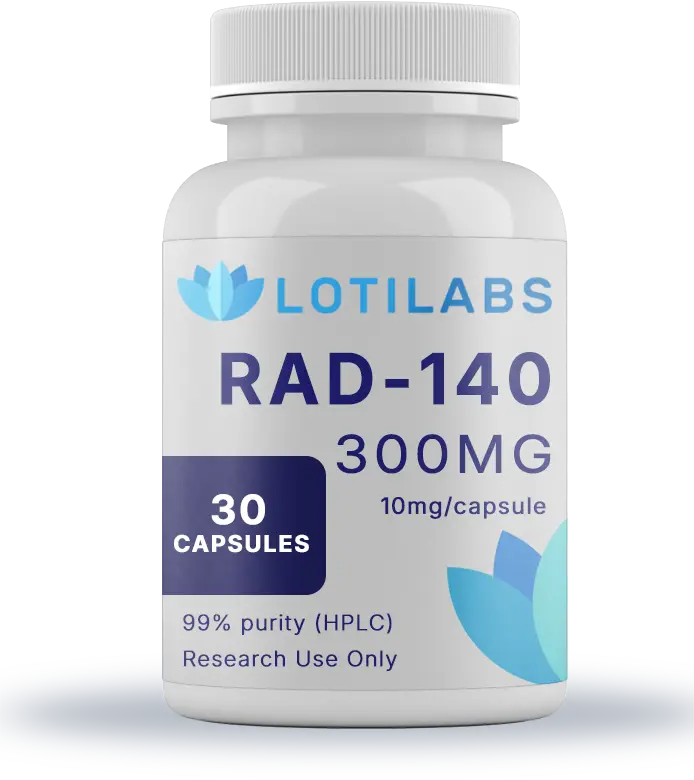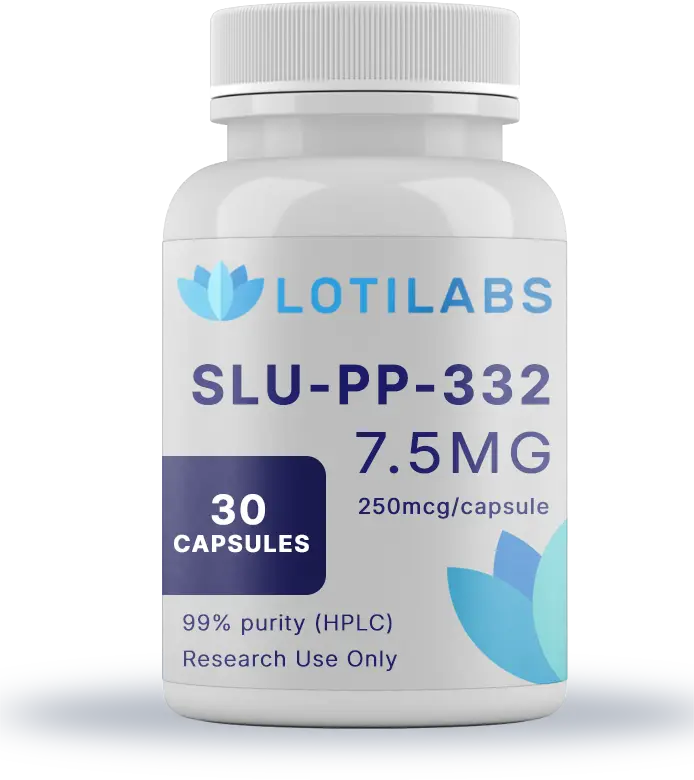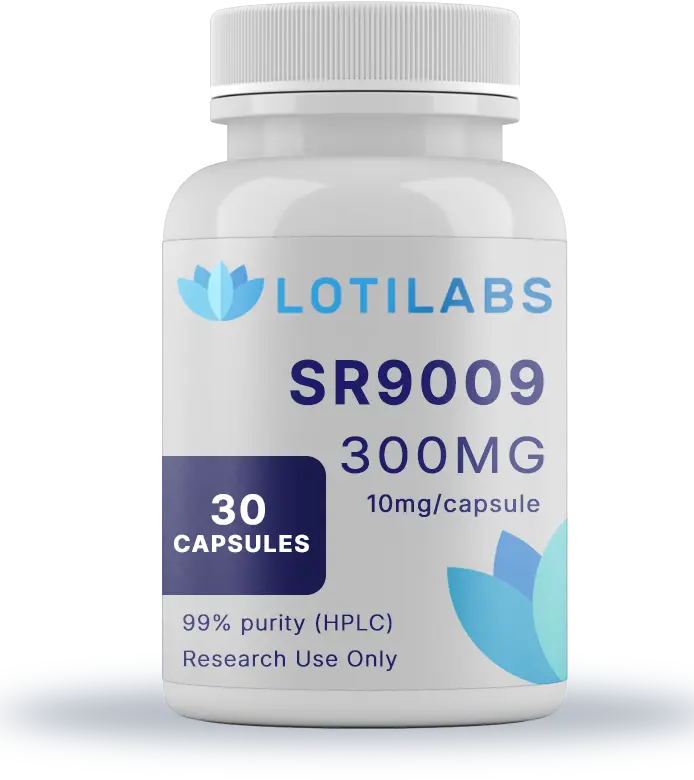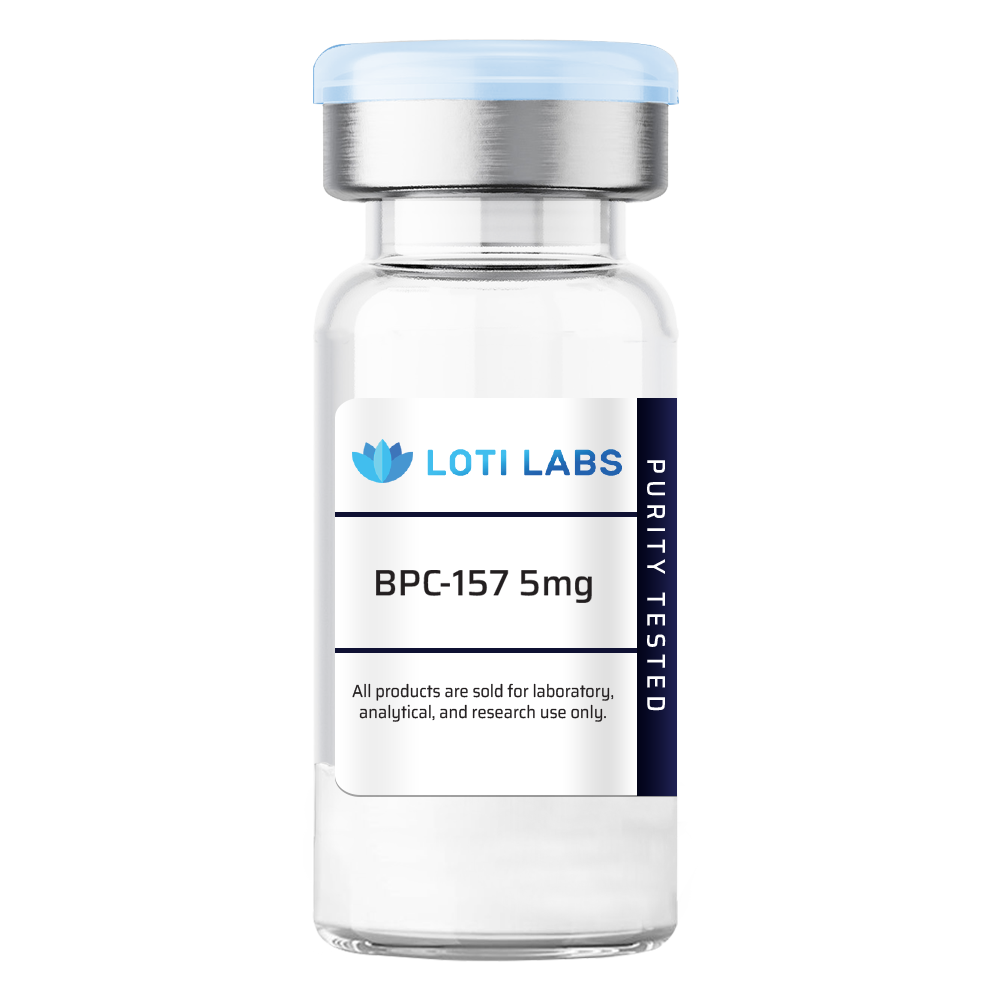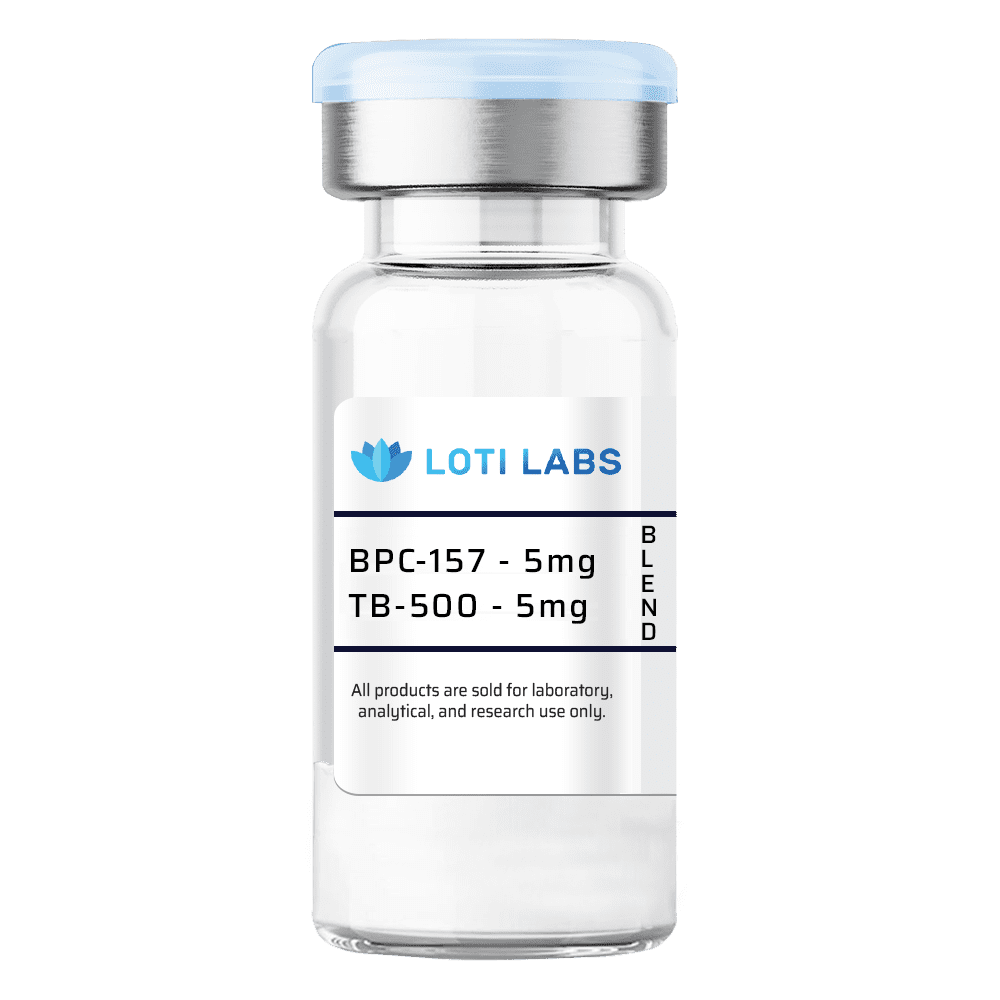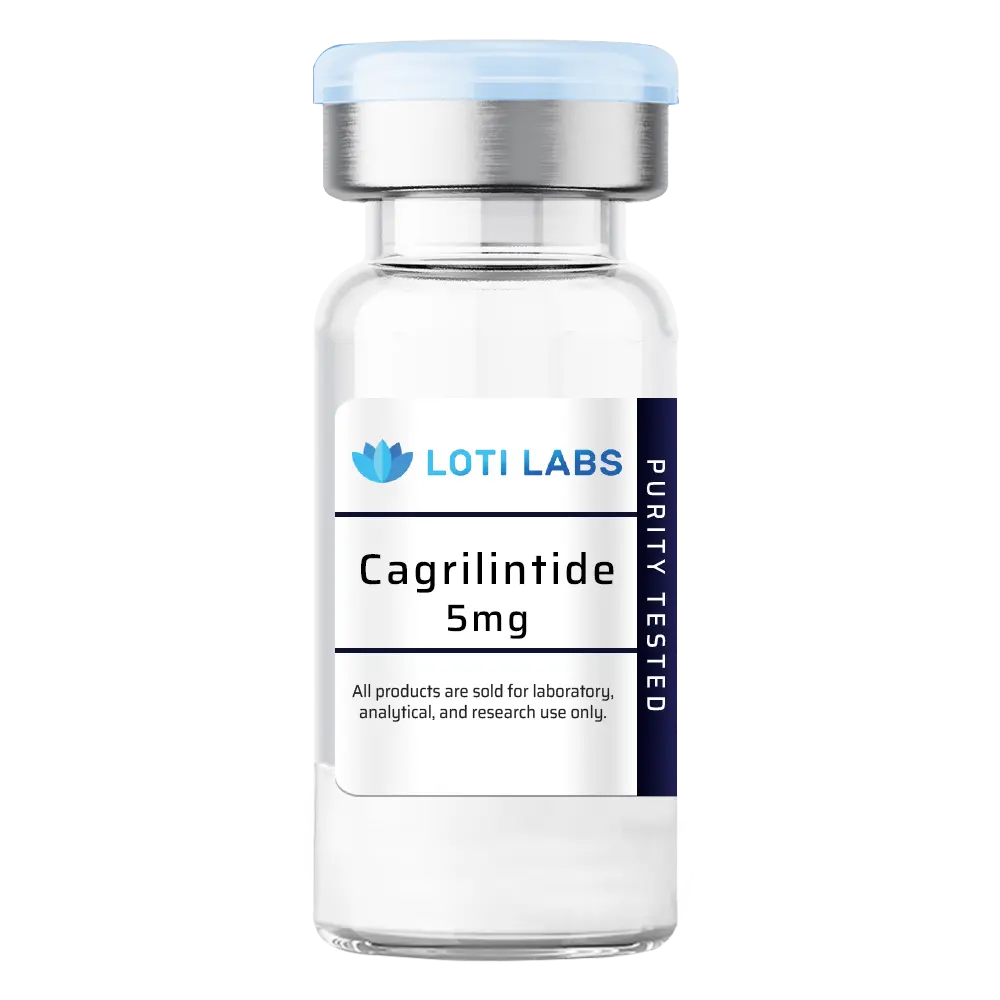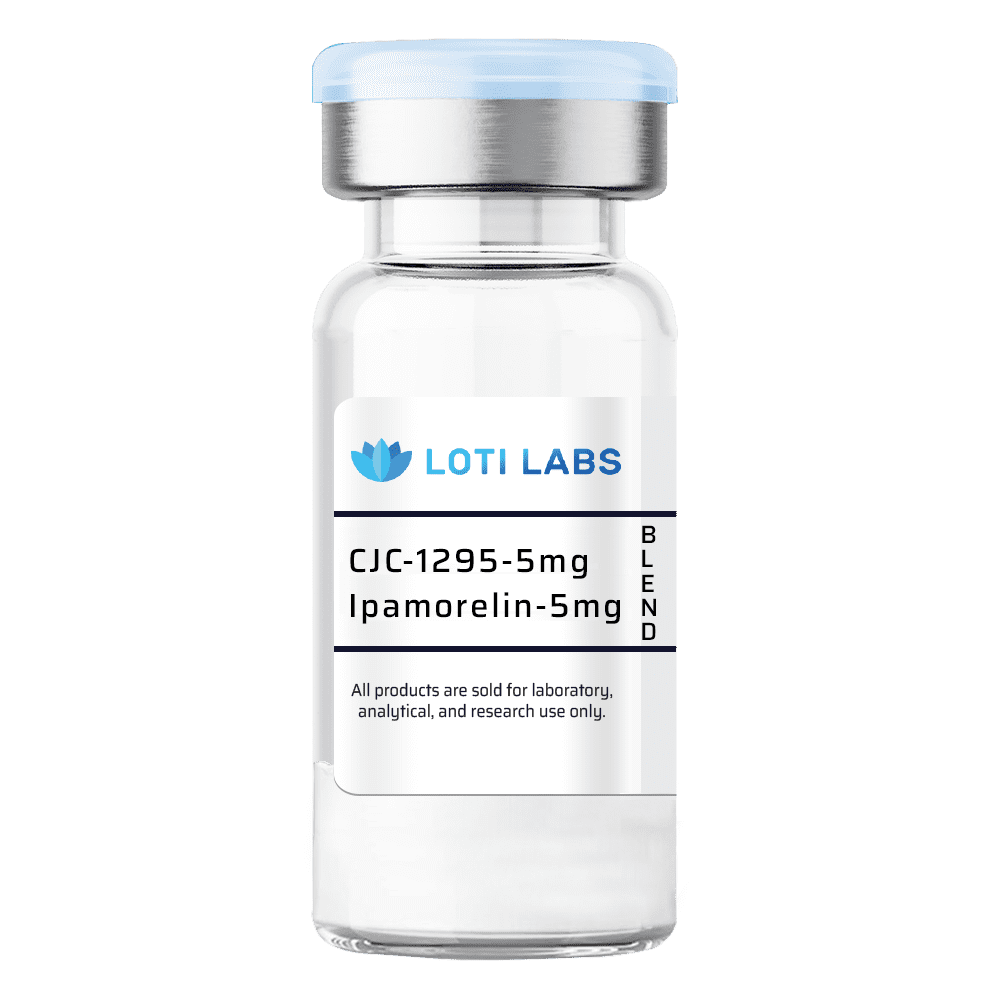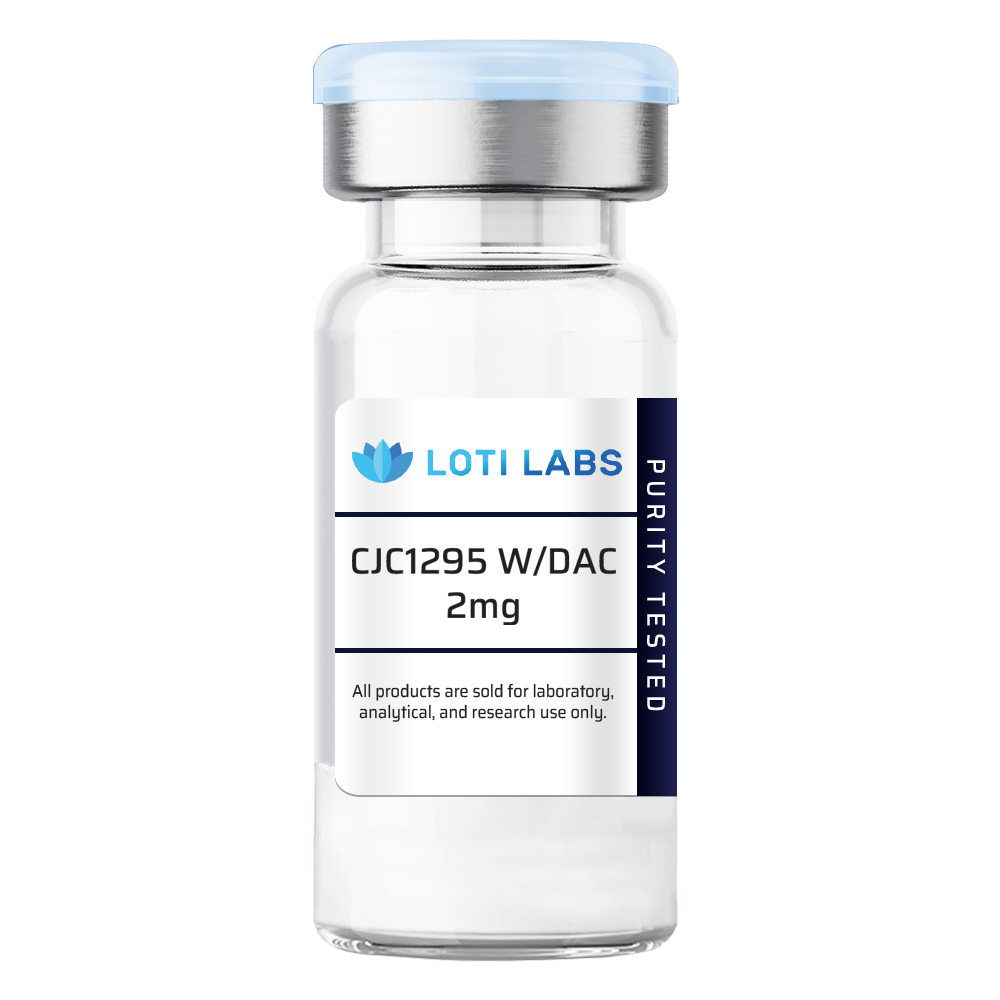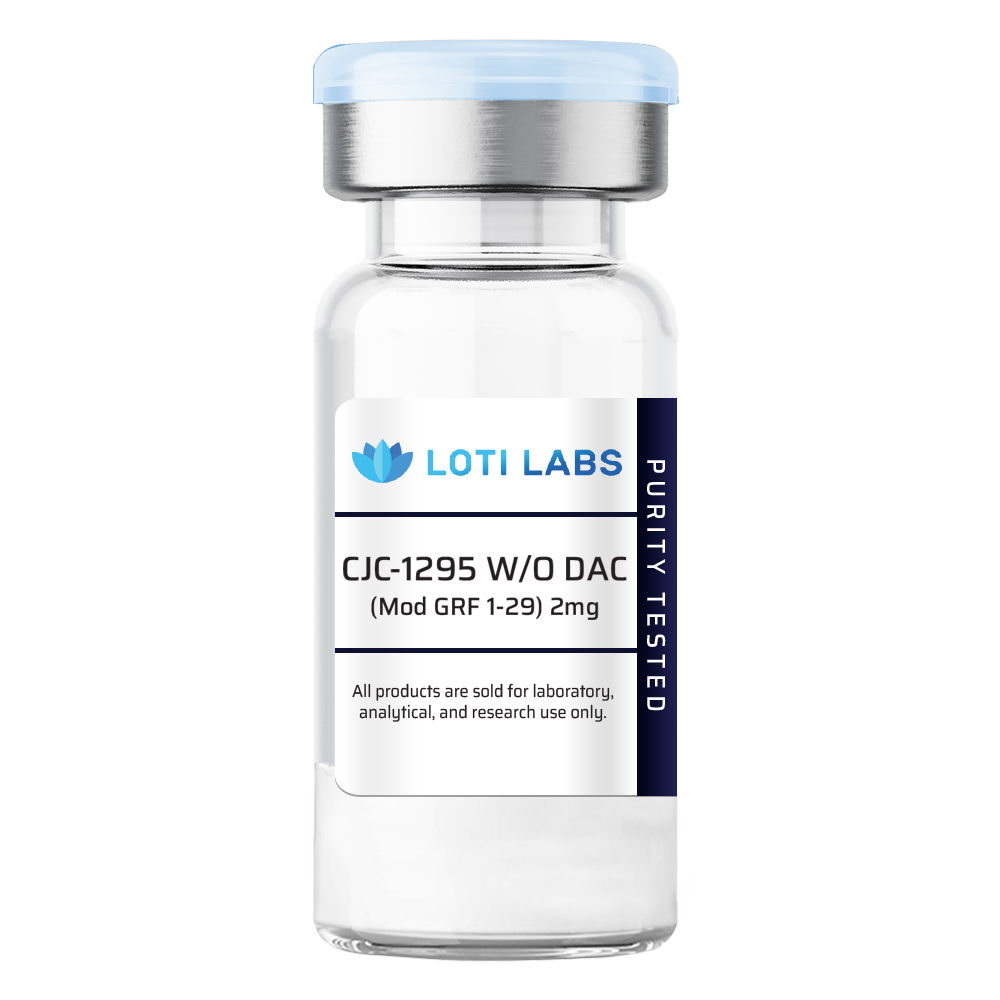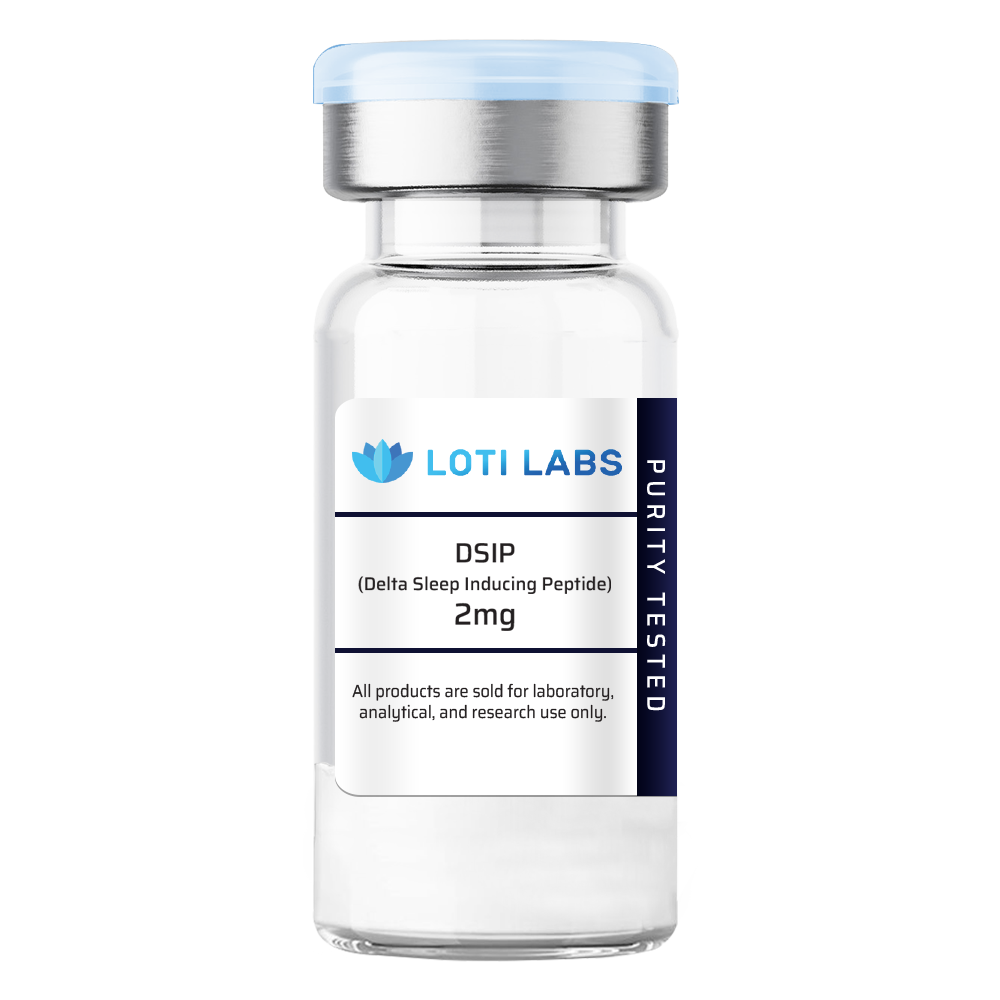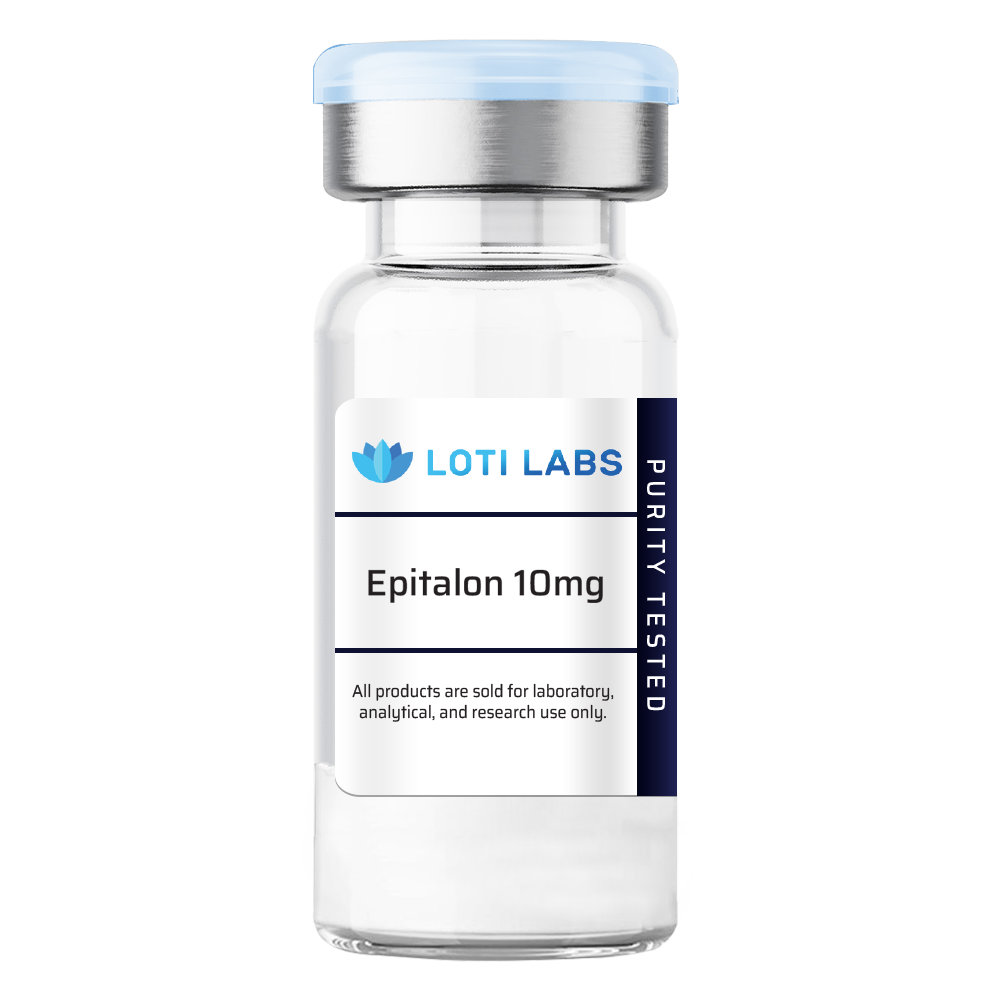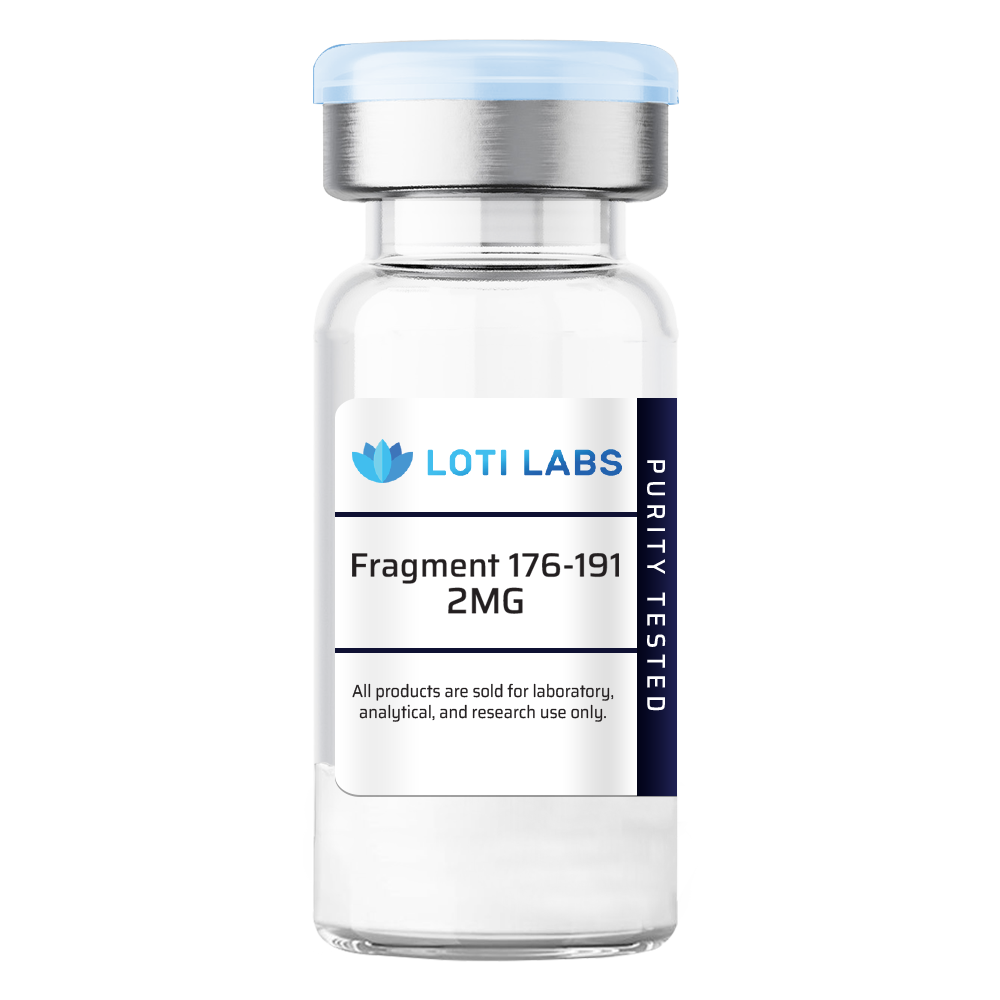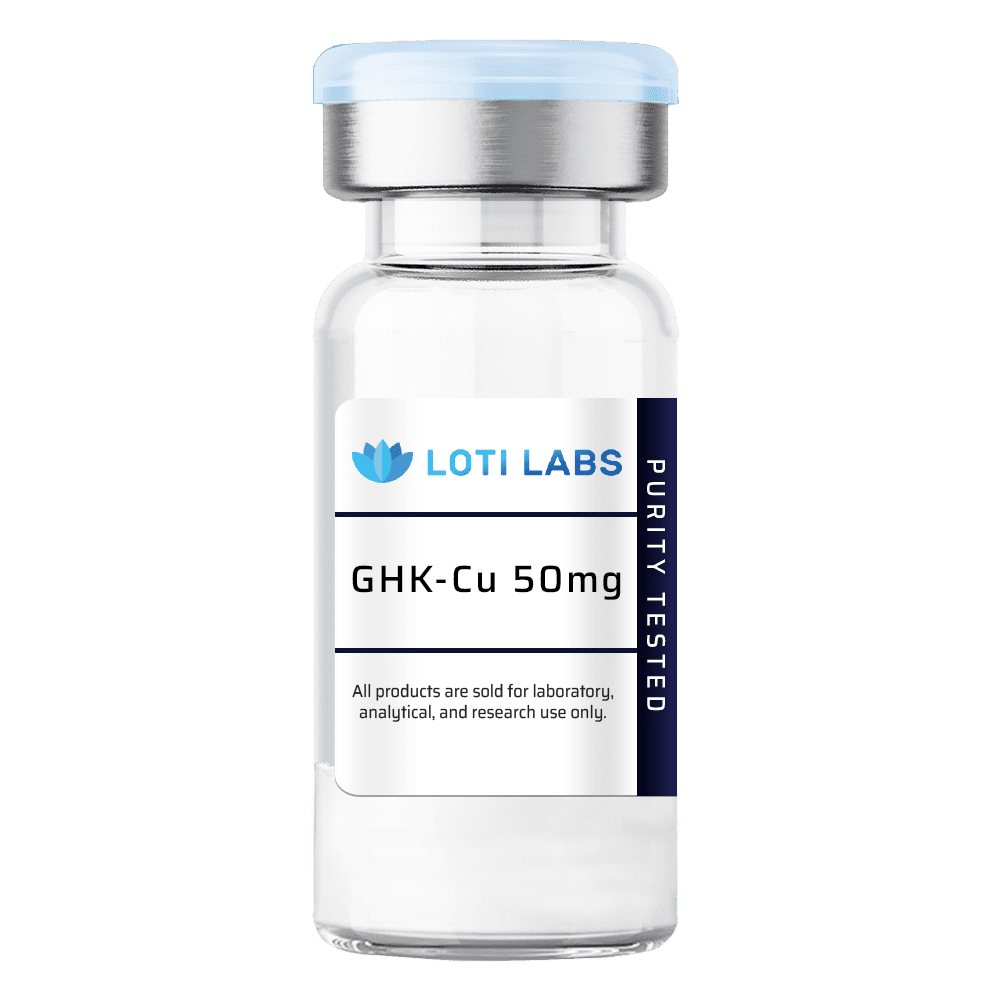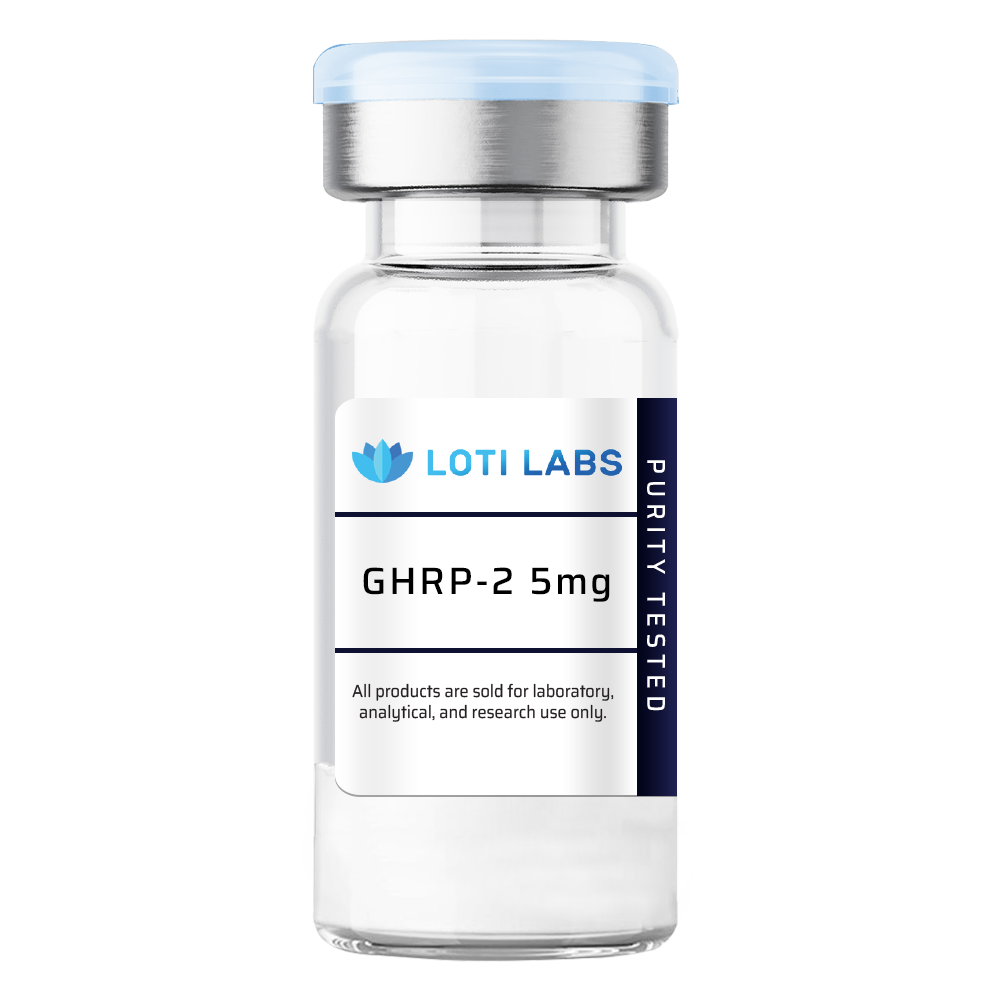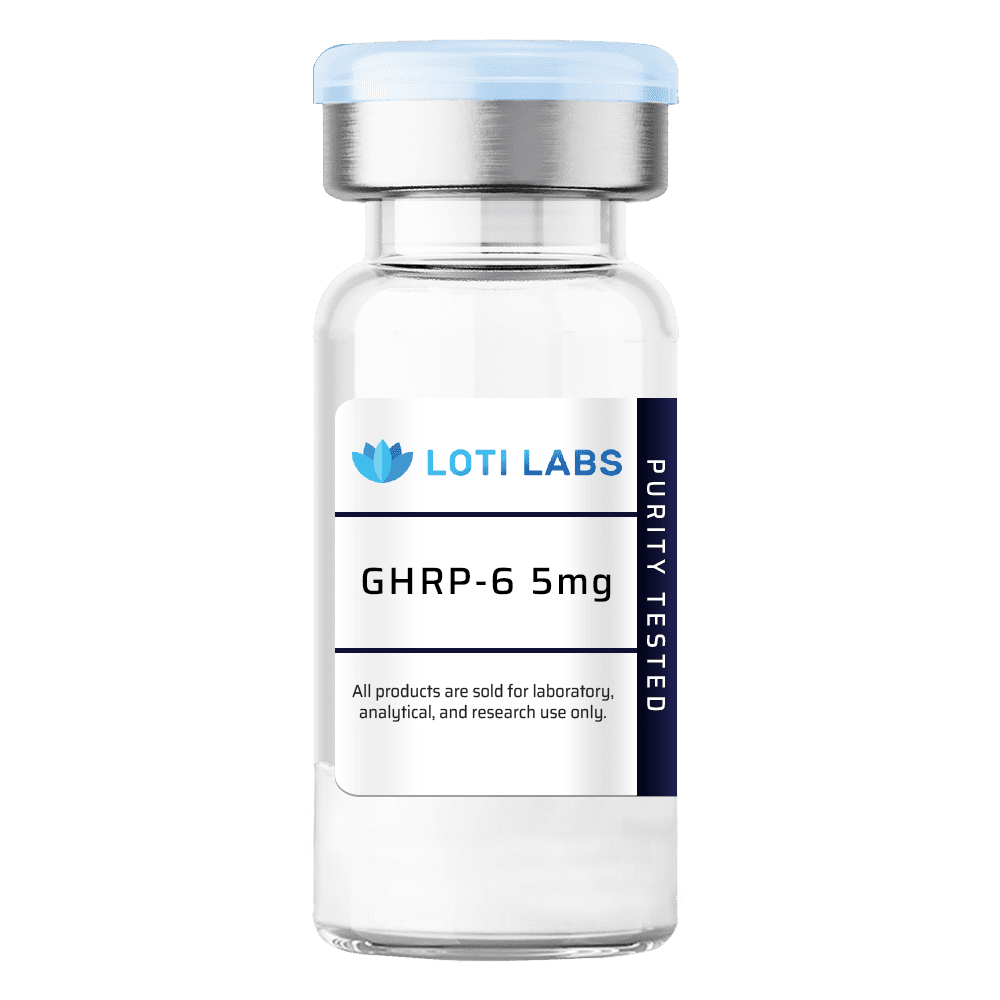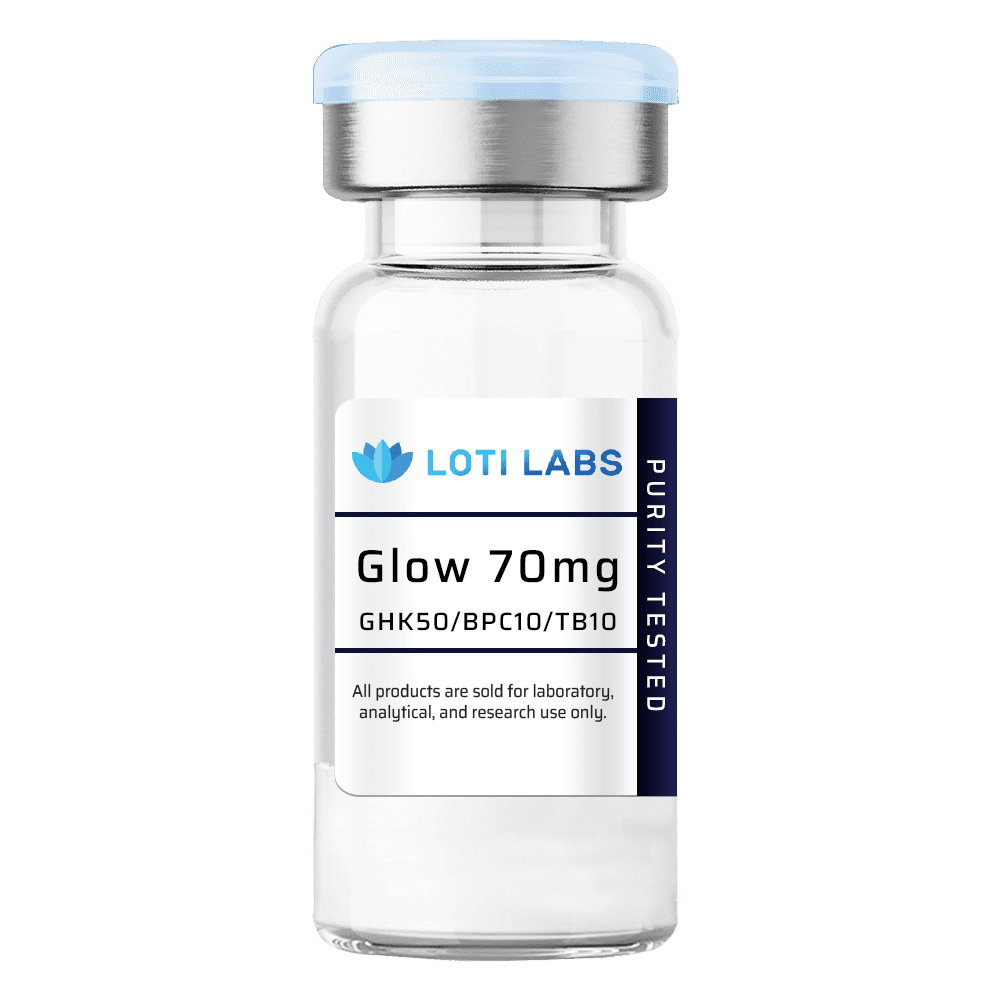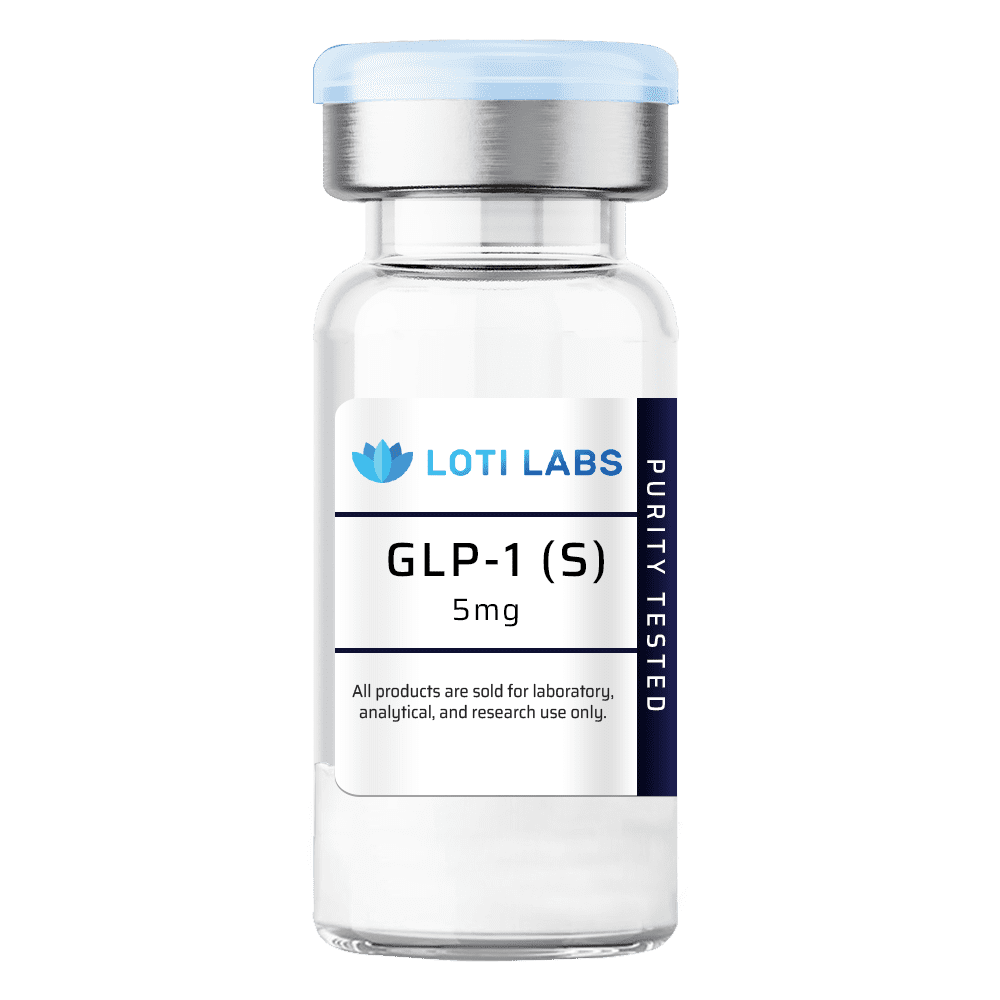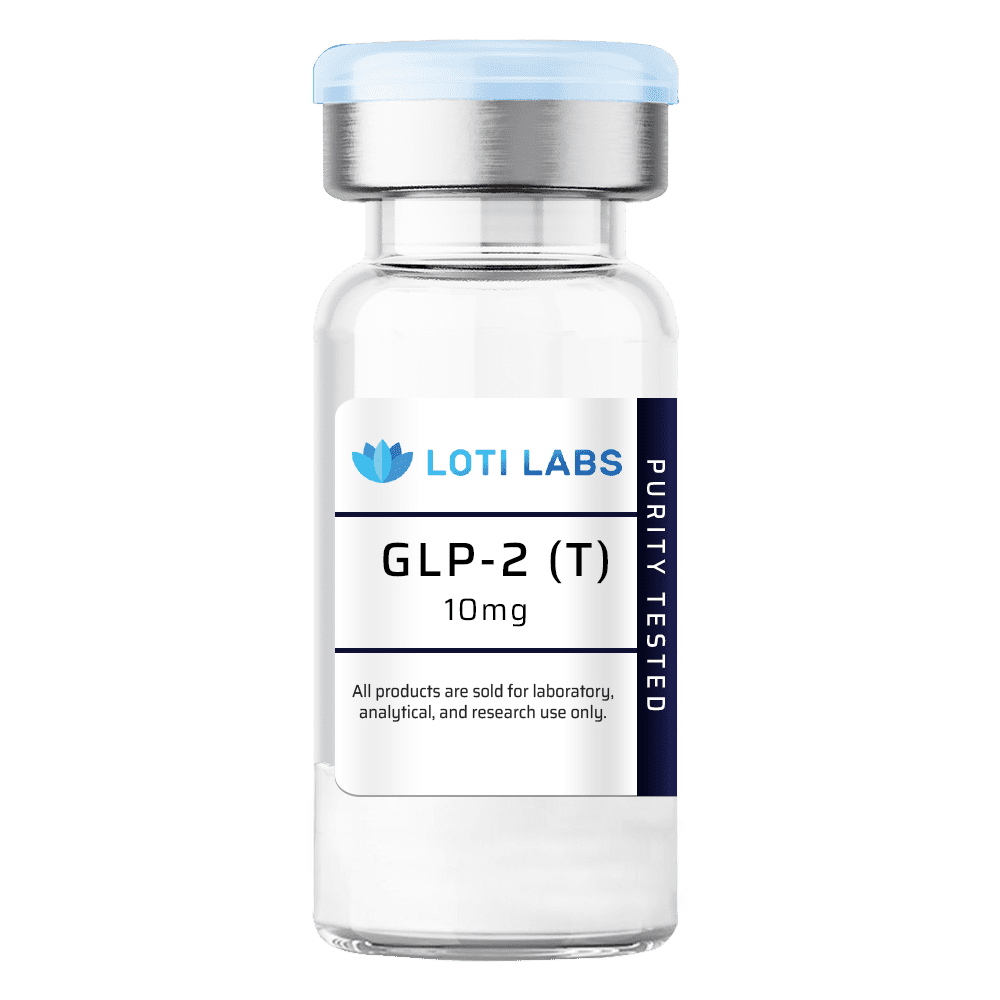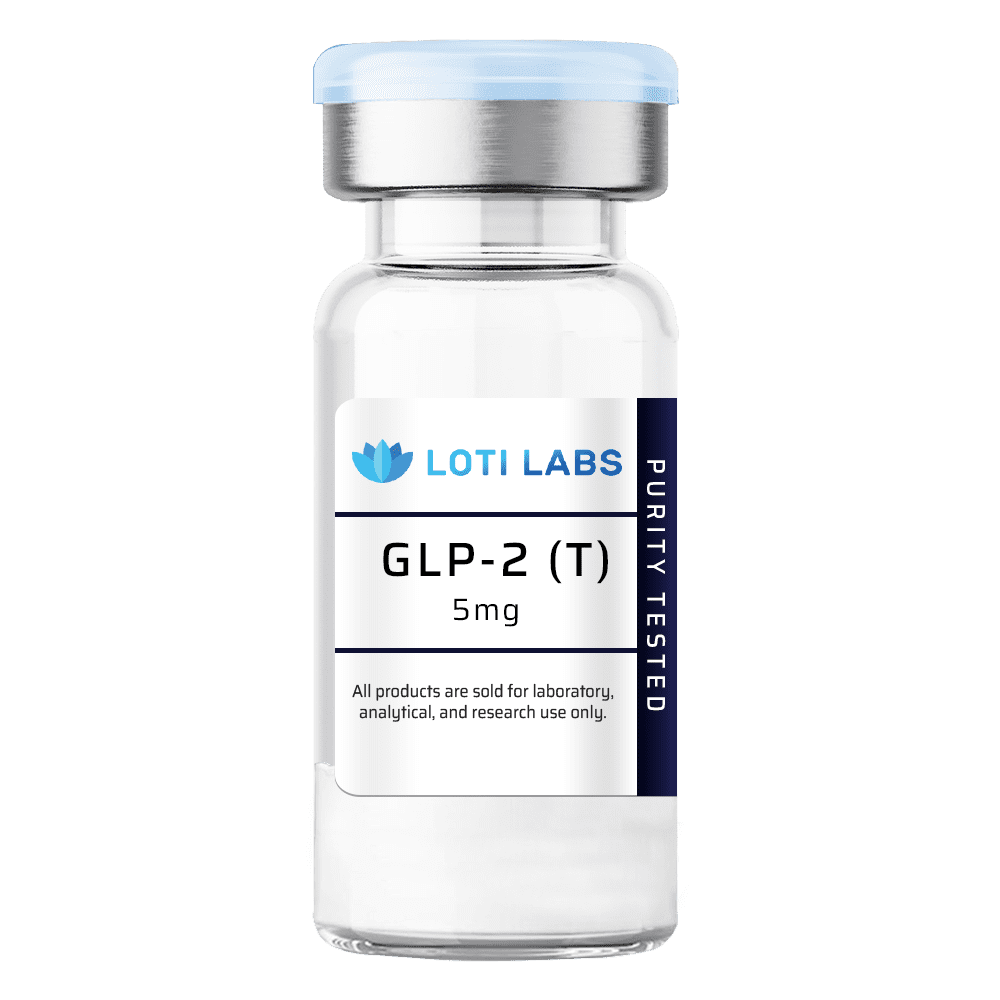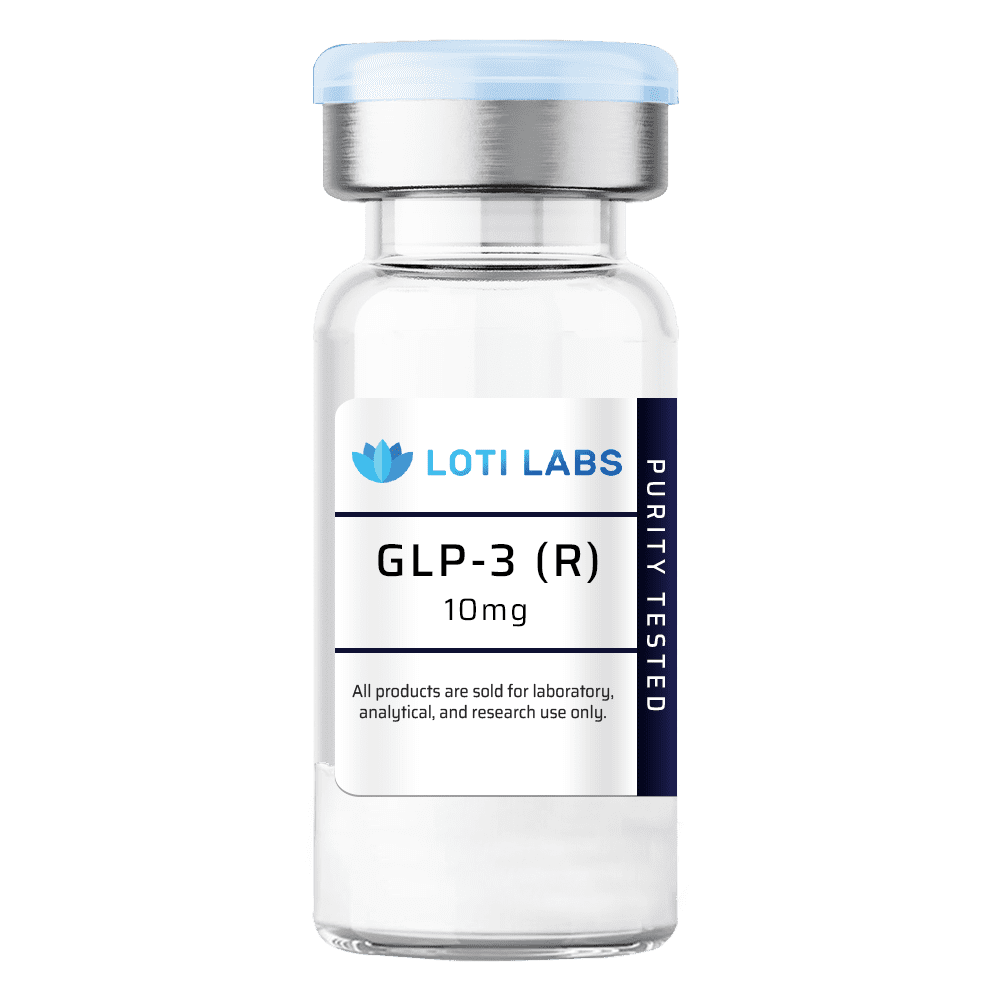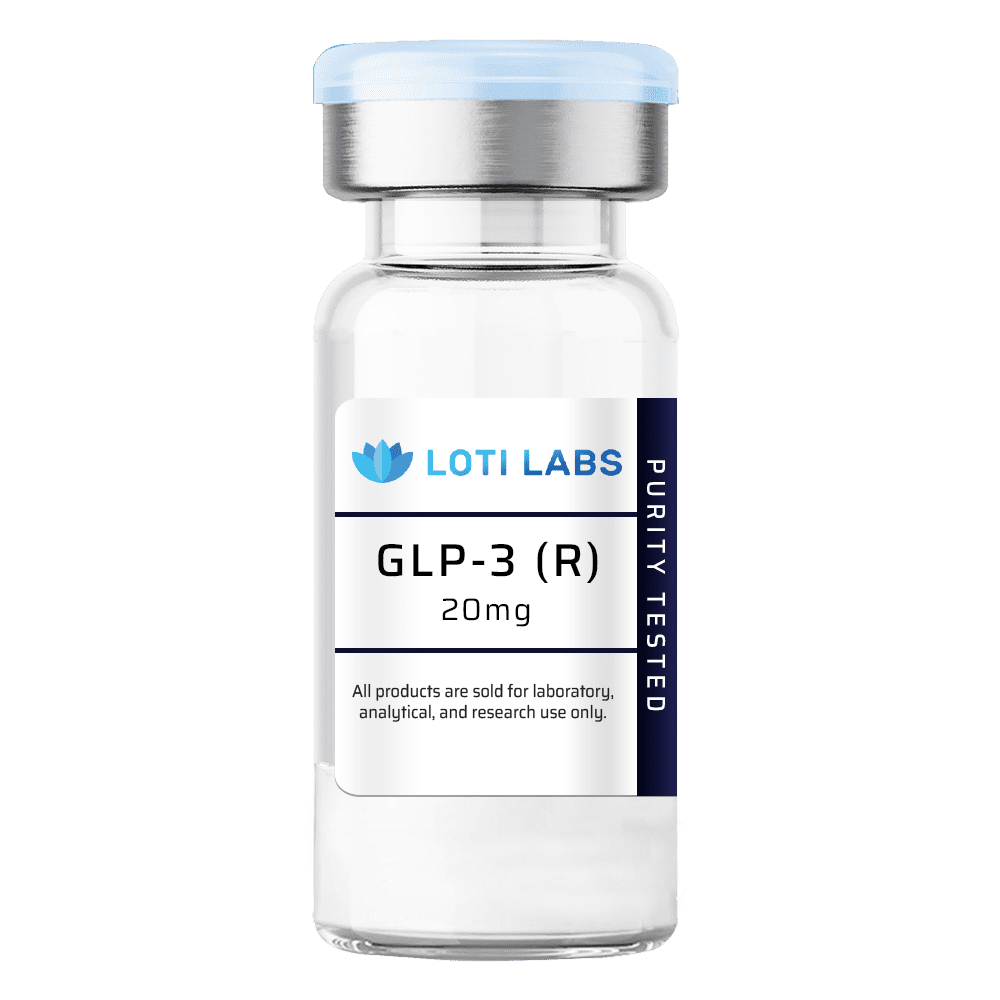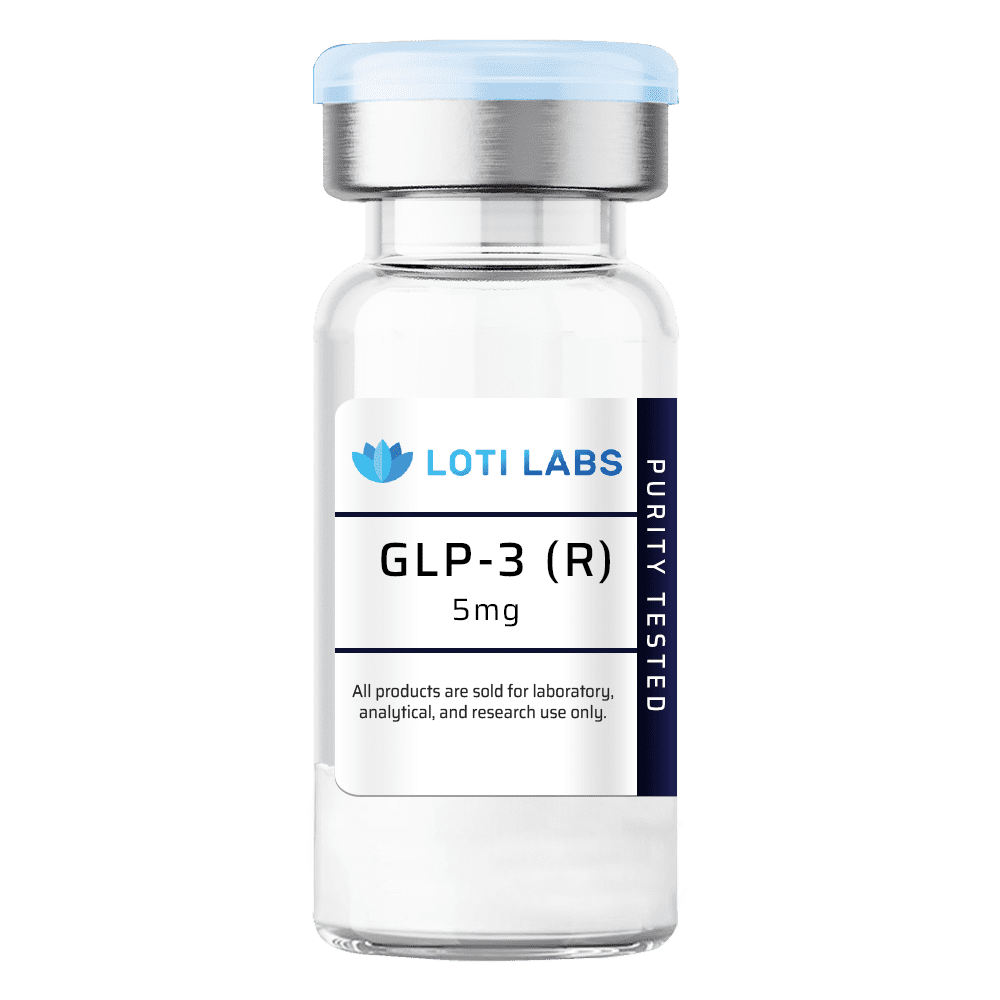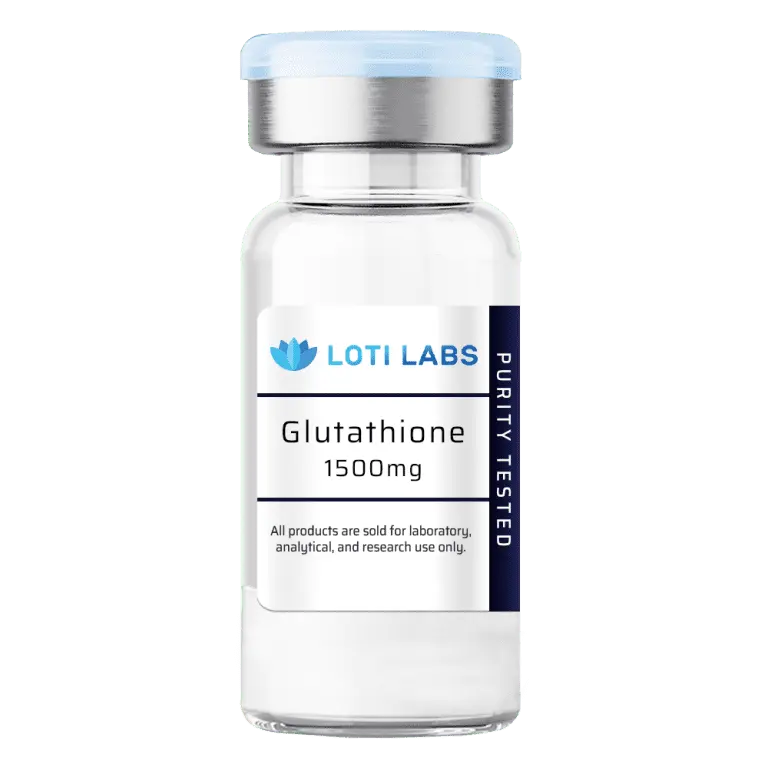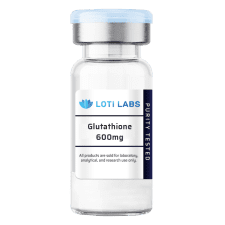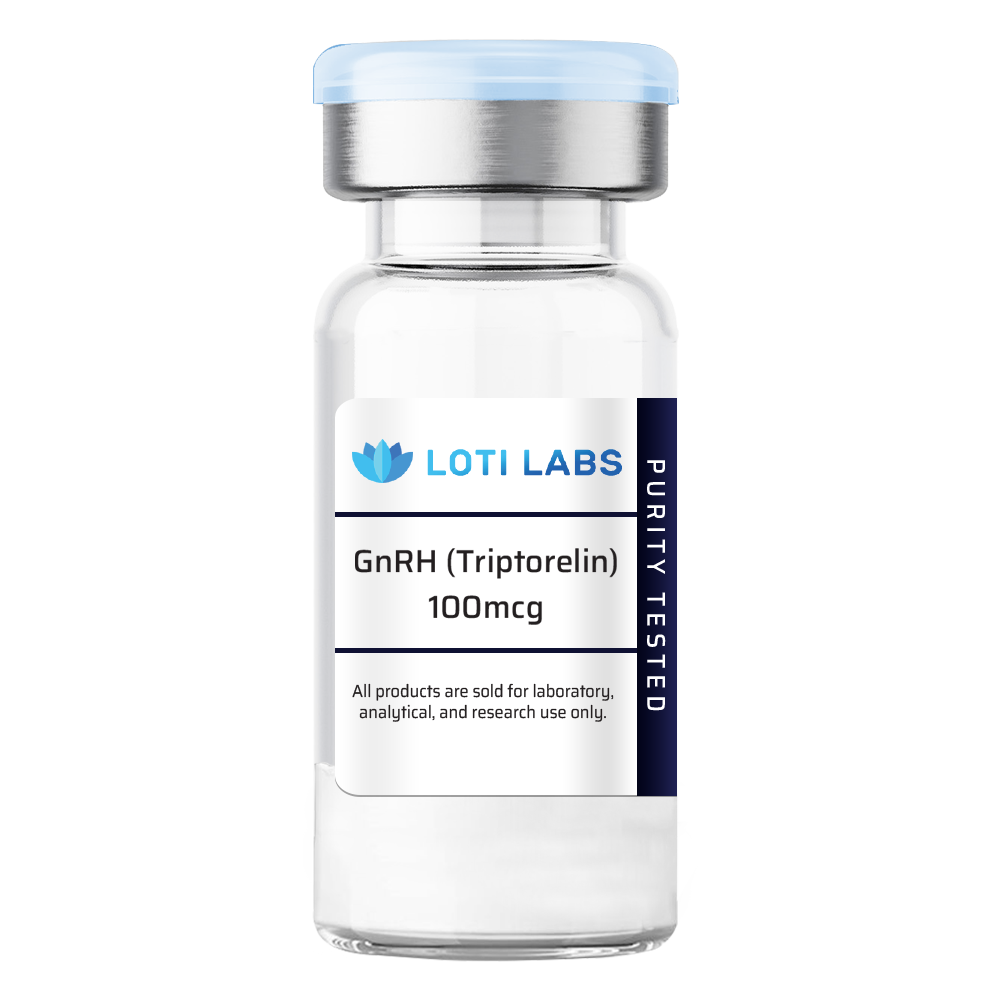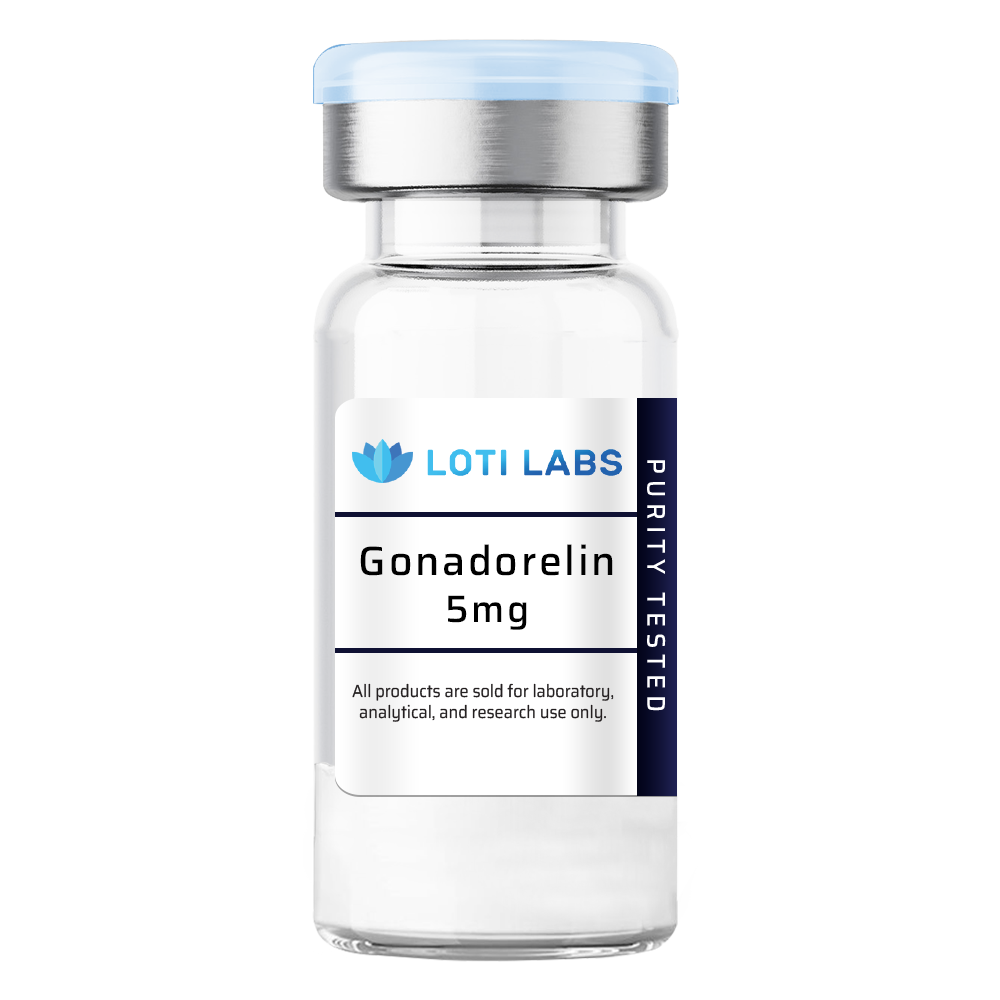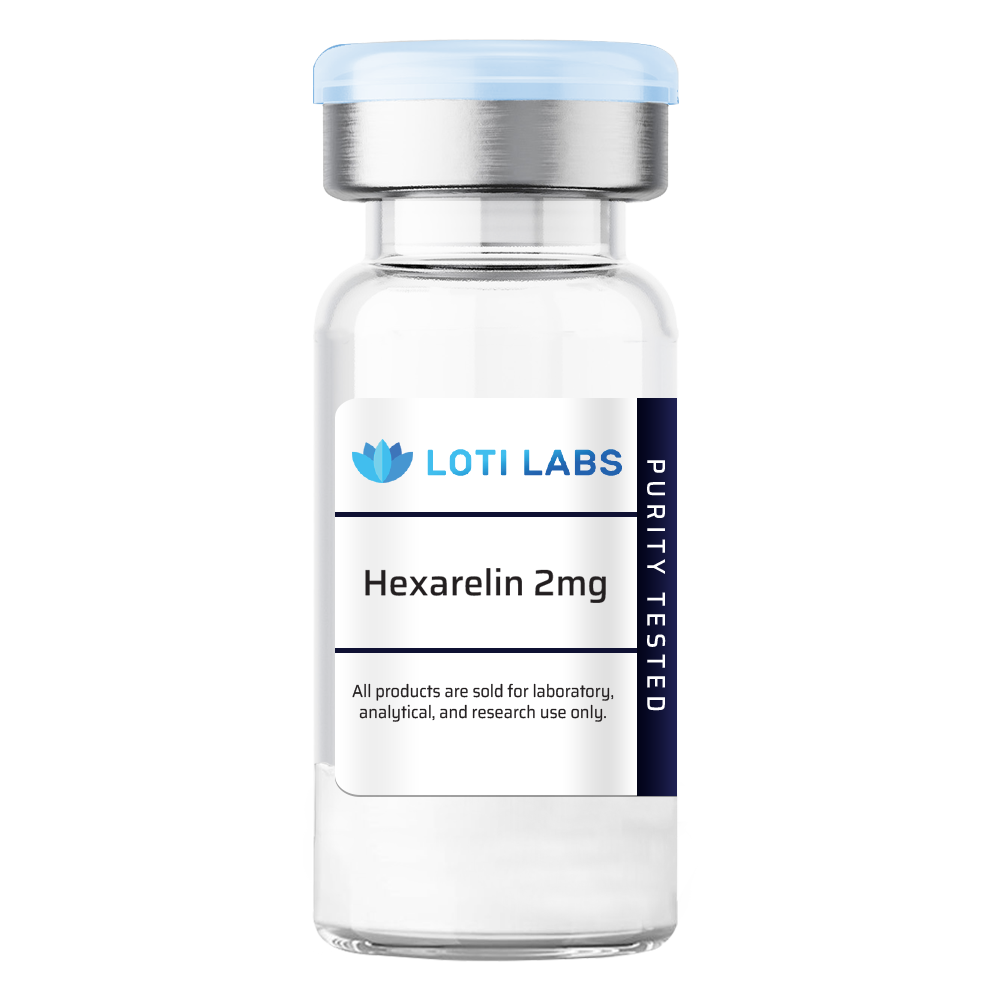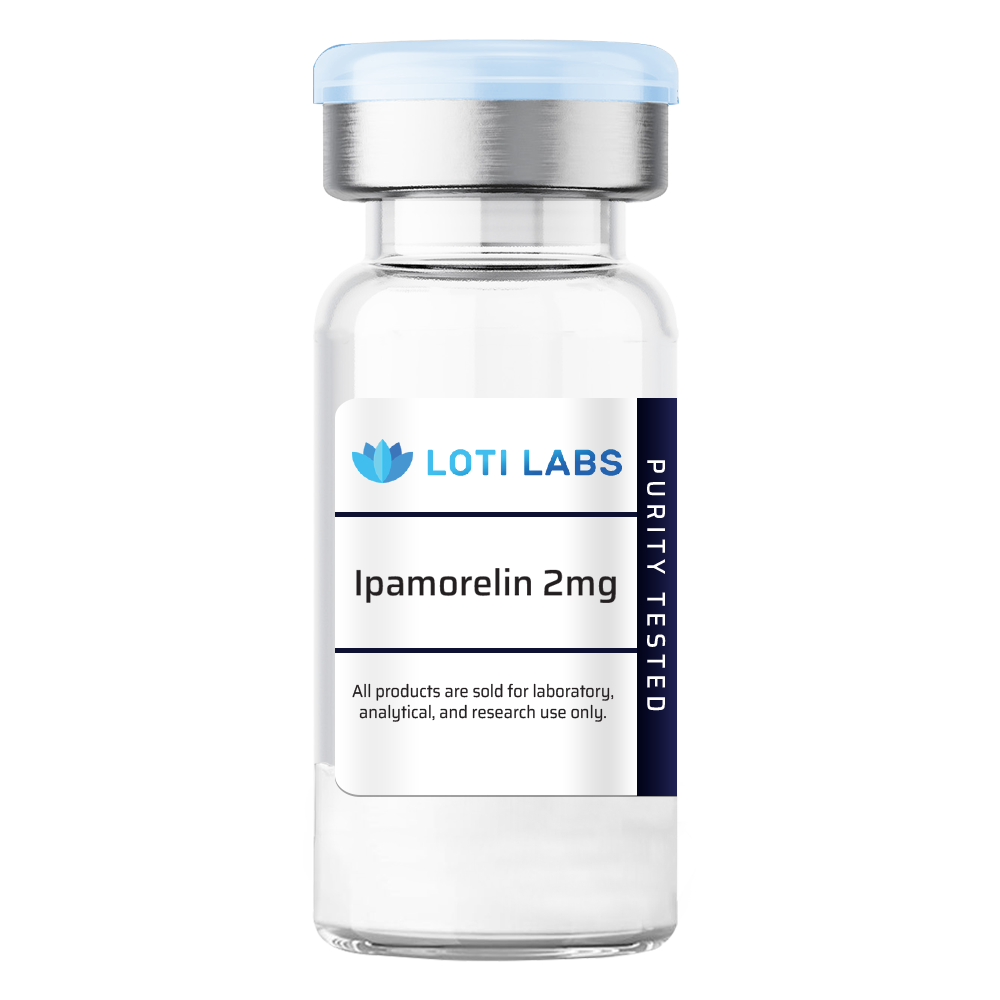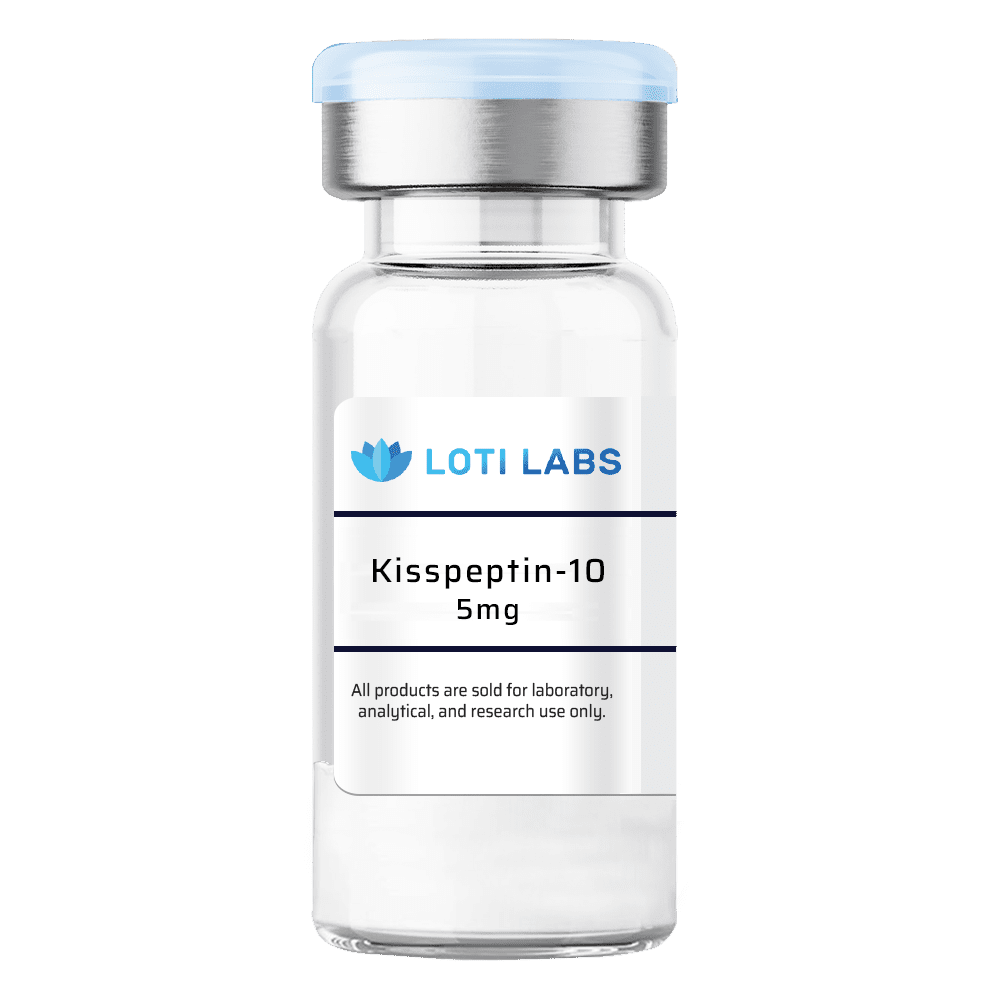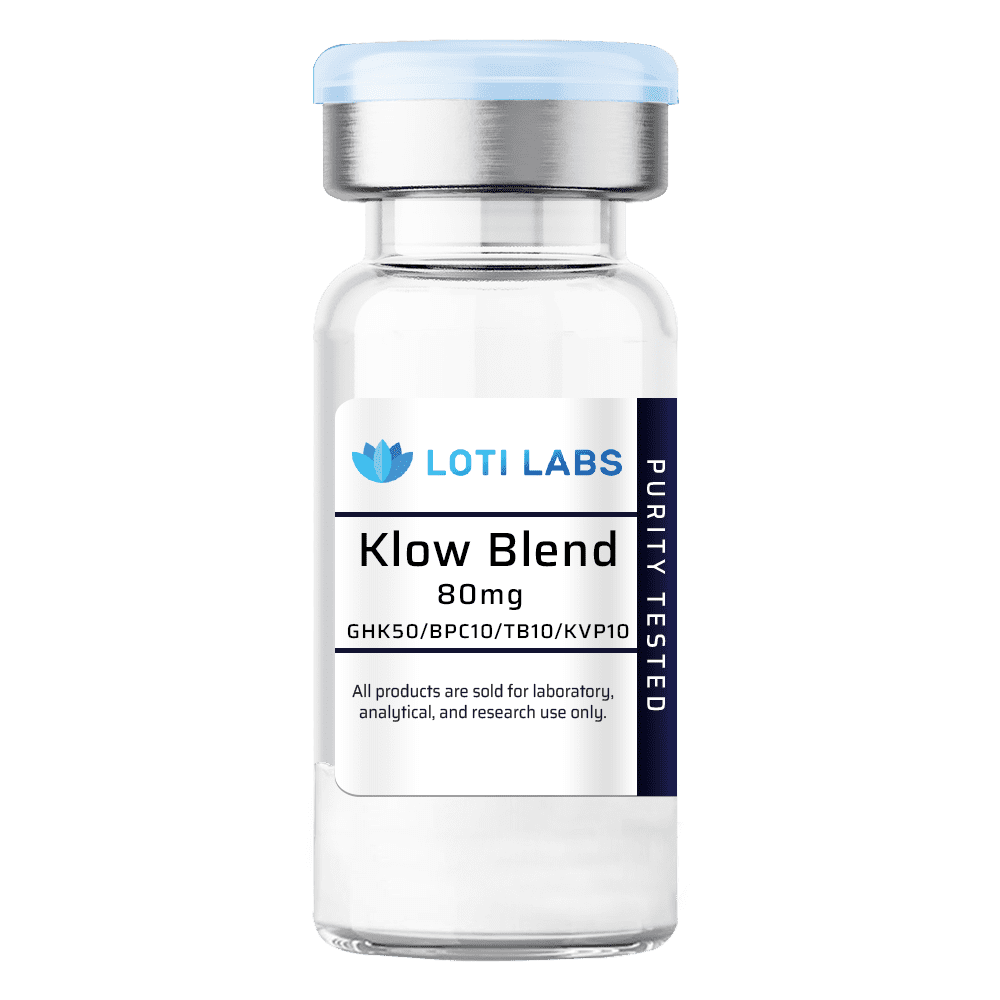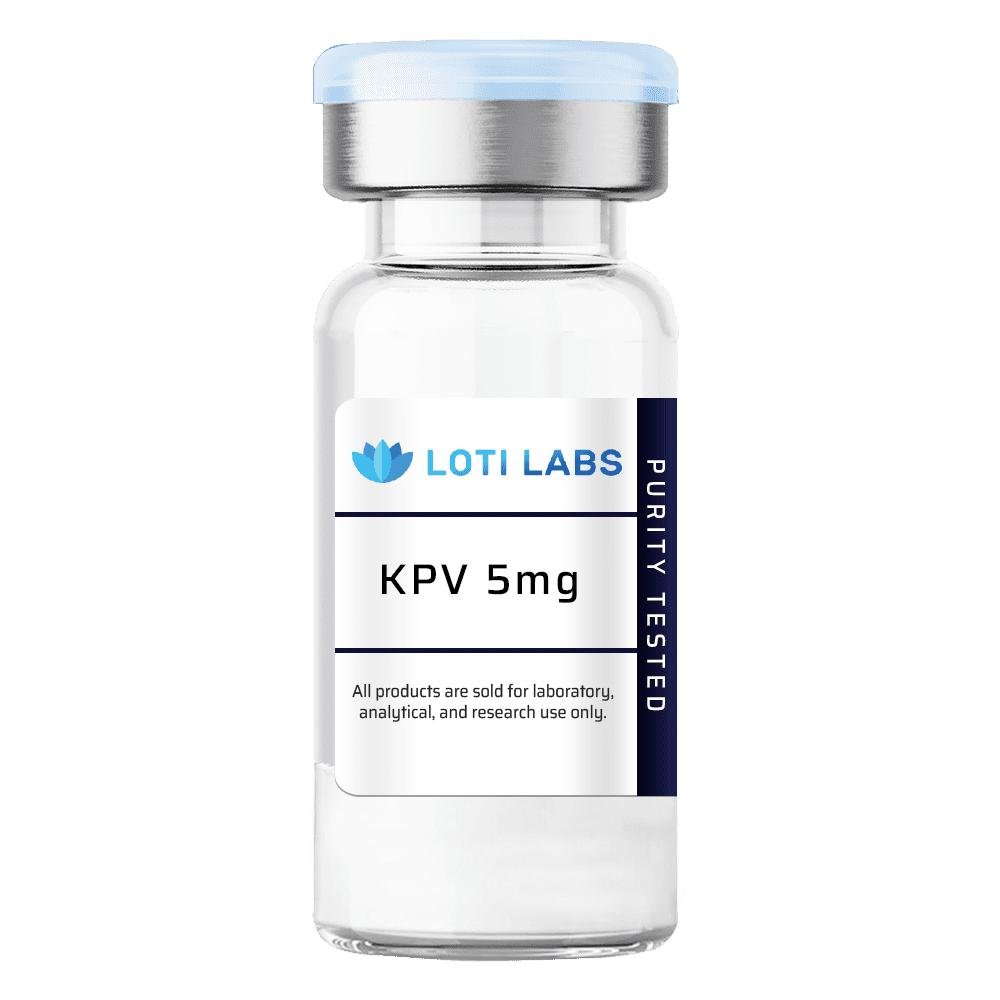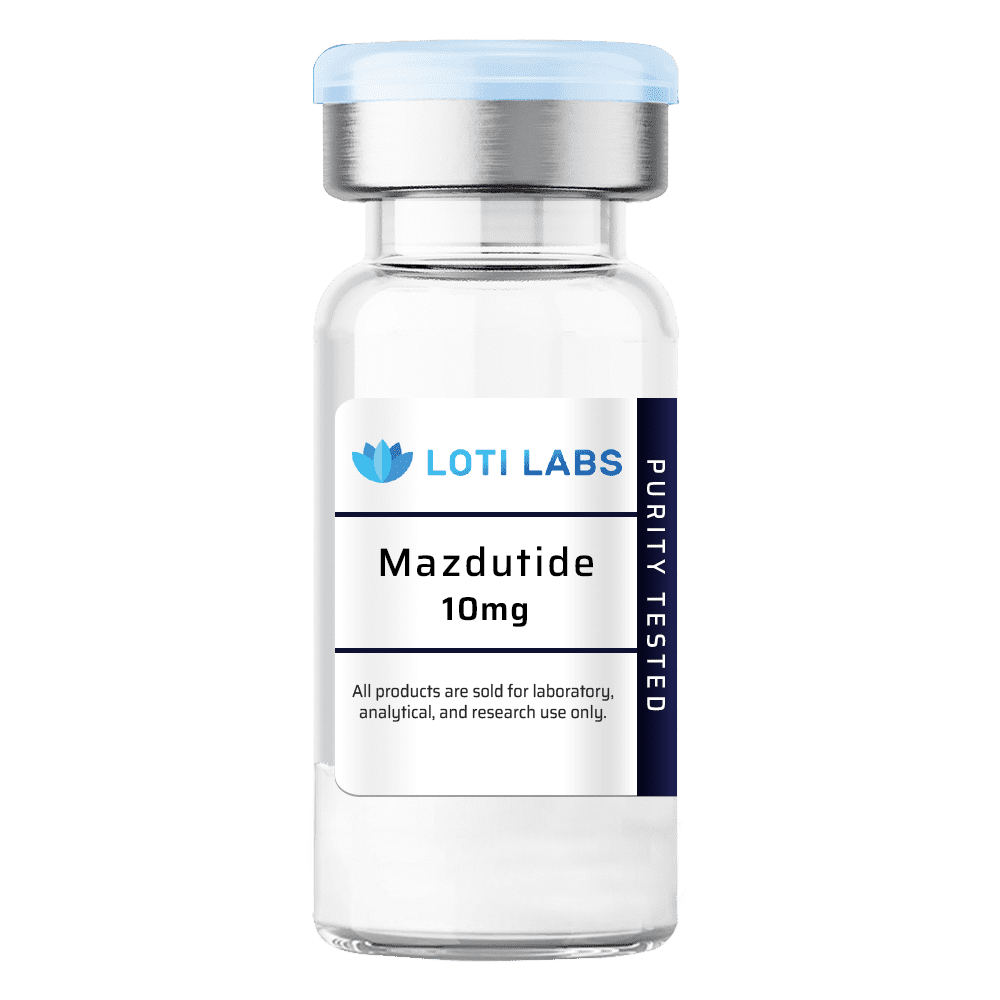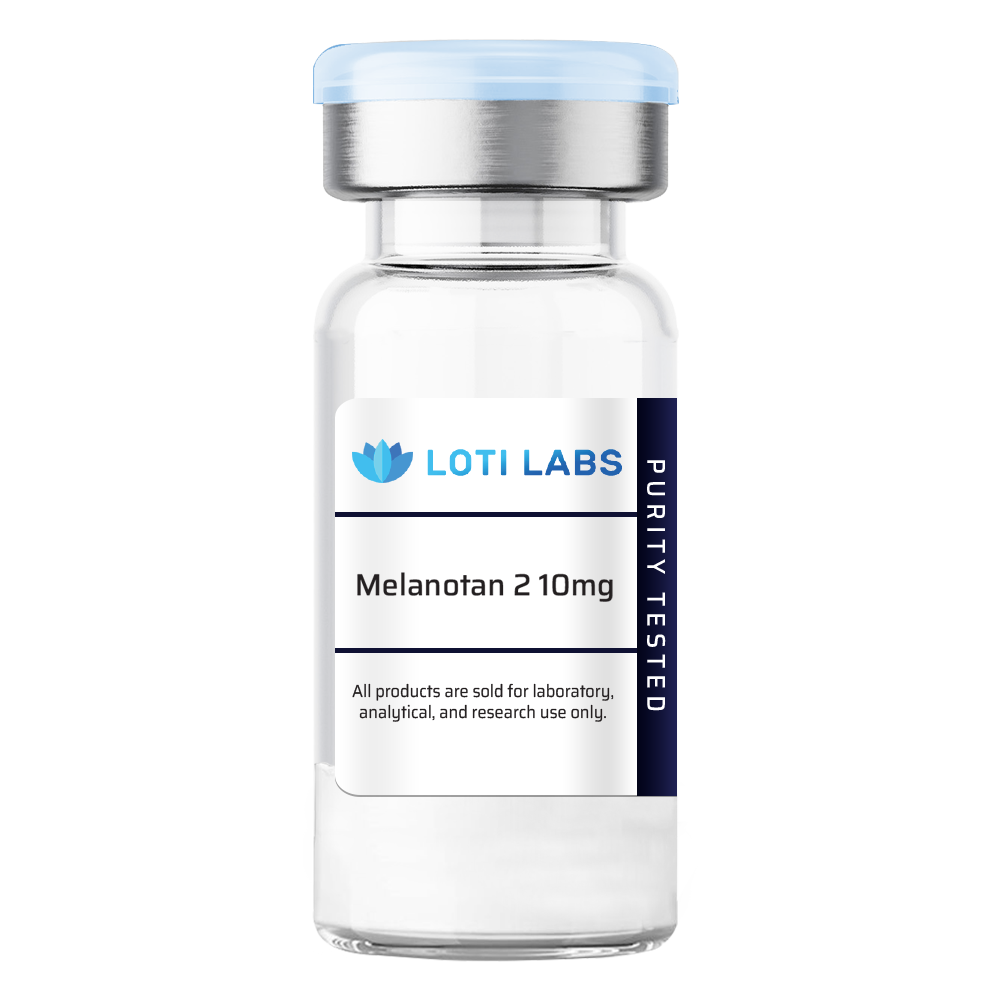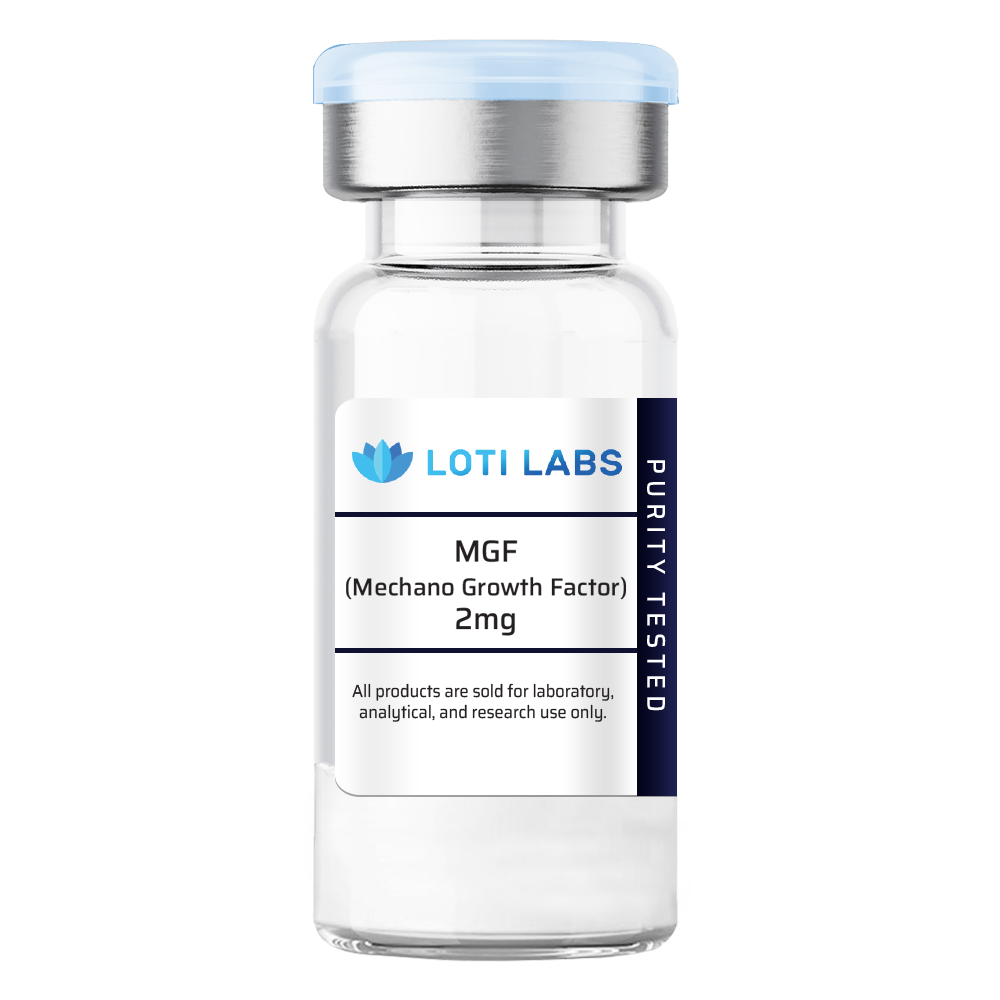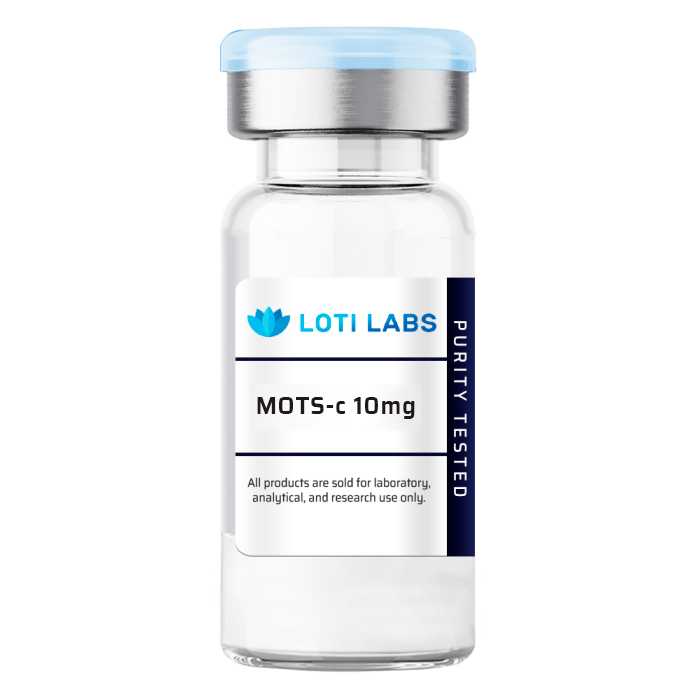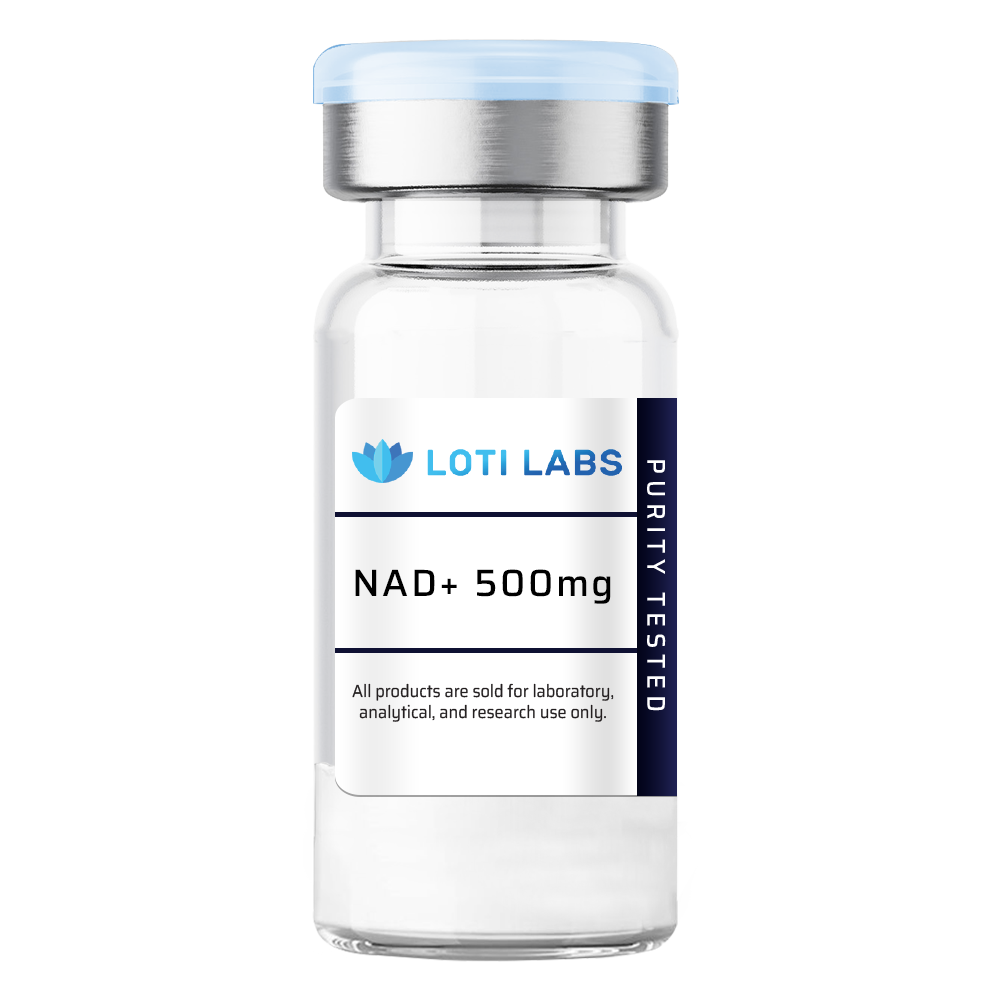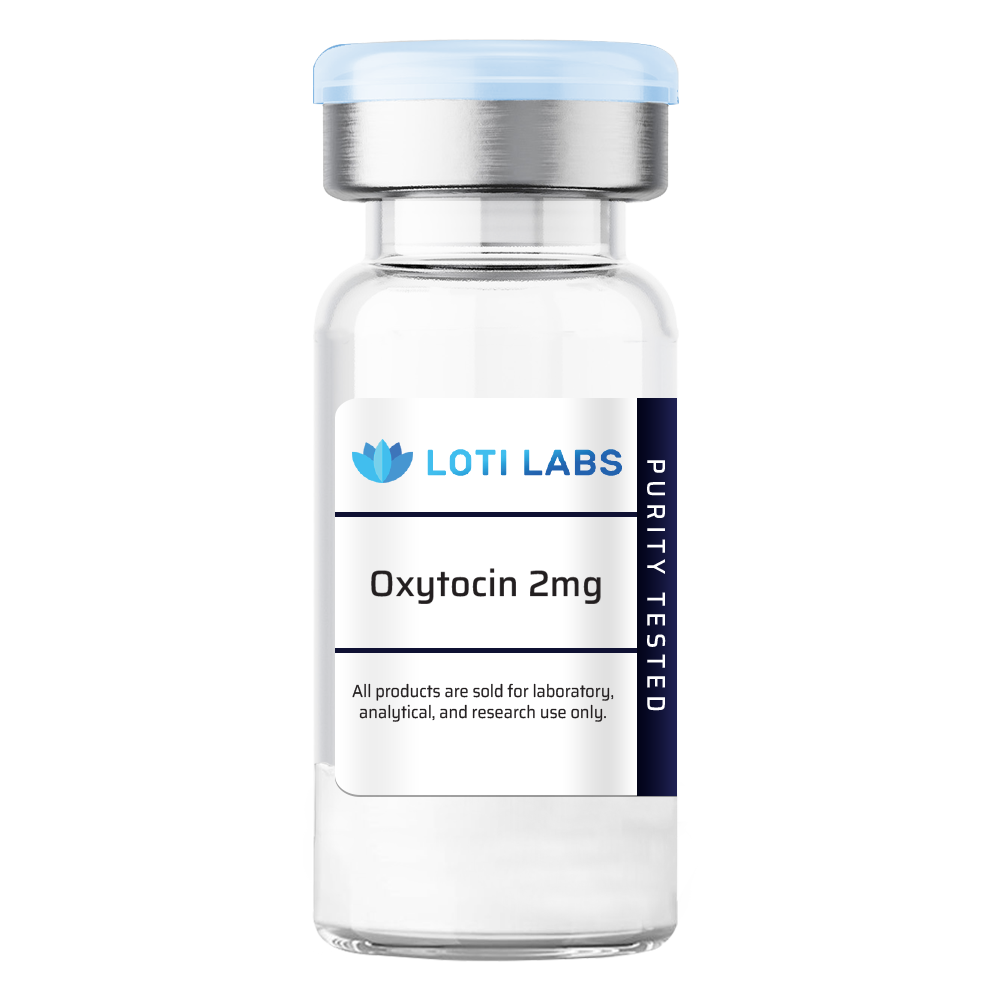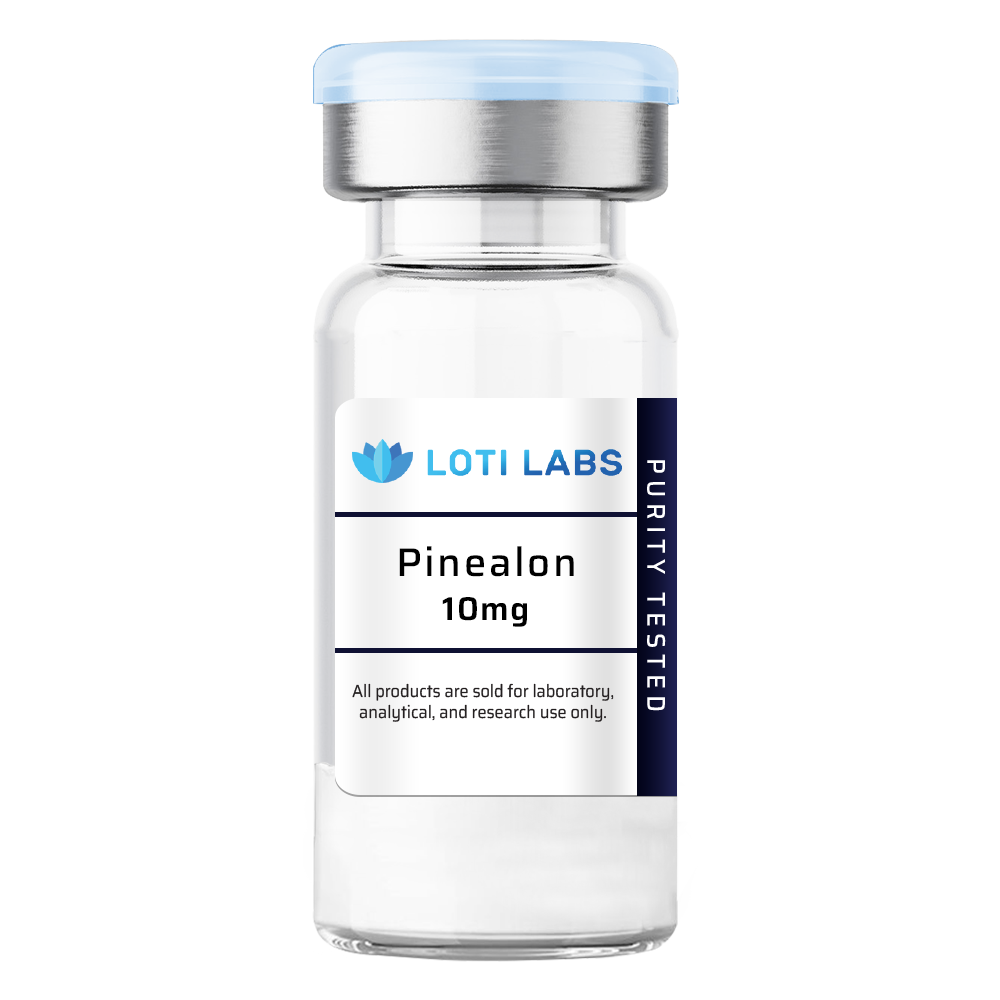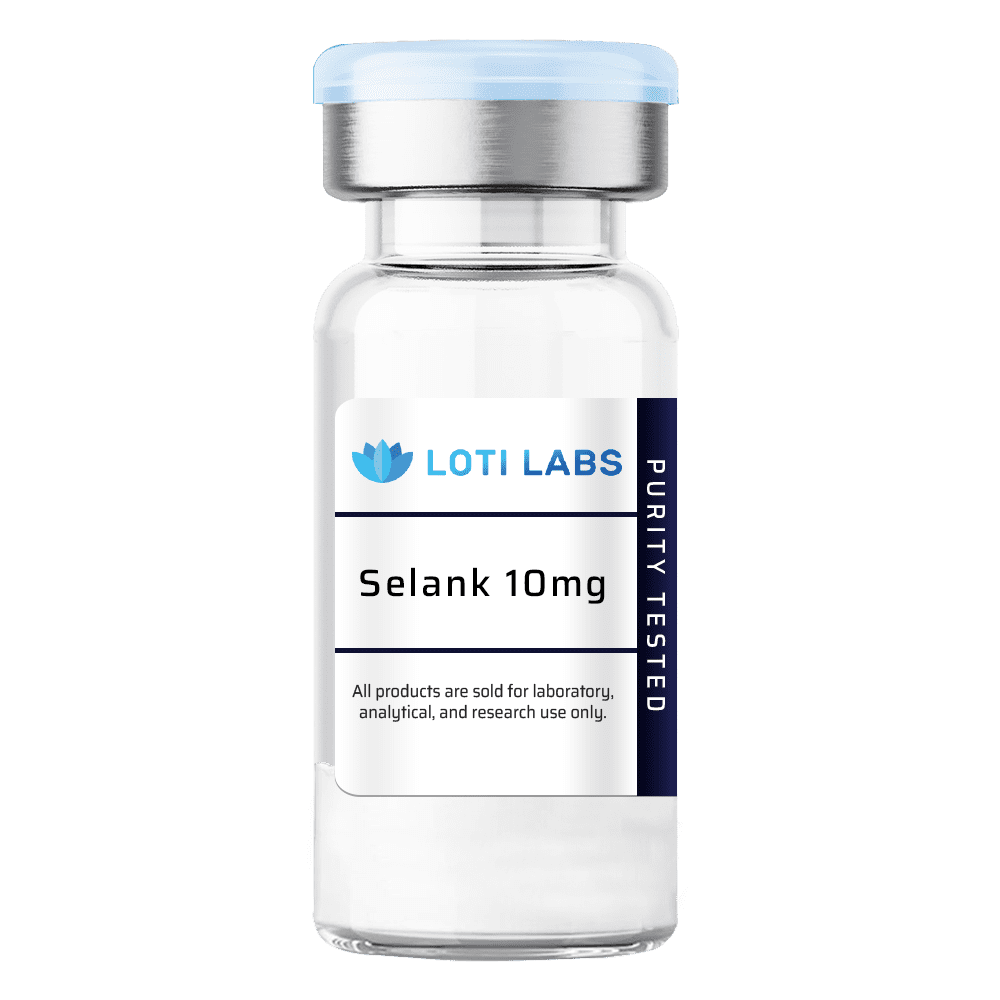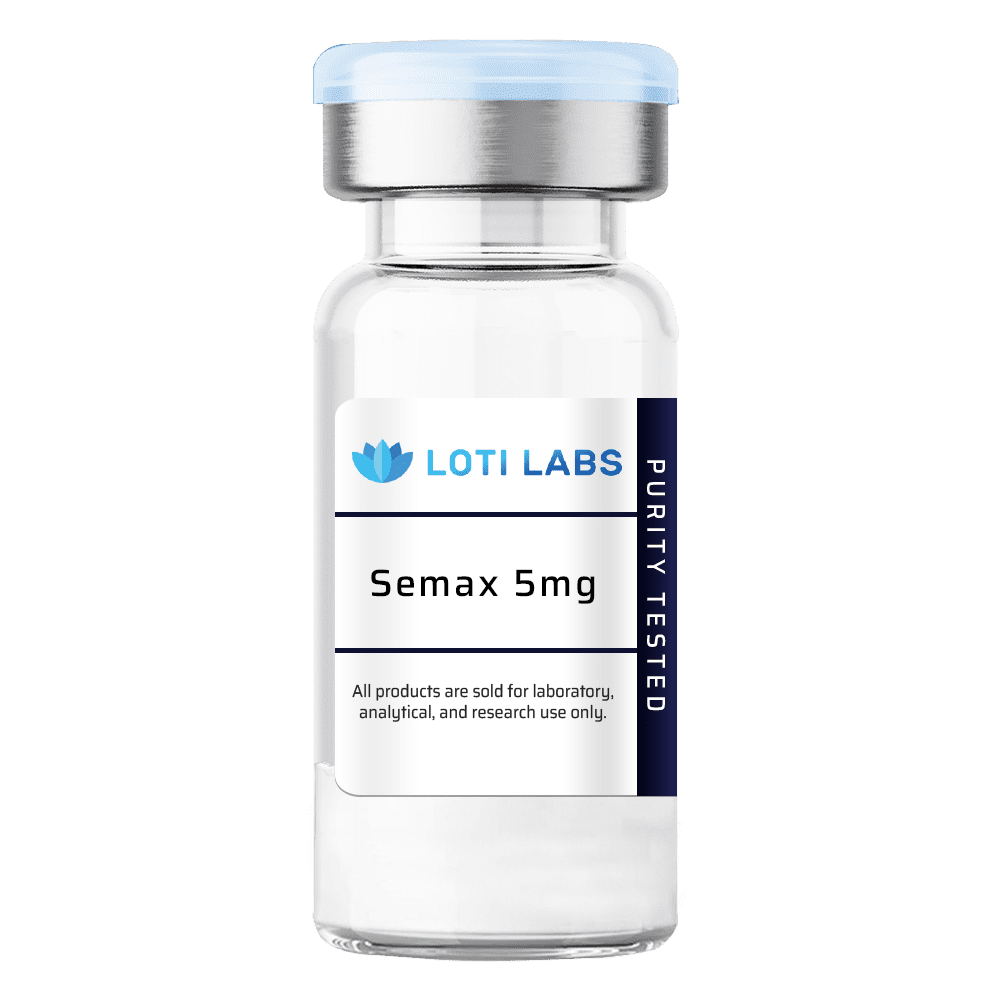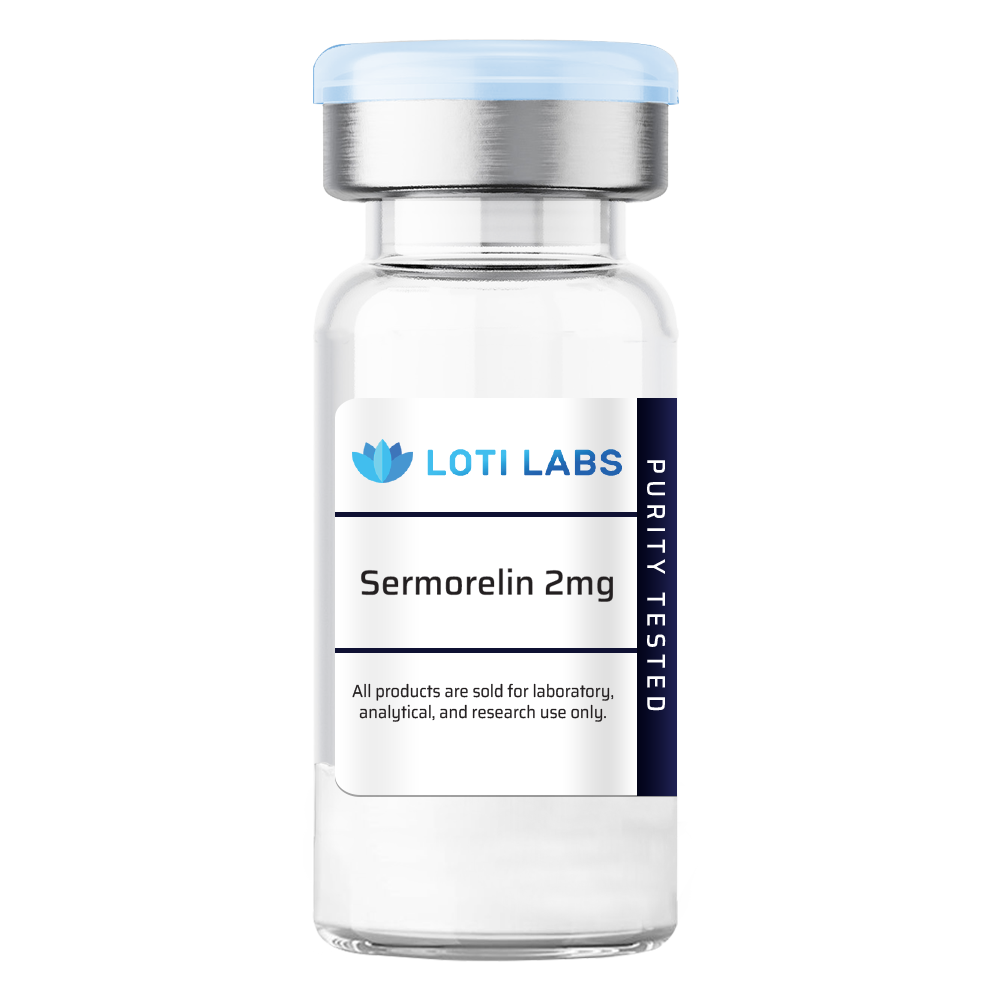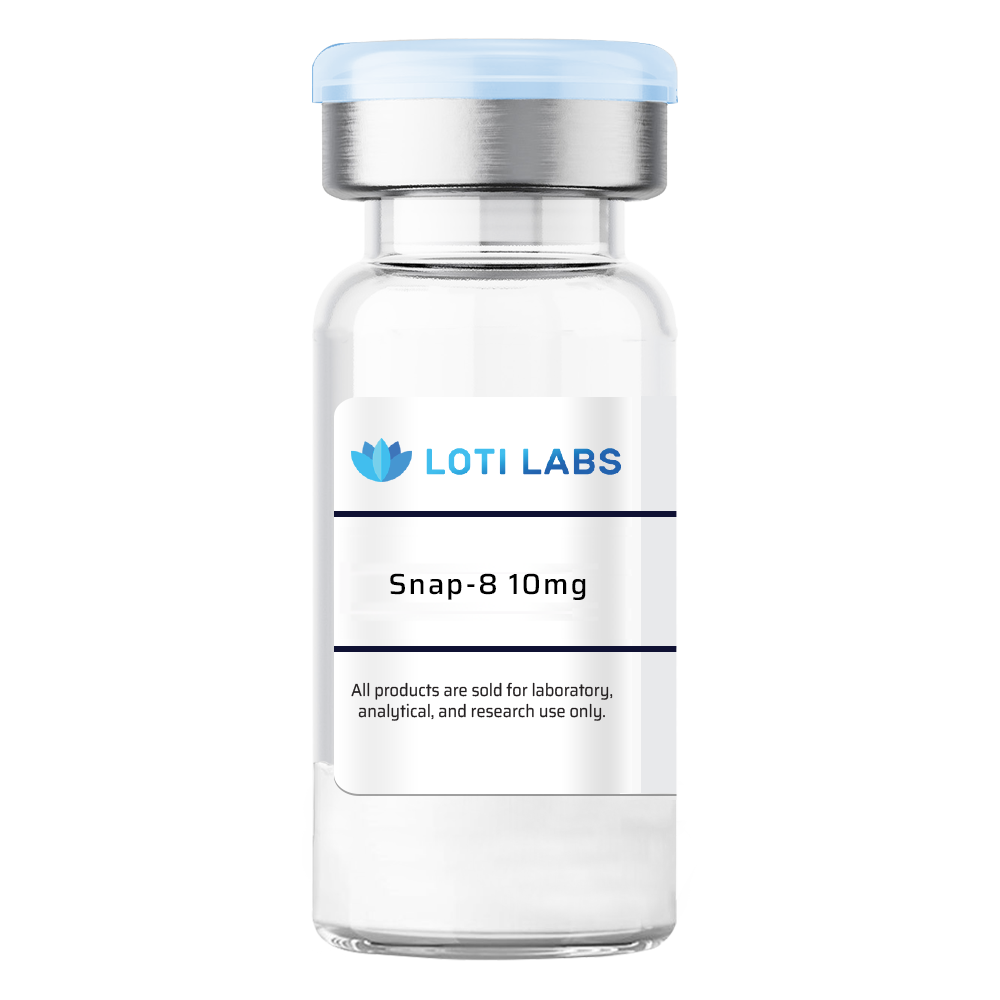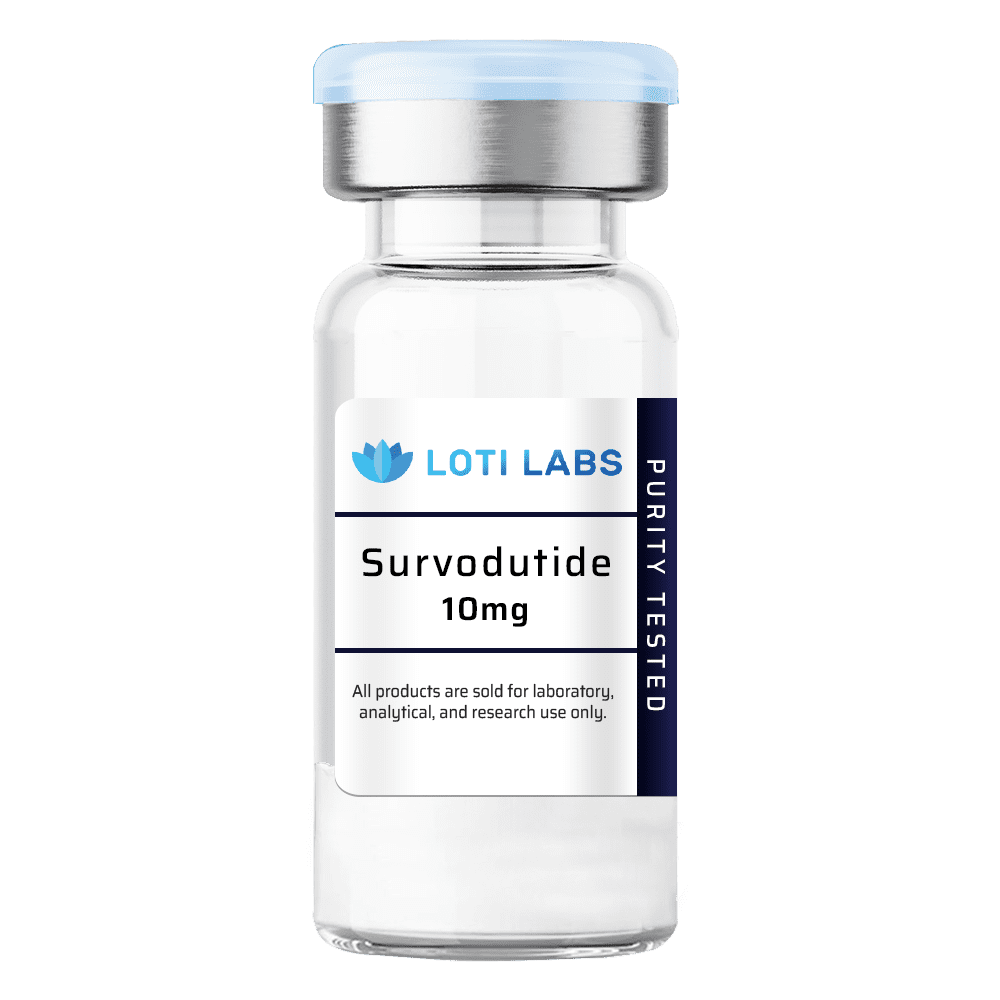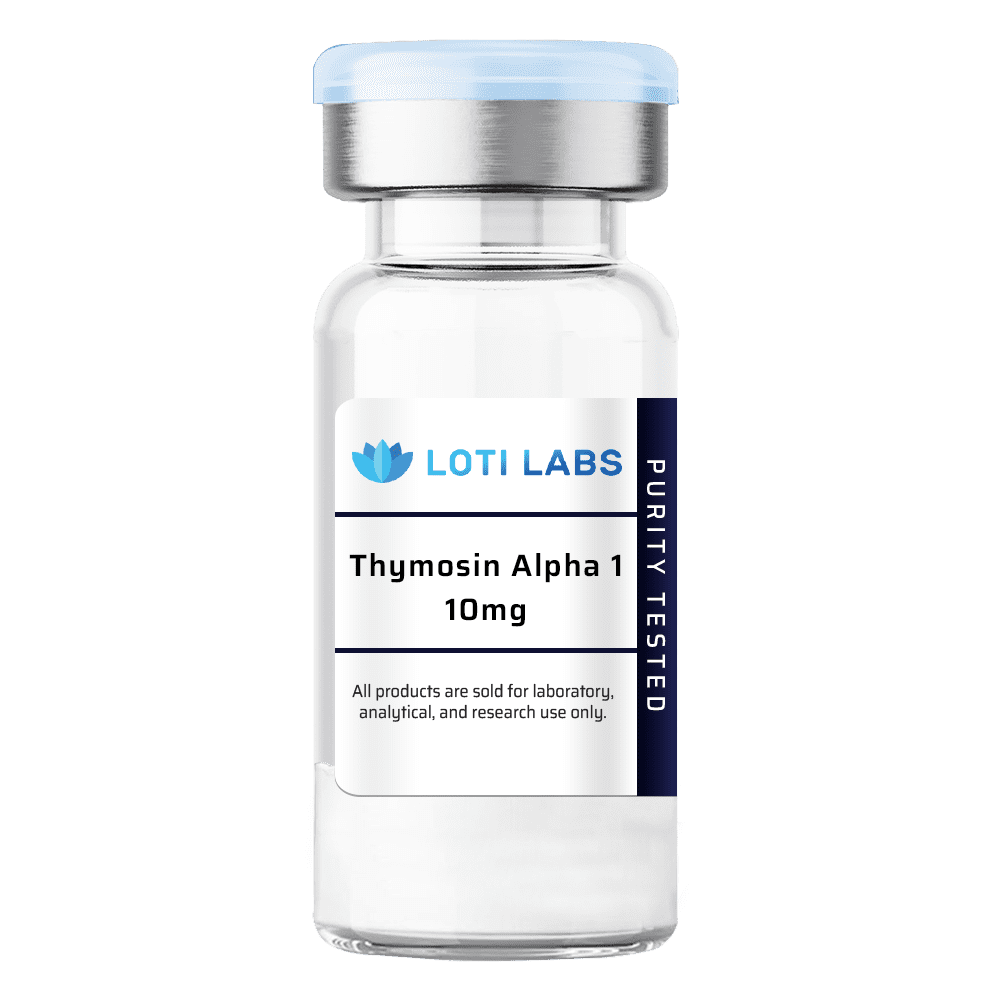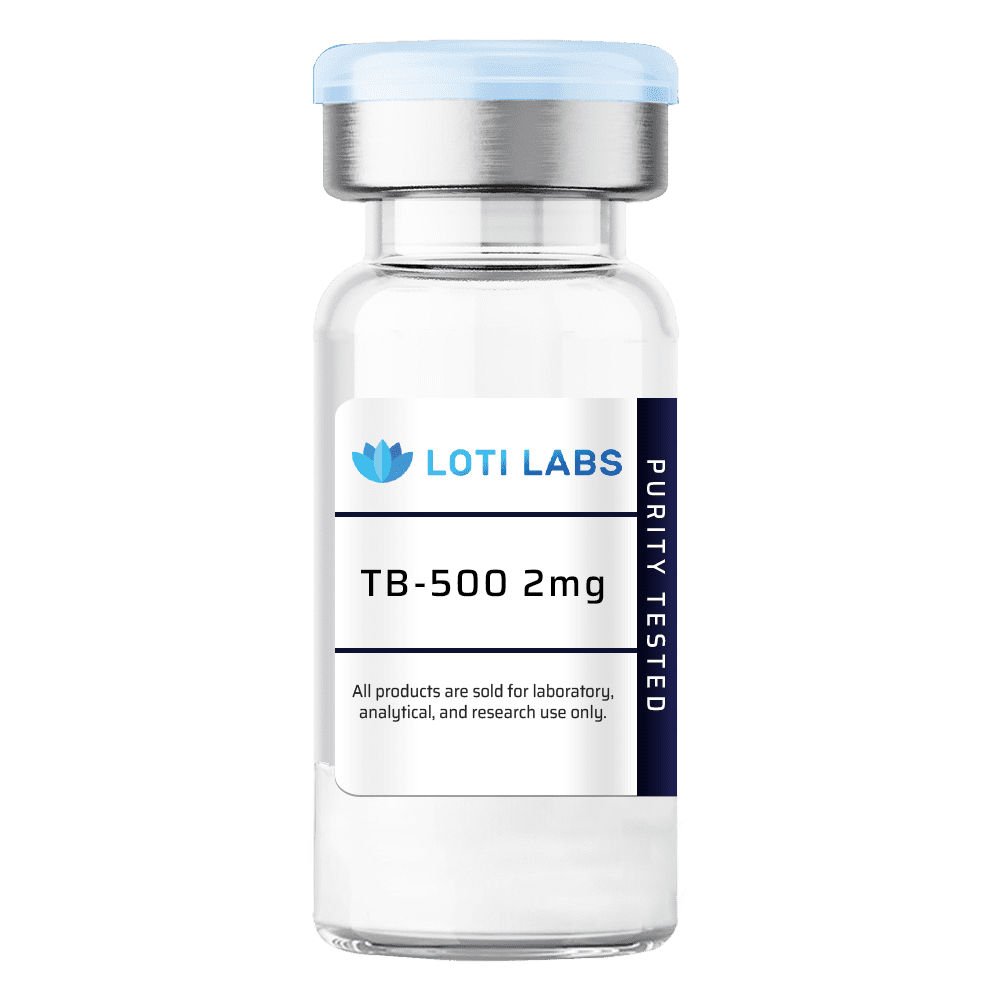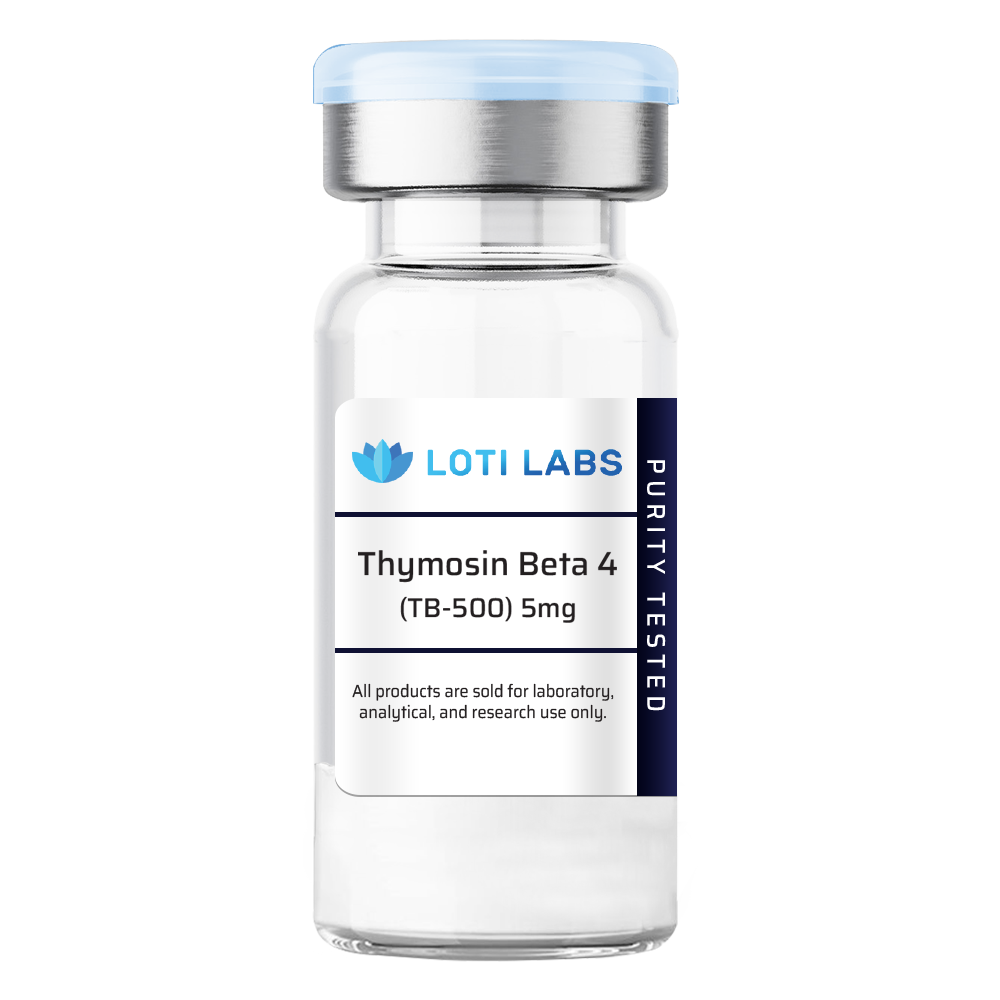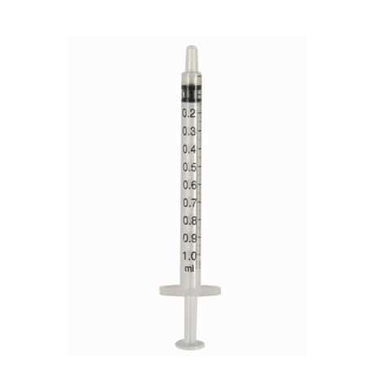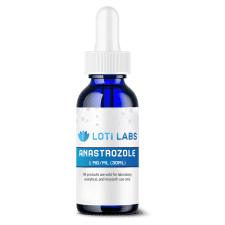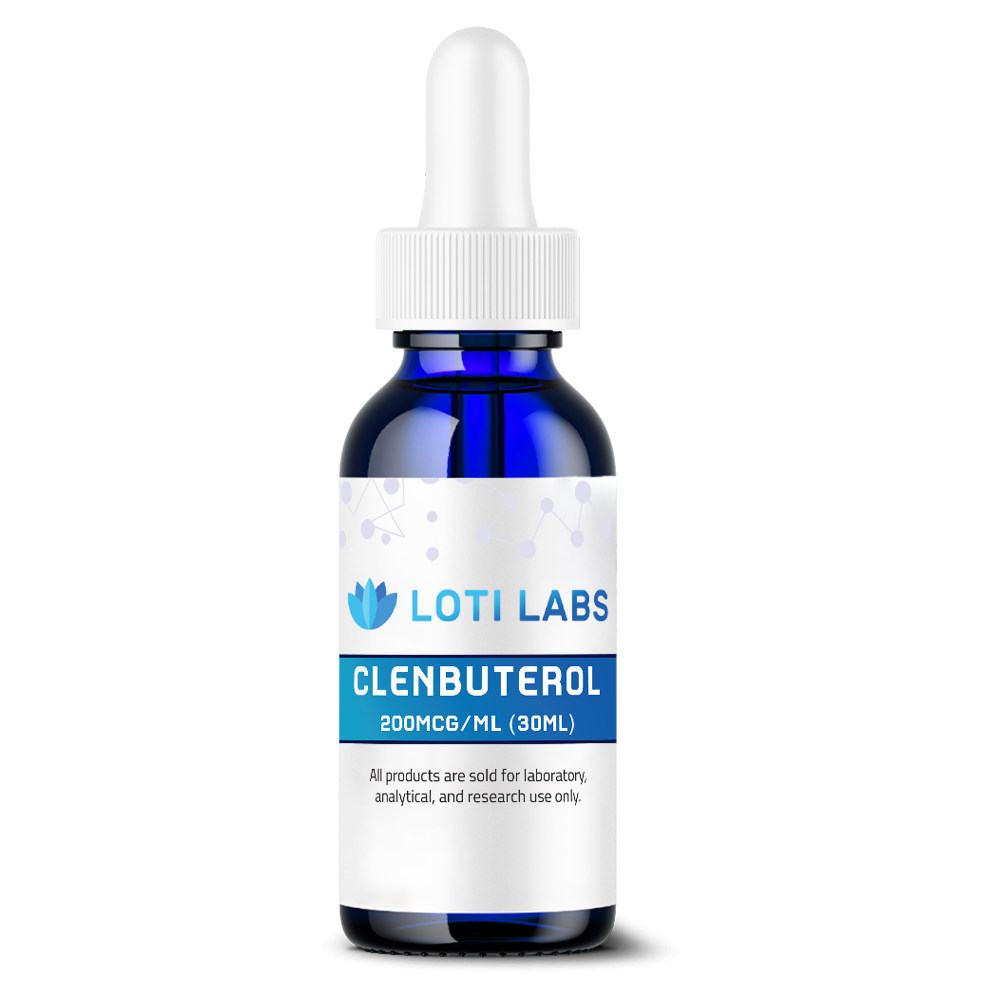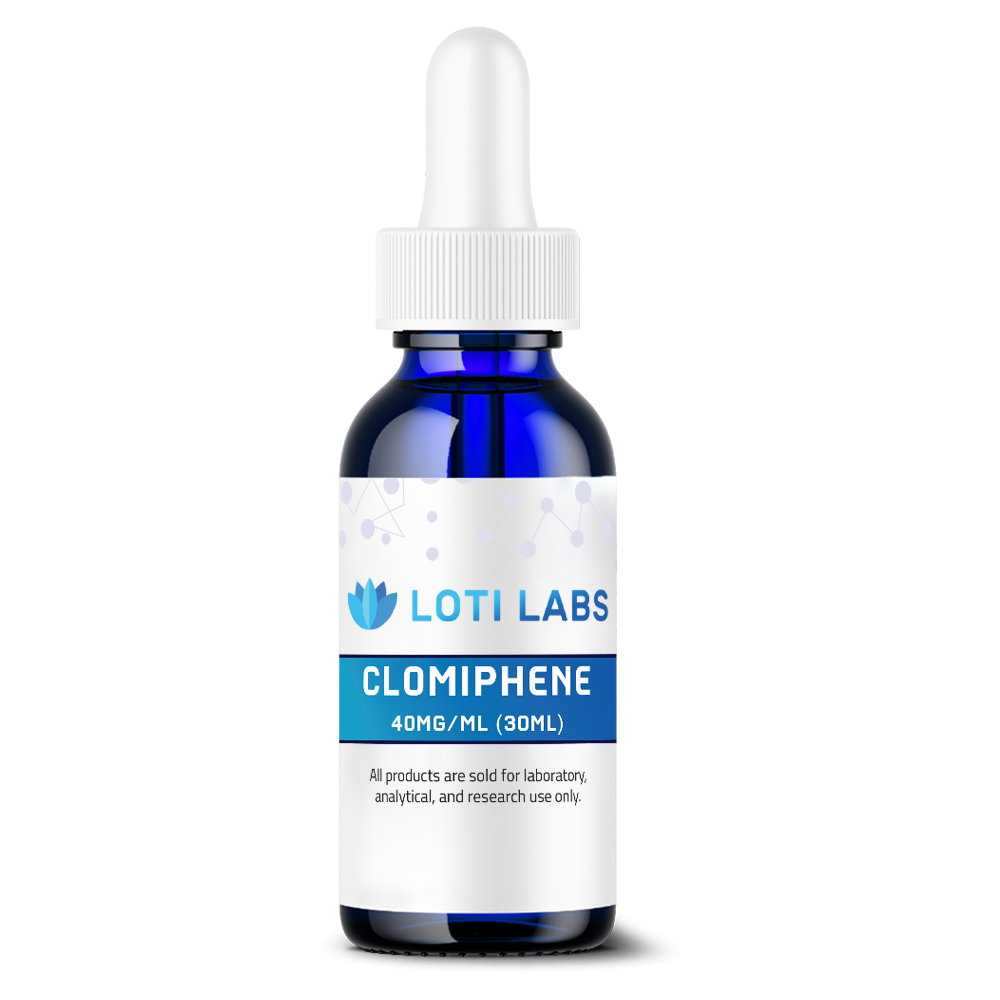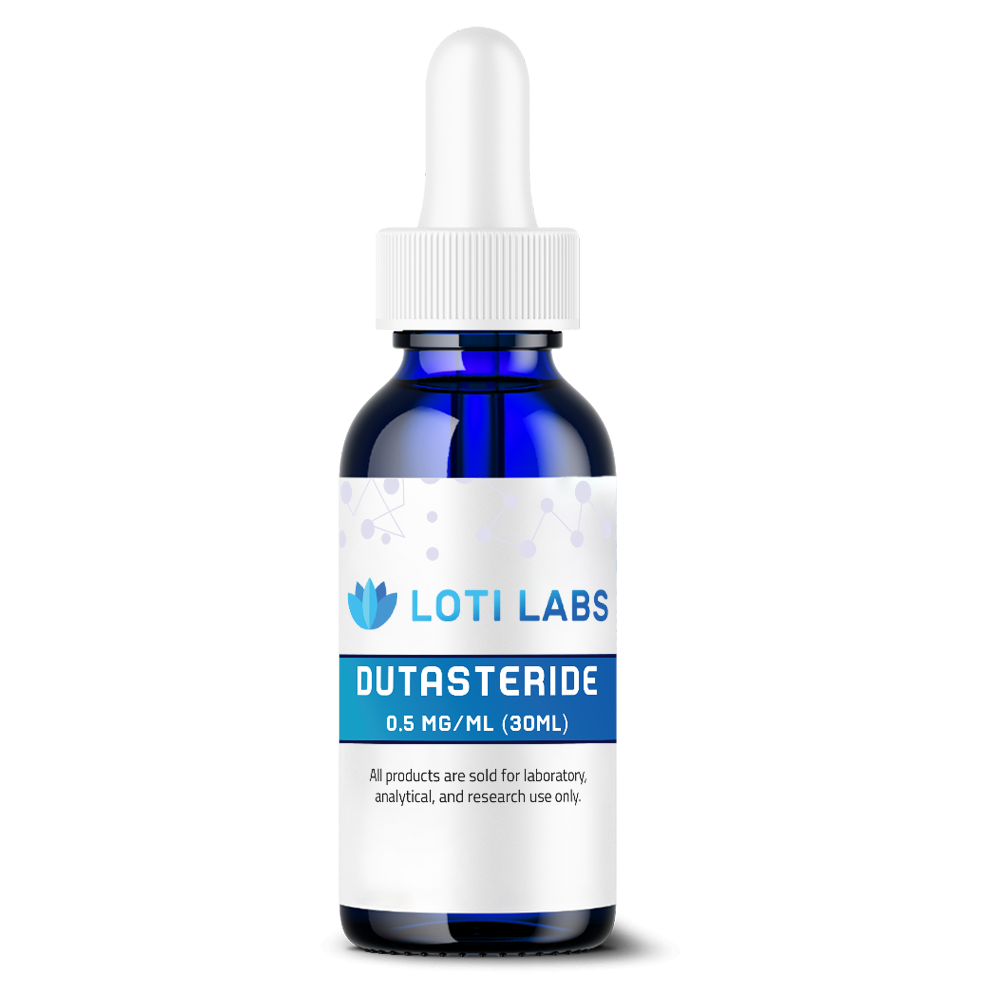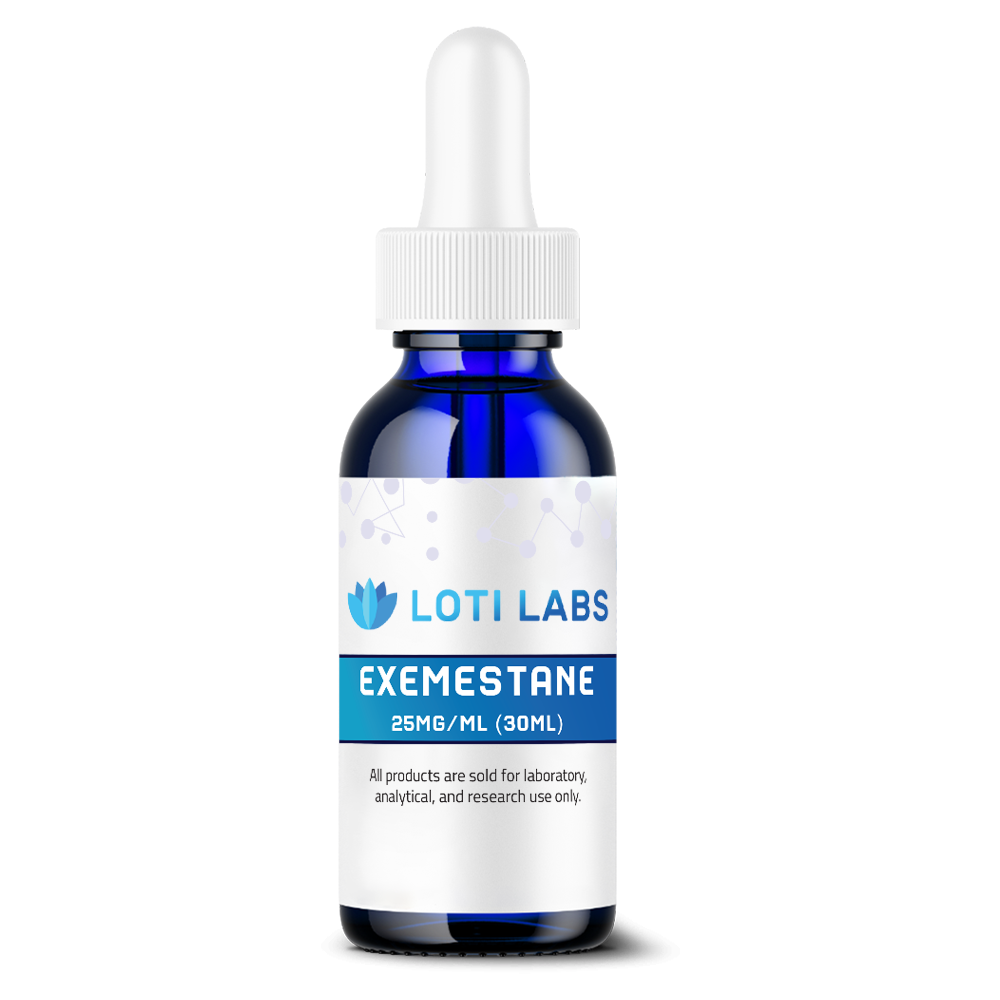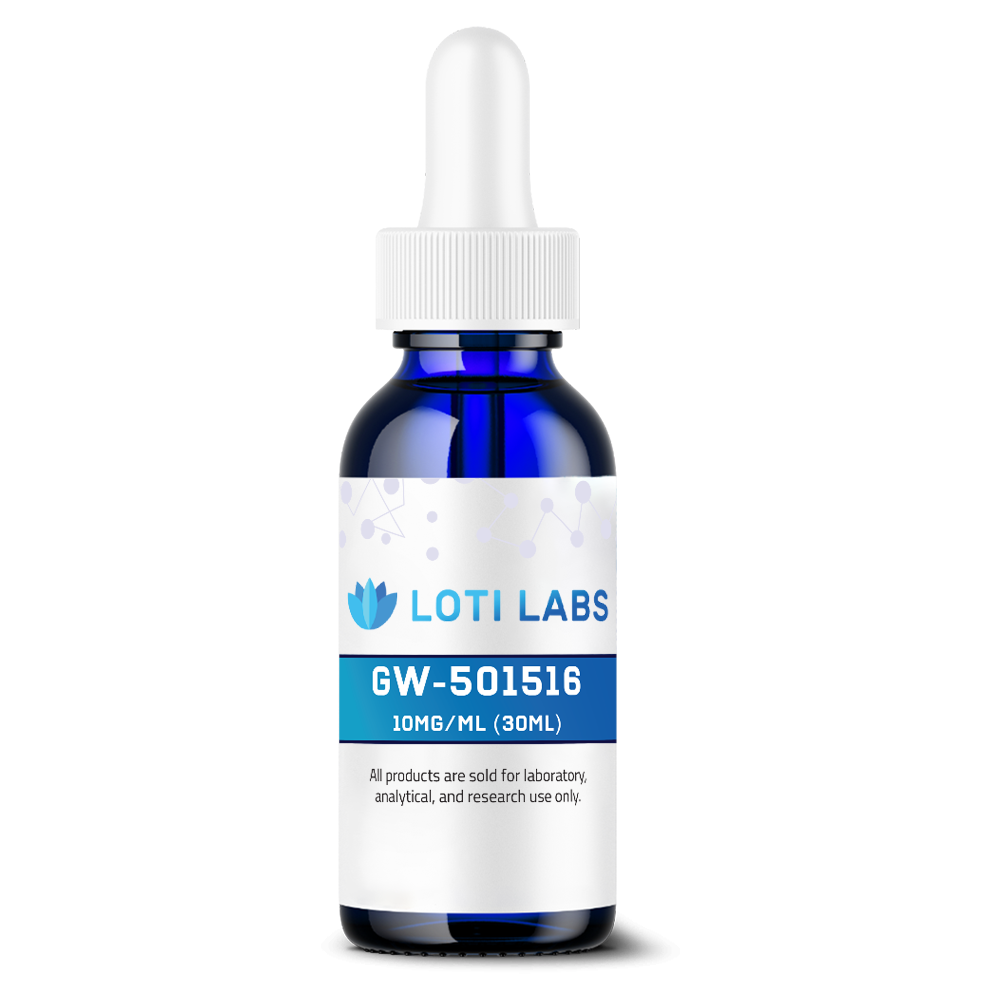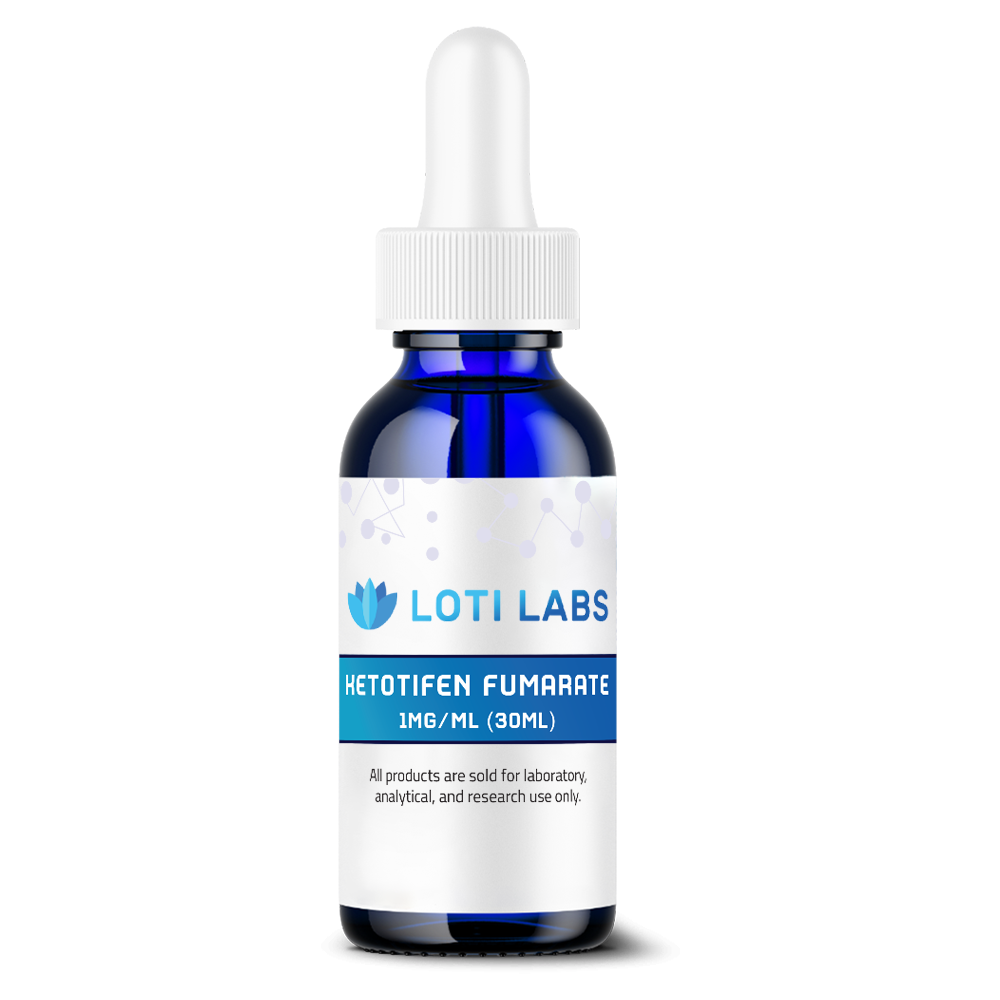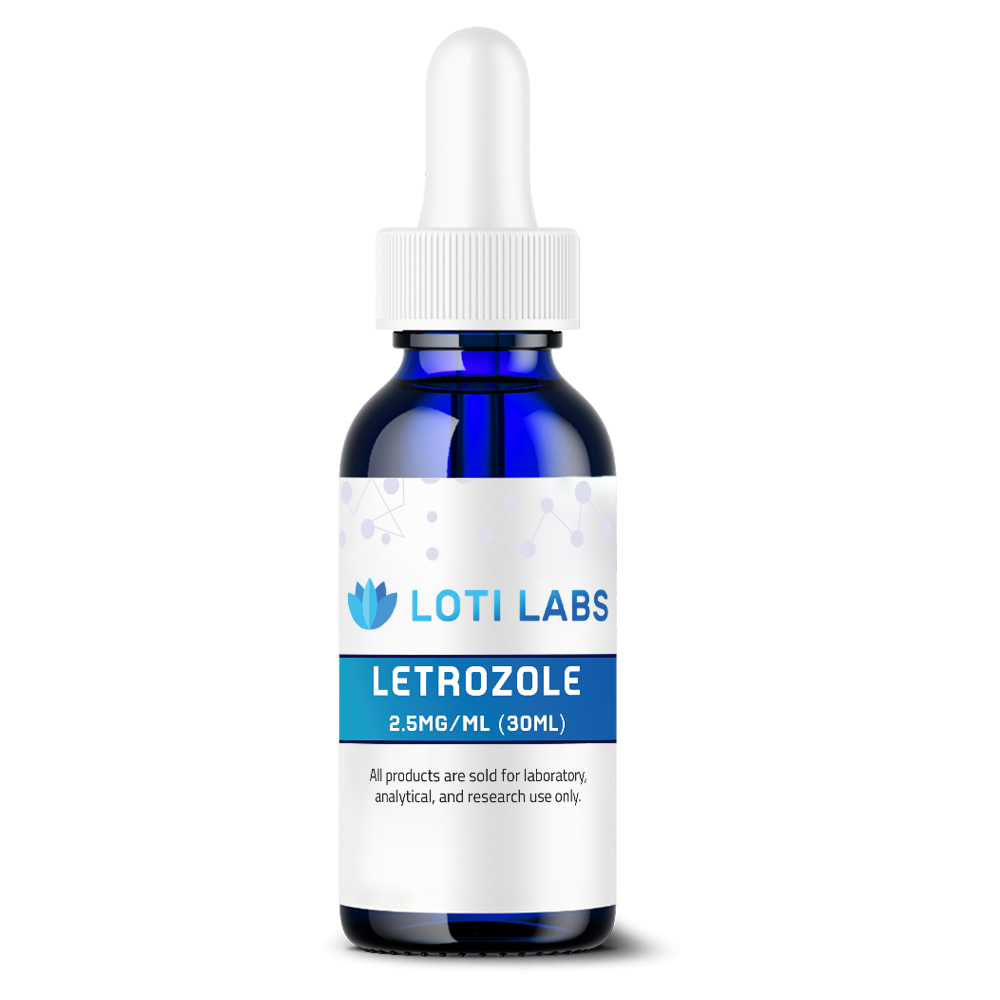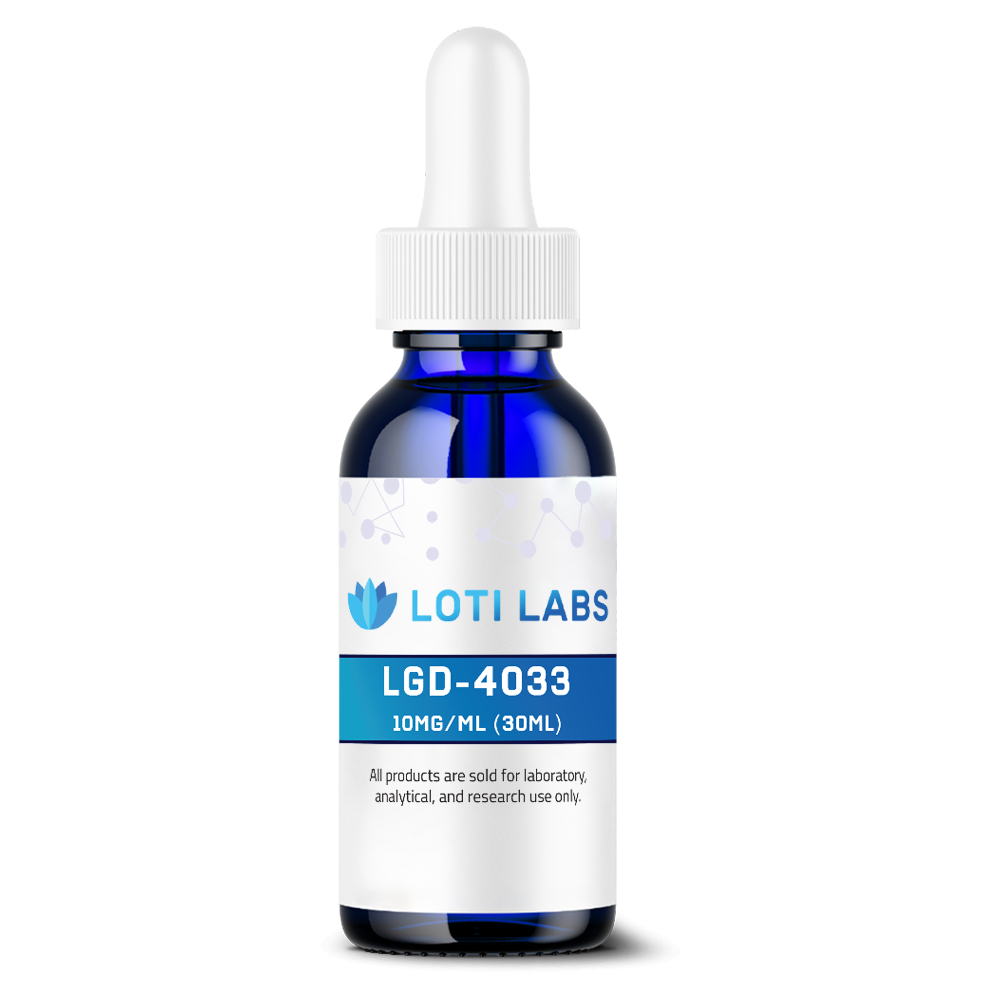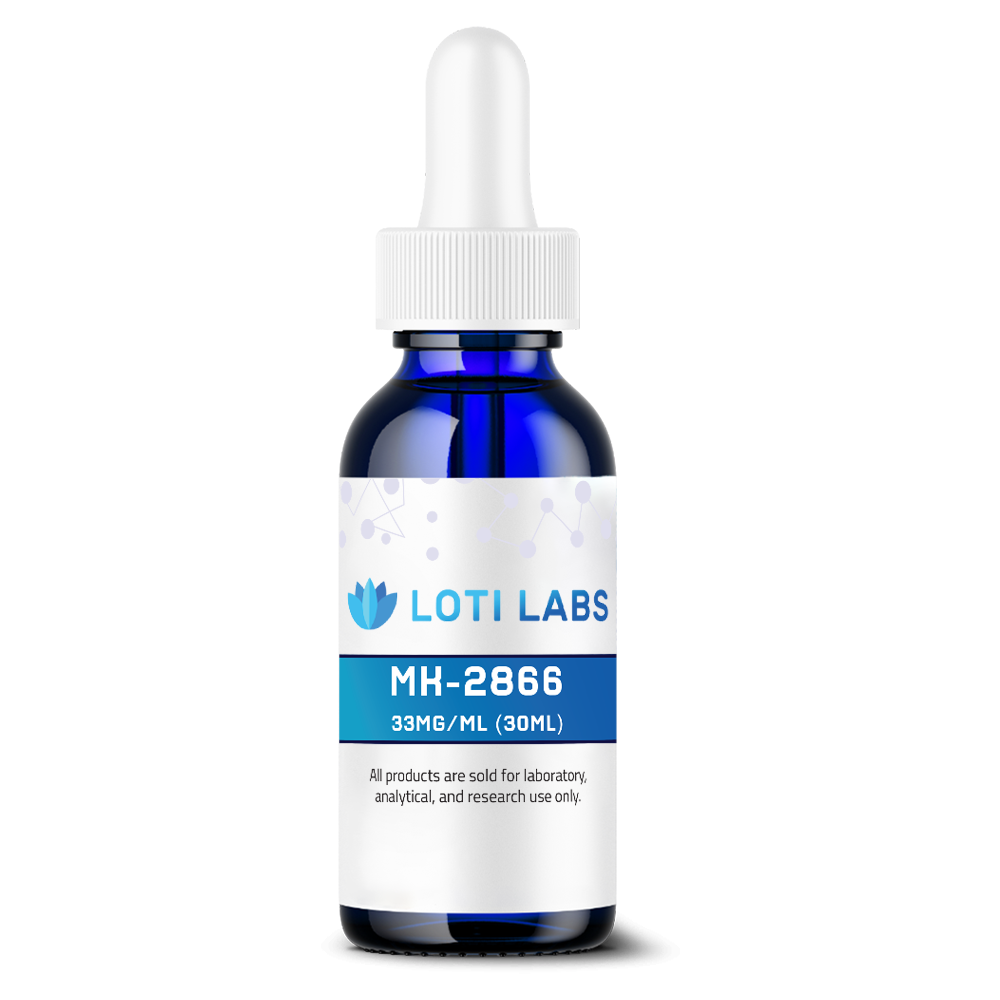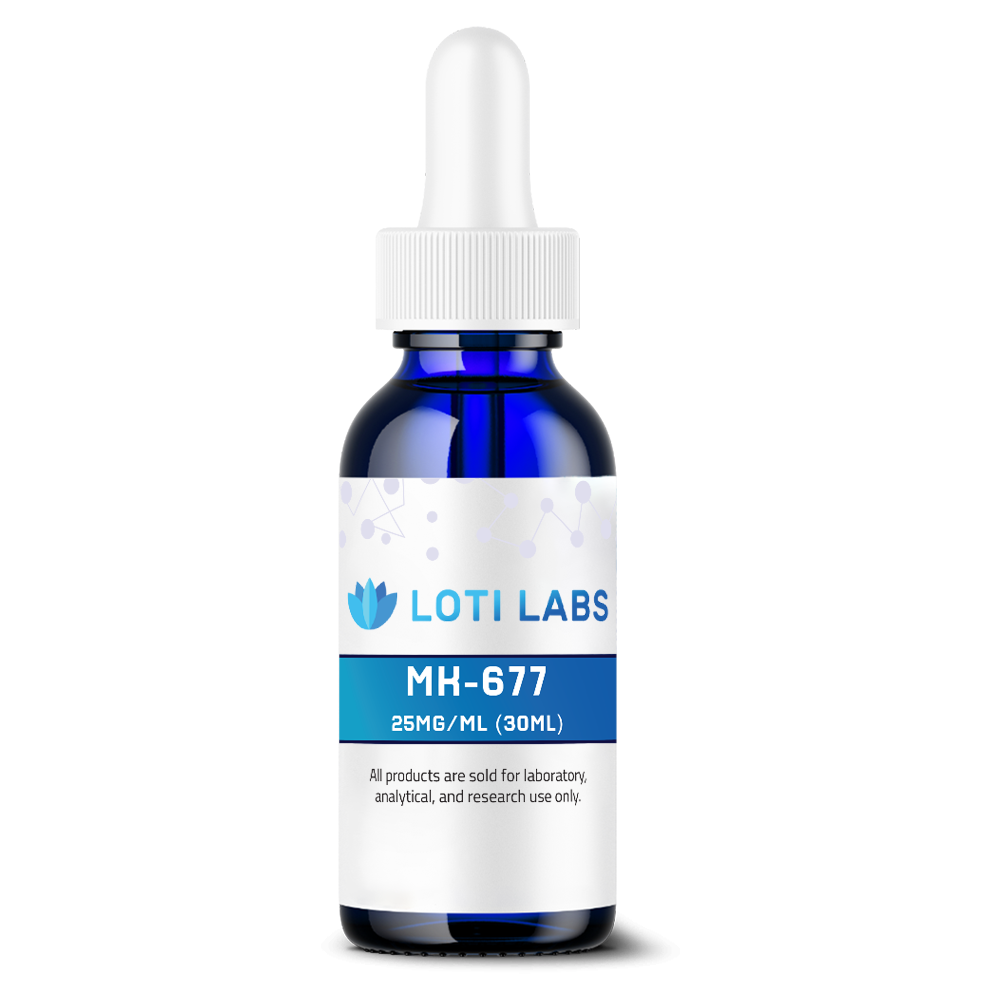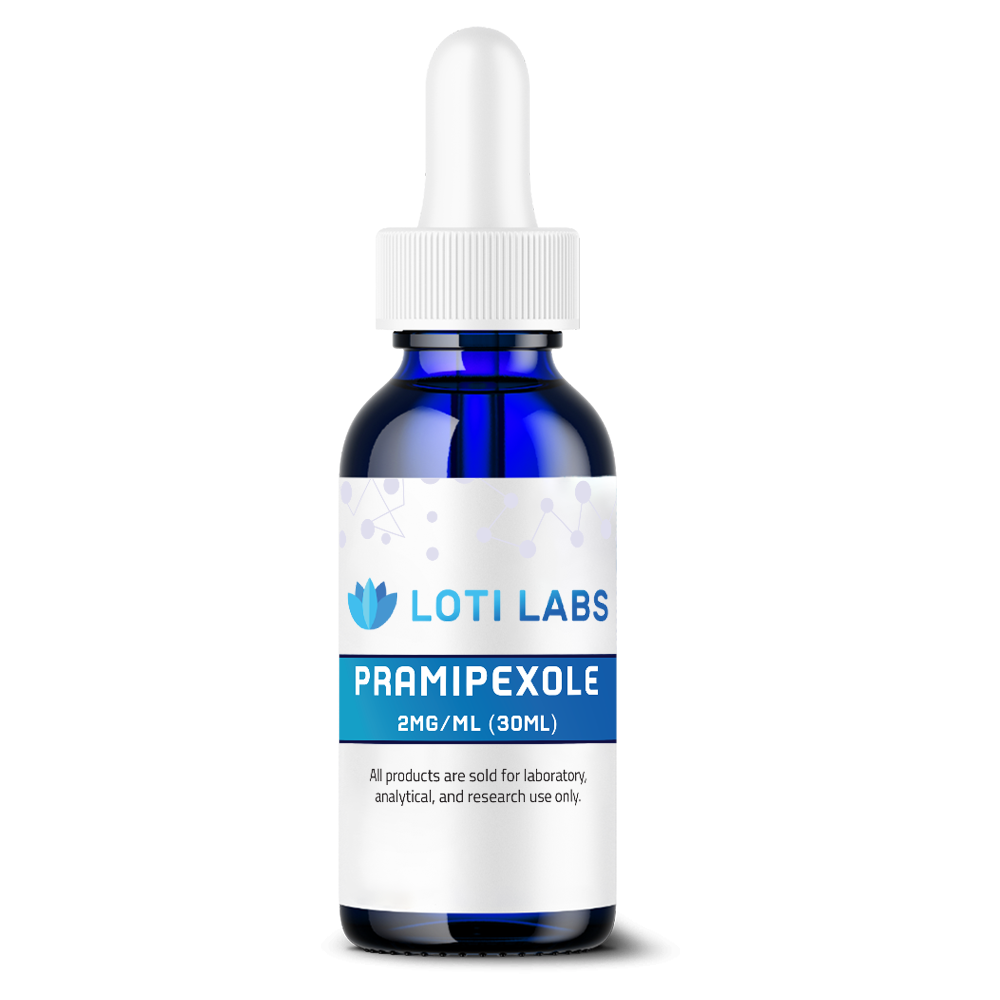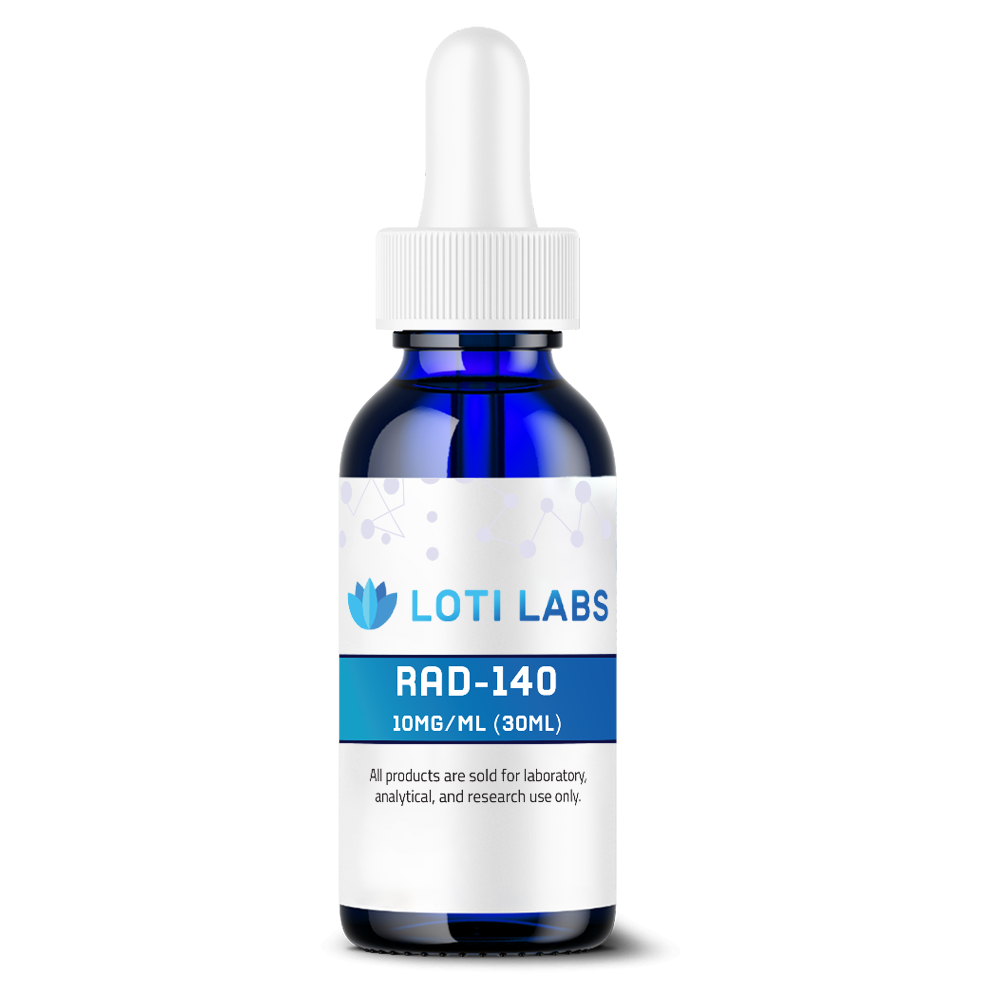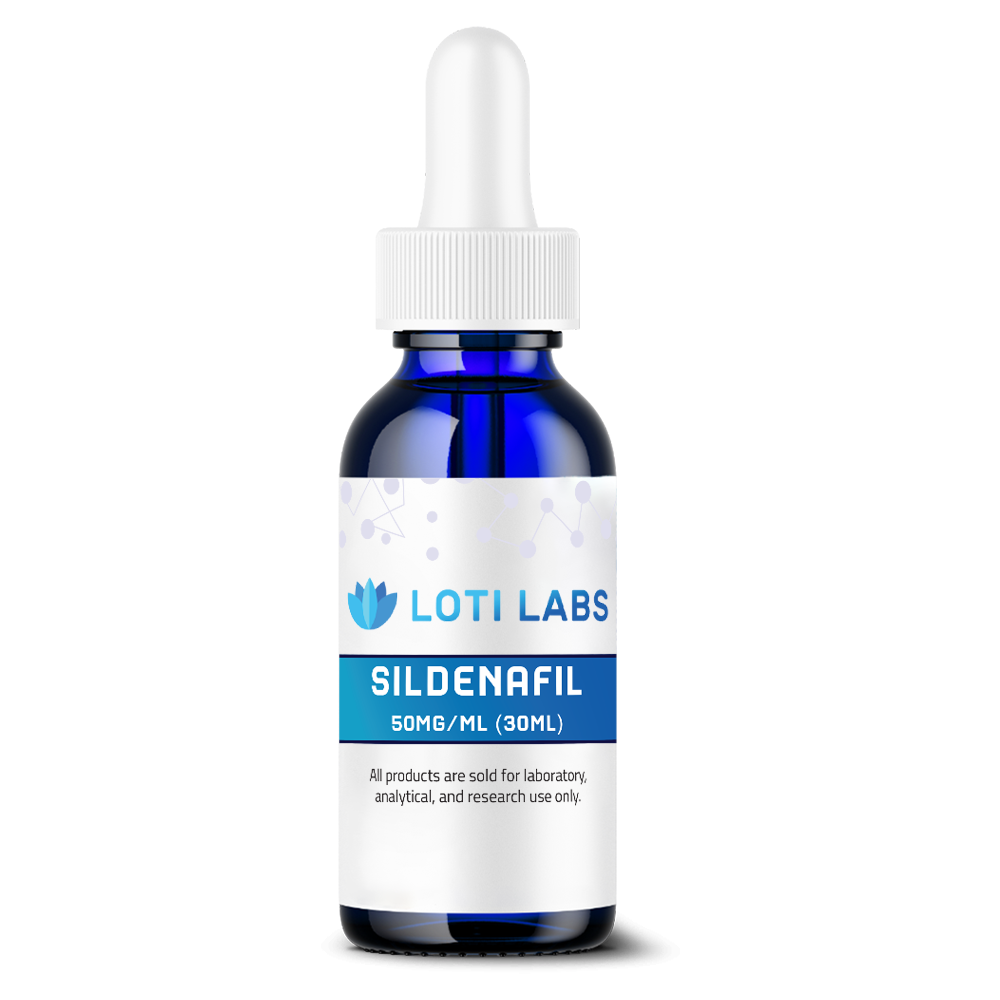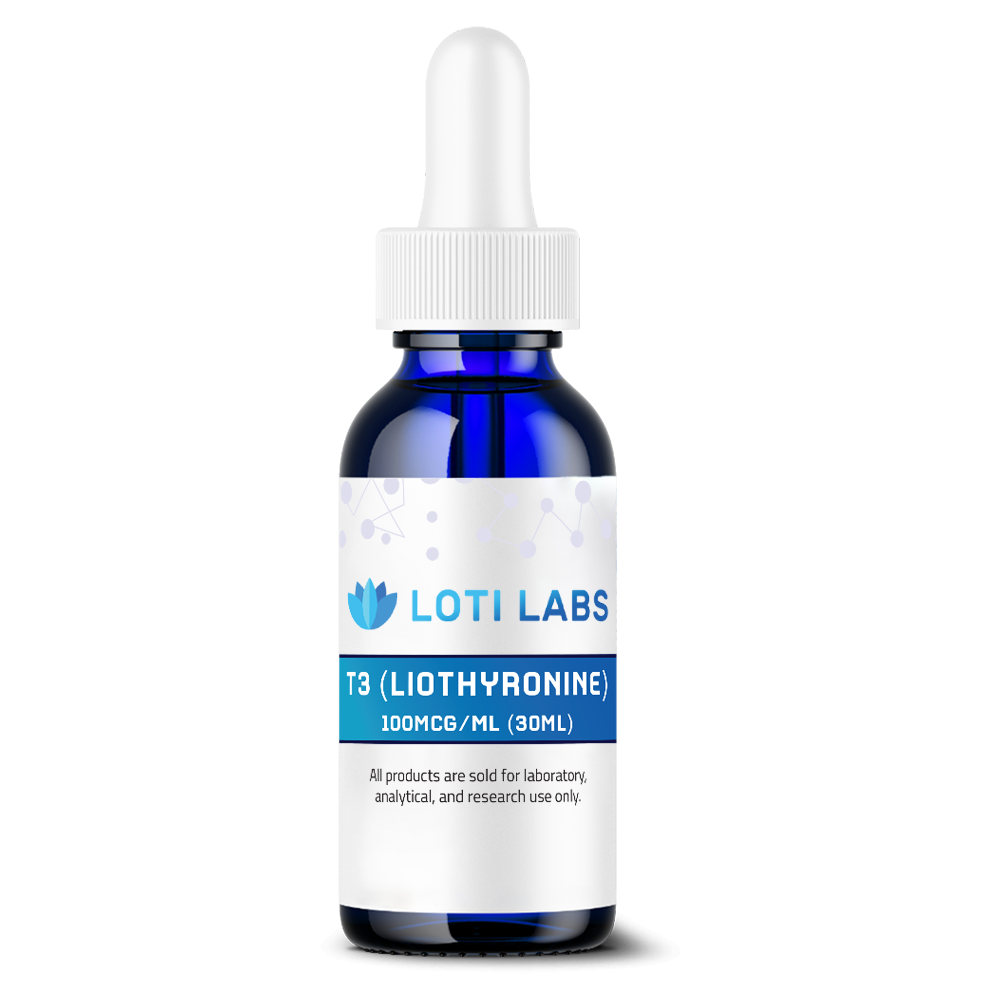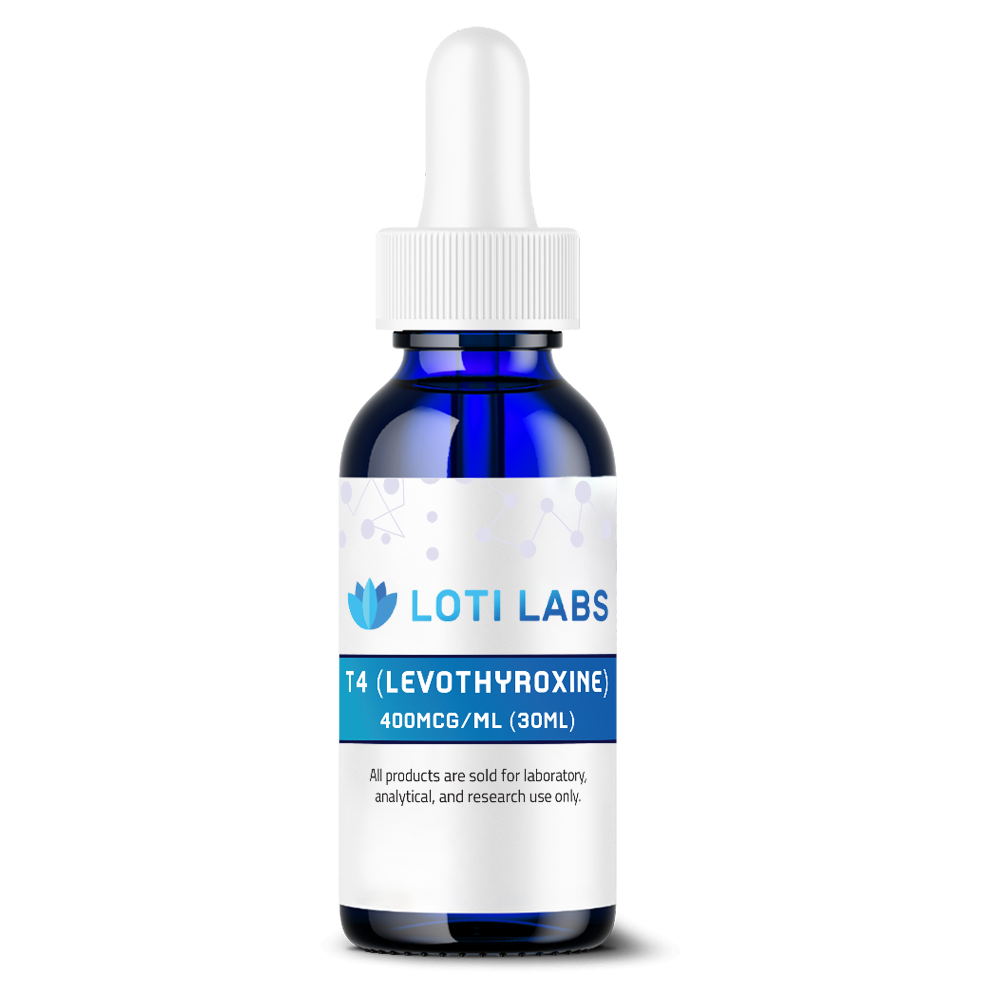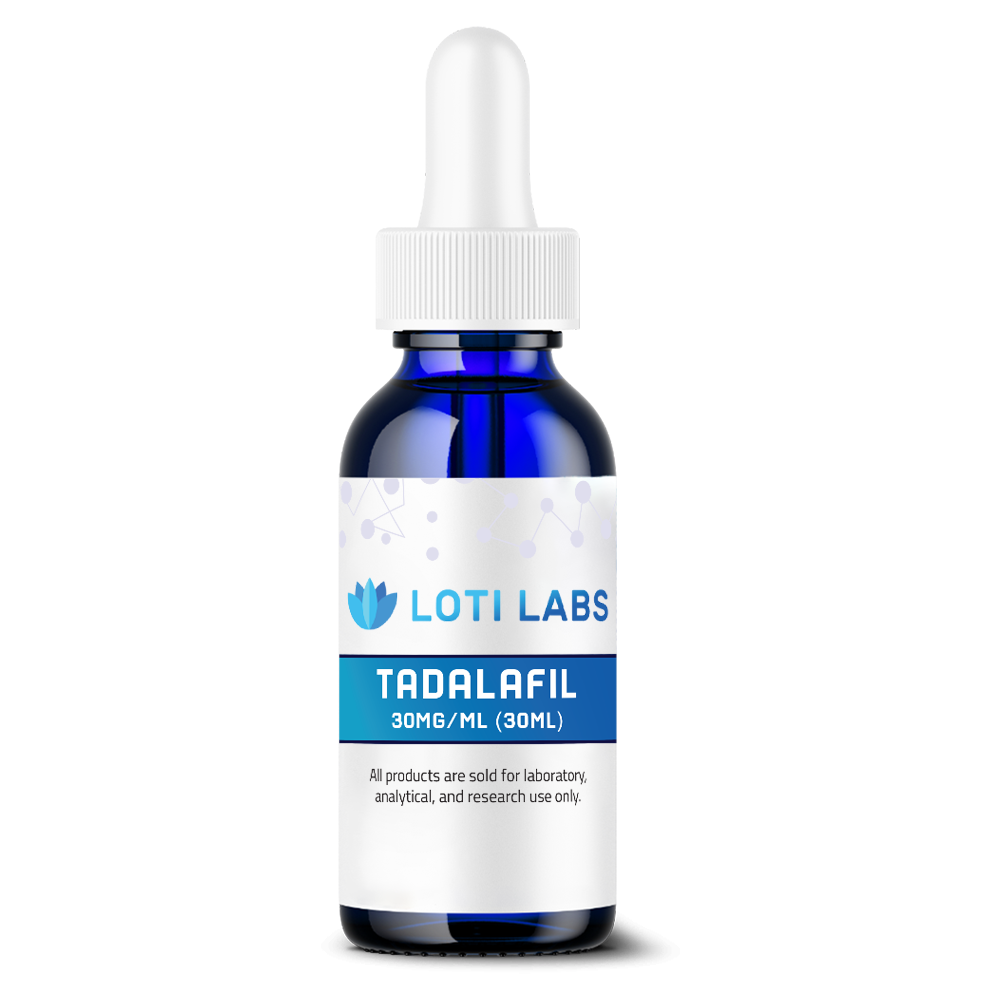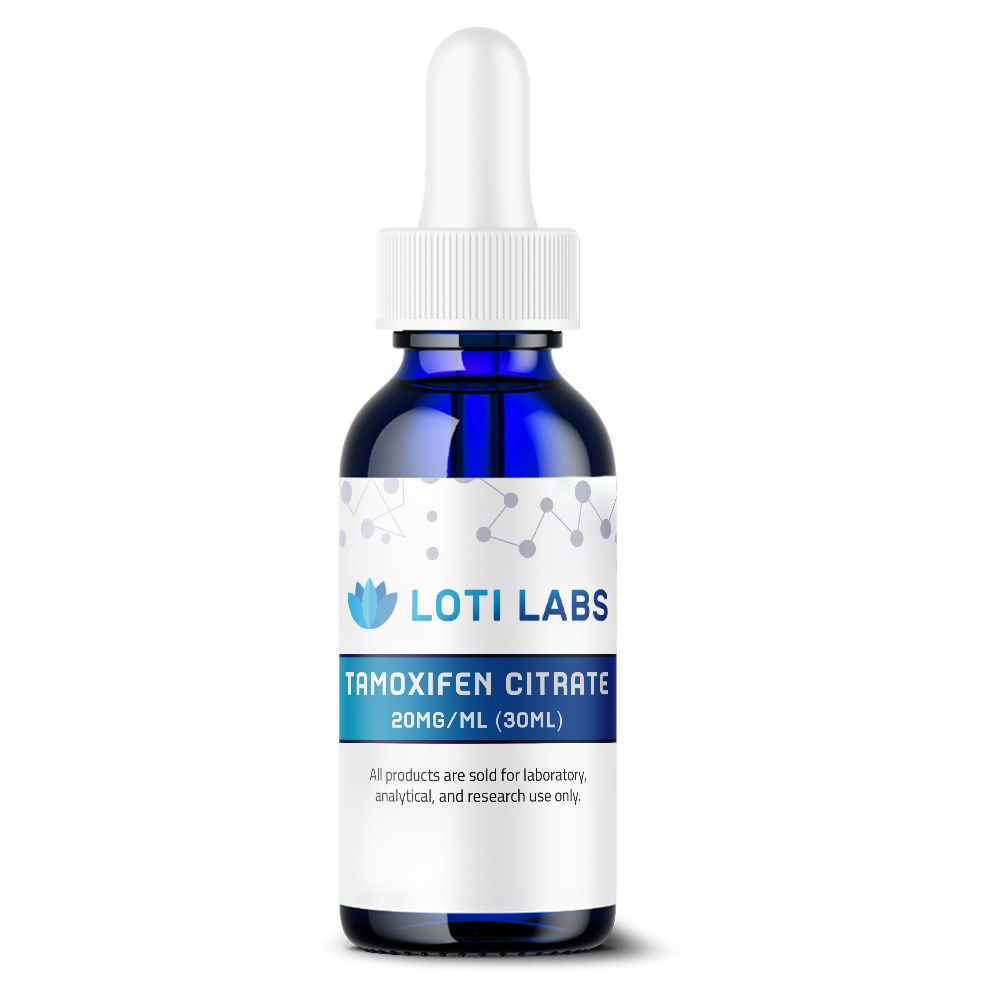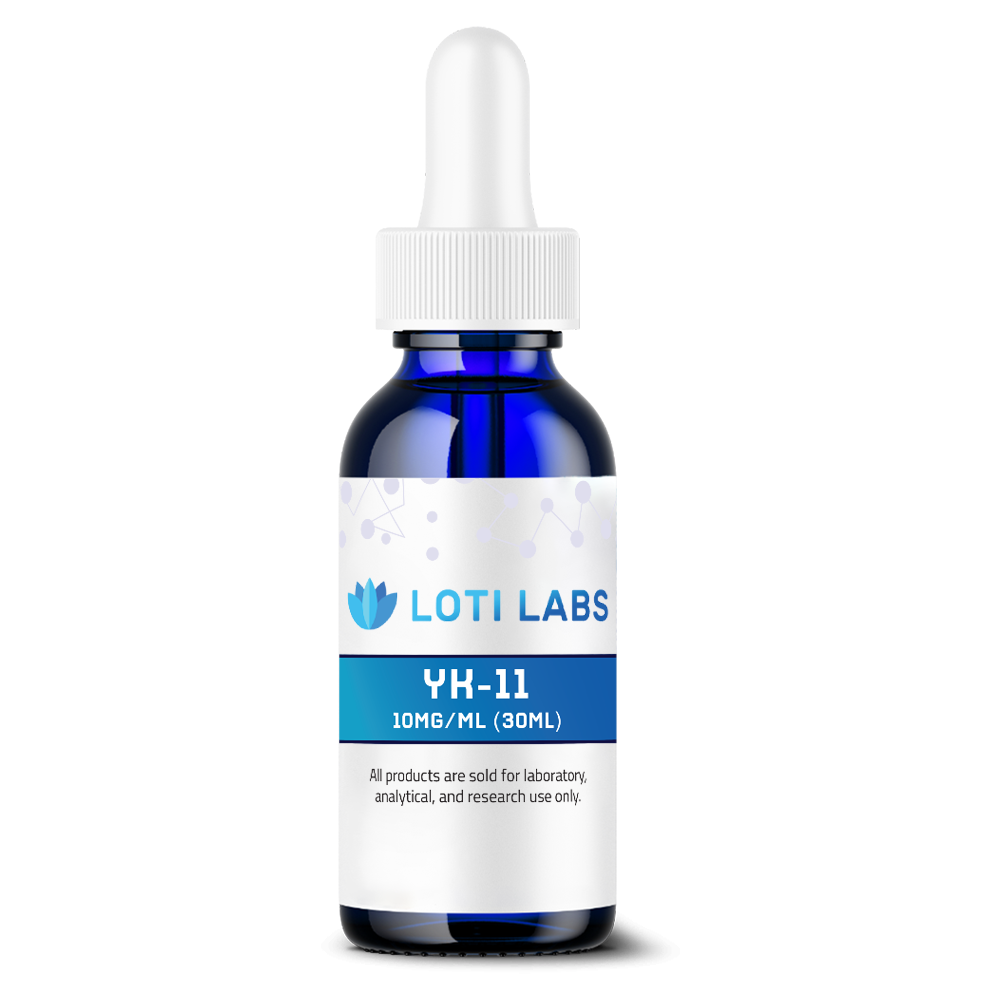-
×
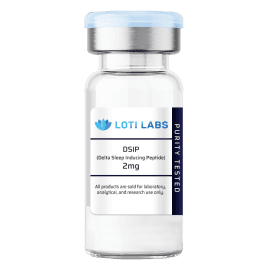 DSIP (Delta Sleep Inducing Peptide) 2mg
1 × $29.99
DSIP (Delta Sleep Inducing Peptide) 2mg
1 × $29.99
Prostamax 20mg
$89.99
You save
This product is intended as a research chemical only. This designation allows the use of this chemical strictly for in-vitro laboratory testing and experimentation. Human or veterinary use is strictly forbidden. This product is not a drug, food or cosmetic and may not be misbranded, mislabeled or misused as such.
Description


-
Buy ProstaMax: Research-Grade Compound from Loti Labs
When researchers study subjects in controlled lab settings, nutritional compounds become more important for maintaining optimal experimental conditions. ProstaMax is a multi-faceted research compound that provides study parameters through carefully selected ingredients that have been tested in the lab. As a multi-faceted complex, ProstaMax includes key ingredients and added support for men’s health. If you’re looking to buy ProstaMax, understanding the science behind the formula and buying from a reputable research supplier ensures you get authentic, 3rd party tested compounds that meet lab standards.
This review examines ProstaMax’s research profile, lab-based formula and why Loti Labs is a trusted supplier of research compounds. The formula’s key ingredients provide nutritional support for men’s health and ProstaMax is known as Prosta-Max for Men in research circles. Whether you’re researching study protocols or ready to make a research purchase, this review provides the research info and quality considerations you need to make an informed lab decision.
Research Profile of ProstaMax for Prostate Health
ProstaMax stands out with a research formula targeting lab study parameters especially for research on cellular mechanisms. The formula includes several key compounds that research suggests may impact experimental outcomes when included in lab protocols.
Key Ingredients, Active Compounds and Research Content
The compound is built on proven botanical extracts including saw palmetto berry extract, pygeum bark extract and stinging nettle leaf extract. These extracts combine with tomato extract providing lycopene to create a comprehensive research application. The plant sterol complex featuring beta sitosterol as the primary component is a significant portion of the active research compounds.
A 700mg amino acid complex is another cornerstone of ProstaMax’s research profile. This free form amino acid blend includes l glutamic acid, l alanine and glycine – compounds research suggests play important roles in cellular processes in the lab. The serving size provides these amino acids in bioavailable forms research protocols can use.
Research-Based Formula Approach
Lab Mechanism of Action
ProstaMax works through a synergistic blend of botanical extracts and micronutrients that research suggests support cellular research applications and normal physiological processes in the lab. These ingredients work together to provide nutritional support in lab research applications, offering a broad spectrum of vitamins, amino acids and herbal components relevant to men’s health. The primary active compounds in saw palmetto and pygeum bark have been studied for their interactions with specific enzymatic pathways in controlled research settings.
Plant sterols, particularly beta sitosterol, have been the subject of numerous research studies on cellular processes and tissue maintenance in lab models. The comprehensive vitamin and mineral profile provides antioxidant research applications, while the amino acid complex contributes to normal cellular repair processes that occur naturally in lab tissue samples.
Lab Research Foundation
Multiple research studies have evaluated the individual components found in ProstaMax formulas. Research suggests saw palmetto and pygeum bark extracts show interesting properties in lab analyses especially regarding their interactions with certain biological pathways under controlled conditions.
Advanced formulas incorporating peptide-based compounds have shown promising results in research settings. These synthetic peptides, modeled on established research protocols, have been studied for their effects on cellular processes and genetic expression patterns in lab environments. Lab studies indicate these compounds may impact cellular behavior through specific molecular mechanisms under research conditions.
Research protocols suggest peptide-based study applications may offer advantages in terms of bioavailability and targeted cellular interactions in the lab. Studies conducted under controlled conditions show these compounds are generally well-tolerated in research models and can be administered through various lab protocols.
Research Science Applications
The combination of compounds in ProstaMax reflects current research science and cellular biochemistry in the lab. Each ingredient has been selected based on research that suggests potential applications for normal cellular function and supporting lab research processes.
Lab analysis of the key compounds shows their bioactive properties and potential for supporting various physiological pathways under research conditions. The formula’s approach to combining traditional botanical extracts with modern amino acid complexes is an evolution in research compound strategy.
Quality Assurance and Lab Storage Guidelines
3rd Party Research Testing Standards
Every batch of ProstaMax supplied through Loti Labs is tested using 3rd party testing protocols to ensure compound potency and purity for research applications. These standardized testing protocols verify the presence and concentration of active compounds and screen for contaminants that could impact research quality.The testing process checks each key compound against label claims to ensure saw palmetto, pygeum bark and plant sterol complex meet established potency standards for lab use. This quality control process guarantees each serving size delivers the intended research content.
Lab verification extends to the amino acid profile to confirm l glutamic acid, l alanine and other free form amino acids remain bioactive throughout the research compound’s shelf life. More research facts about testing methods are available through Loti Labs’ quality assurance documentation.
Lab Storage and Research Protocols
ProstaMax should be stored in lab conditions away from direct sunlight to preserve potency of sensitive botanical extracts and vitamins for research use. The compound’s stability depends on maintaining environmental conditions that prevent degradation of active research compounds.
Temperature fluctuations and moisture exposure can affect the amino acid complex and plant-based extracts in lab settings. Proper storage in a lab environment means keeping the compound in controlled conditions away from heat sources and humidity.
Research packaging includes storage instructions and researchers should check expiration dates before lab use. Information on the compound label provides important guidance on maintaining potency throughout the research compound’s intended lab life.
Research Safety and Compound Info
The formula contains research considerations including glutamate derivatives from the amino acid complex and soybean derivatives used in processing. Lab personnel with known sensitivities should review the compound info before using ProstaMax in their research.
Quality control includes verification that actual research contents match label specifications. However, manufacturing processes may introduce trace amounts of materials from shared facilities and sensitive research applications should consider this when making a purchase.
Loti Labs recommends discontinuing lab use and consulting with research professionals if any adverse reactions occur during research use. The company’s customer service is available for questions about compounds or potential interactions with other research substances.
Why Buy from Loti Labs
Research Authenticity, Quality Assurance and Disclaimer Actual Product Label
Loti Labs is the only supplier of verified authentic ProstaMax formulas through authorized research channels. When you buy ProstaMax from Loti Labs you get compounds that have been tested 3rd party and meet lab standards.
The supplier’s relationship with manufacturers ensures access to the latest formulations and proper storage conditions throughout the research supply chain. This attention to supply chain integrity maintains compound potency from manufacturing to delivery to your lab.Loti Labs’ authenticity includes verification of UPC codes and lot numbers, giving researchers the ability to track their purchases.
Research Packaging and Value
Multiple packaging options to fit different research protocols and lab considerations. 200-unit container is best for long-term research use, 100-unit for evaluating the compound before committing to larger research.
Each container serving size is clearly labeled so you can track lab use and plan reorders. Larger quantities often provide better value for researchers who have ProstaMax in their regular lab protocols.
Loti Labs’ pricing reflects 3rd party testing and authentic sourcing, providing value beyond simple cost for research. The supplier is a research compound retailer so you get knowledgeable customer service and research recommendations.
Lab Shipping and Delivery
Same day shipping for orders placed before 1pm EST Monday-Friday, with pickup delivery sign options for local labs. Orders placed after cutoff or on weekends ship next business day for timely research needs.
Multiple delivery options to fit lab schedules and preferences, from standard to expedited. Supplier’s shipping policies understand research users need consistent compound availability.
Local pickup delivery sign services for researchers who want immediate compound access or to verify packaging before taking possession. This flexibility shows Loti Labs’ commitment to research customer satisfaction and accessibility.
Research Support and Satisfaction Guarantee
30-day satisfaction guarantee for first time researchers using ProstaMax in lab. This policy allows return of unopened compounds for full refund of purchase price, reducing the risk of trying new research substances.
Return process through Loti Labs’ customer service department is easy and designed to accommodate legitimate research concerns. This builds confidence for first time research buyers and shows supplier confidence in compound quality.
Customer service reps are trained on research compounds and can provide general lab advice within limits. However, research questions should be directed to research professionals not retail staff.
Research Support Guidelines and Lab Usage Information
Lab Integration
ProstaMax is meant to supplement balanced lab protocols not replace proper research methodology from established sources. The compound provides concentrated research materials that may not be available in adequate quantities from standard sources especially the specific plant sterol complex and amino acid combinations for lab use.
Knowing how each compound works helps lab personnel make informed decisions about compound timing and integration with research protocols. Zero calorie formula means ProstaMax won’t interfere with experimental parameters or research goals.
Researchers looking to optimize lab conditions often find targeted compounds like ProstaMax can fill research gaps while they develop more comprehensive lab improvements. ProstaMax is research support not a substitute for varied established research methodologies.
Professional Research Guidance and Consultation
While ProstaMax is for research use, consulting research professionals before starting any lab protocols is valuable especially for researchers with existing experimental conditions or using other research substances. Professional oversight ensures compound choices align with individual research goals and lab circumstances.
Research providers can offer personalized advice on timing, potential interactions and monitoring protocols that may be beneficial when adding new research support to existing lab routines. This is especially important for researchers with complex experimental situations.
The content in this analysis is educational and not meant to replace professional research advice. Each lab’s research needs vary based on experimental design, activity level, existing research status and other factors that qualified professionals can evaluate.
Research Compound Limitations
ProstaMax and all compounds from Loti Labs are research substances to provide lab support. They are not intended to diagnose, treat, cure or prevent any disease and claims about their effects have not been evaluated by regulatory authorities for research use.
This distinction between research support and other applications is important for lab personnel to understand. Research compounds work best as part of comprehensive lab approaches that include proper methodology, regular experimental protocols and research oversight when needed.
Realistic expectations about research compound effects help lab personnel make better decisions and avoid disappointment. While research suggests potential applications from the key compounds in ProstaMax, individual lab responses can vary greatly based on many experimental factors.
Research Acquisition Considerations and Recommendations
Research Compound Quality
When buying ProstaMax consider factors beyond price that affect research value. 3rd party testing, proper storage conditions, authentic sourcing and supplier reputation all contribute to getting a high quality compound that delivers intended research applications.Loti Labs’ focus on research compounds and specialized lab products means their staff understands the unique aspects of research compound use. This expertise translates to better customer service and more relevant research recommendations.
Supplier’s batch testing and quality verification provides extra assurance that each purchase meets lab standards. This is especially important in the research compound industry where product consistency can vary greatly between suppliers.
Long term Research
For lab personnel looking to use ProstaMax long term, working with a reliable supplier like Loti Labs can provide benefits beyond initial purchase convenience. Consistent compound sourcing, auto reordering options and research customer programs can simplify ongoing lab use.
Knowing the research rating and compound profile helps lab personnel track their research over time and make adjustments as needed. Reviewing lab protocols with research providers ensures continued appropriateness as experimental status and needs change.
Budgeting for quality research compounds often involves balancing cost per application with compound quality and authenticity. Loti Labs’ multiple package sizes allows researchers to optimize their purchase decisions based on both financial and research considerations.
Informed Research Purchasing
Research shows that informed lab personnel who understand compound formulations and quality standards get better results from their research choices. Taking the time to review compounds, manufacturing standards and supplier credentials contributes to more successful research experiences.
Reading more research reviews and checking more lab ratings from verified researchers provides more information on compound experiences and research satisfaction. However individual lab responses to research compounds can vary so personal trial is often necessary to determine research effectiveness.
The decision to buy ProstaMax should be based on thorough evaluation of research needs, compound quality, supplier reliability and professional guidance. This approach increases the chances of positive lab results and research satisfaction with compound choices.
When you buy ProstaMax from Loti Labs you get third party tested research compounds, full research support and the peace of mind that comes with buying from a specialized lab supplier. The combination of quality compounds, rigorous testing standards and professional service makes Loti Labs a great choice for researchers looking for lab support. Remember to consult with research professionals to ensure ProstaMax aligns with your individual lab goals and current research routine.
Conclusion
ProstaMax is a researched, multi-faceted compound for lab use composed of botanical extracts, amino acids and essential nutrients. Research shows its formulation, backed by lab studies and 3rd party analytical testing, is suitable for research use and experimental protocols. Buying ProstaMax from reputable research suppliers like Loti Labs means analytical purity, proper storage conditions and technical support for lab use. Whether for investigative studies or experimental research protocols, ProstaMax is a comprehensive approach to prostate research, a scientifically selected compound profile for lab analysis. Research suggests consulting with qualified research professionals to ensure proper handling and integration into lab protocols and experimental frameworks.
References
- Country Life Vitamins. Prosta-MAX® For Men. https://countrylifevitamins.com/products/prosta-max-for-men?srsltid=AfmBOoqwk_N-voiFZ2lXLd7AVHVj_NbuIhs8tAVk3c9LKDAwz5n_d3fc
- Kroger. Country Life Prosta-Max for Men Supplements. https://www.kroger.com/p/country-life-prosta-max-for-men-supplements/0001579401602
- LIVV Natural. ProstaMax Peptide for Prostate Health. https://livvnatural.com/prostamax-peptide-for-prostate-health/?srsltid=AfmBOoph9sZHImTbKc7mPLo6UL45llIgsTojjH-HF4aEJT8PDwj0Nq83
- Jay C Foods. Country Life Prosta-Max for Men. https://www.jaycfoods.com/p/country-life-prosta-max-for-men/0001579401600
- Harris Teeter. Country Life Prosta-Max for Men Supplements. https://www.harristeeter.com/p/country-life-prosta-max-for-men-supplements/0001579401602
